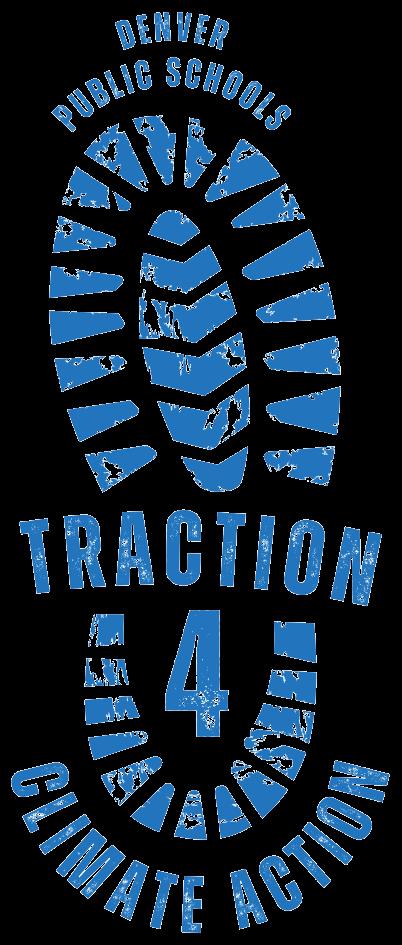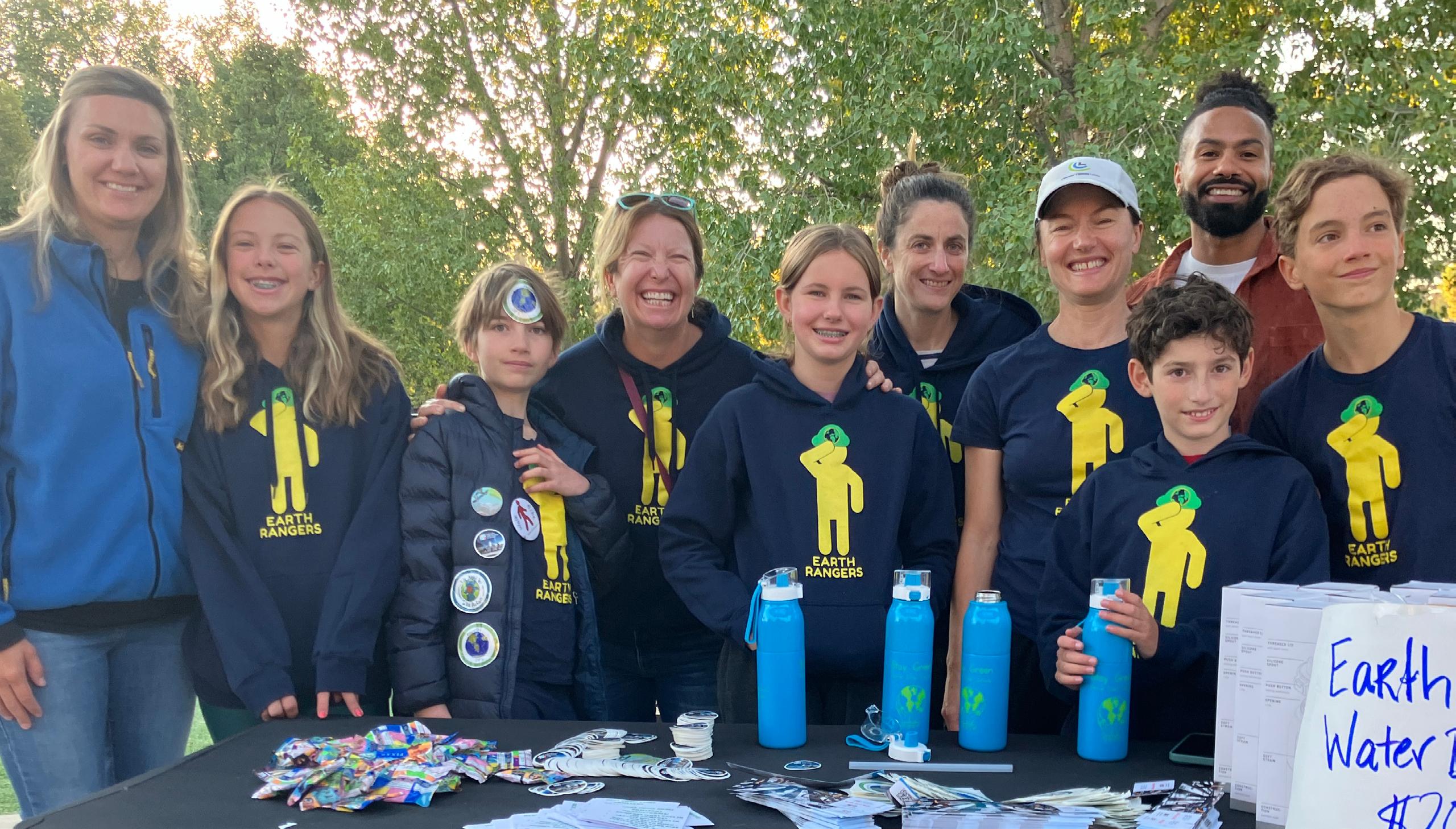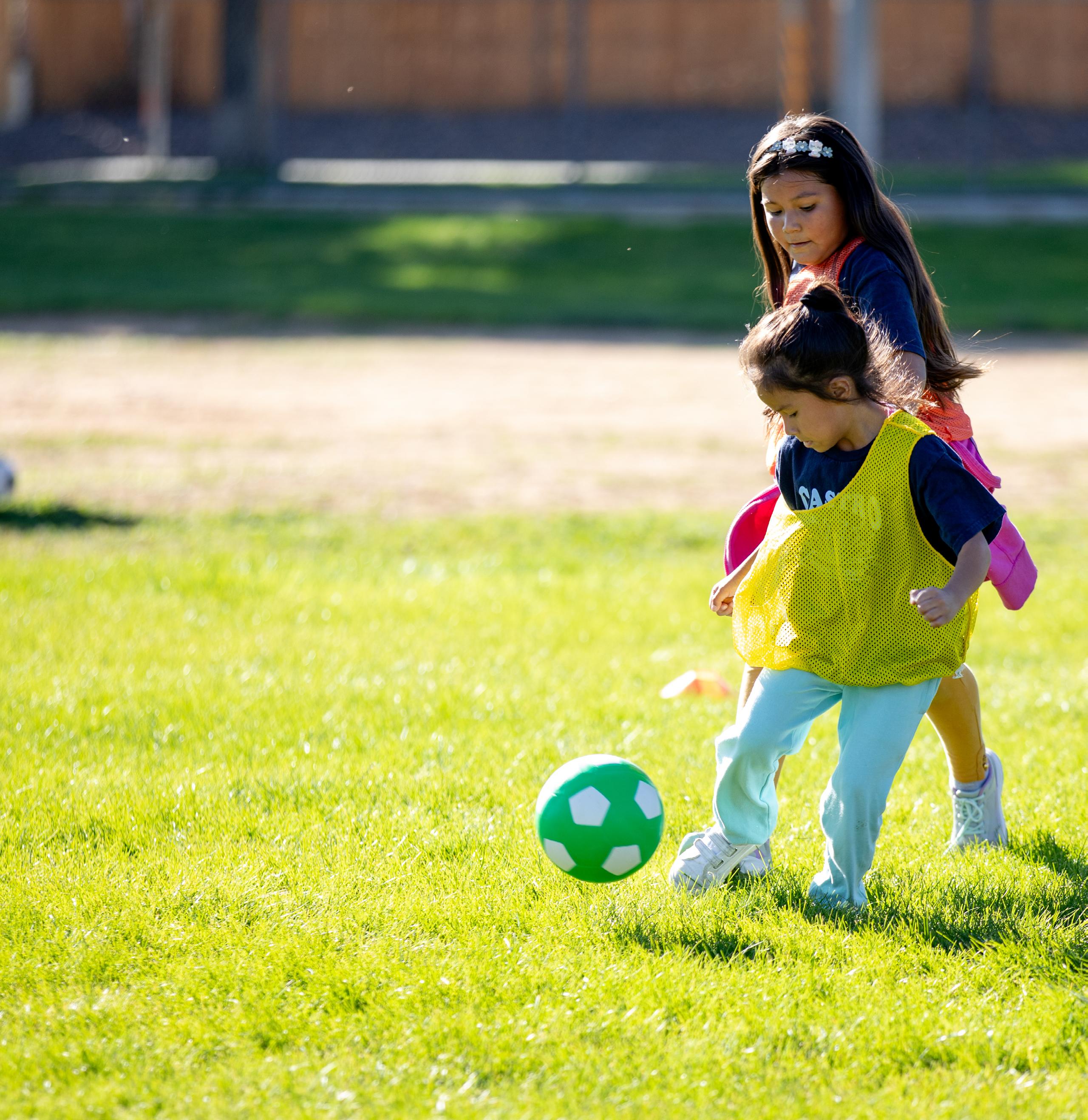

How Students Experience Climate Change
This figure is adapted from the IPCC’s 2023 Synthesis Report, and it shows how different generations of DPS graduates will experience the effects of a hotter world, and how that experience will be affected by the climate action we take today. This shows the importance of acting with urgency to avoid the worst impacts of climate change. Ultimately, the climate that adult staff and educators grew up in doesn’t exist anymore for today’s students.
“Today’s students will spend the rest of their lives on a hotter planet, mainly owing to the actions — and inactions — of their elders.”
-Yale Climate Connections
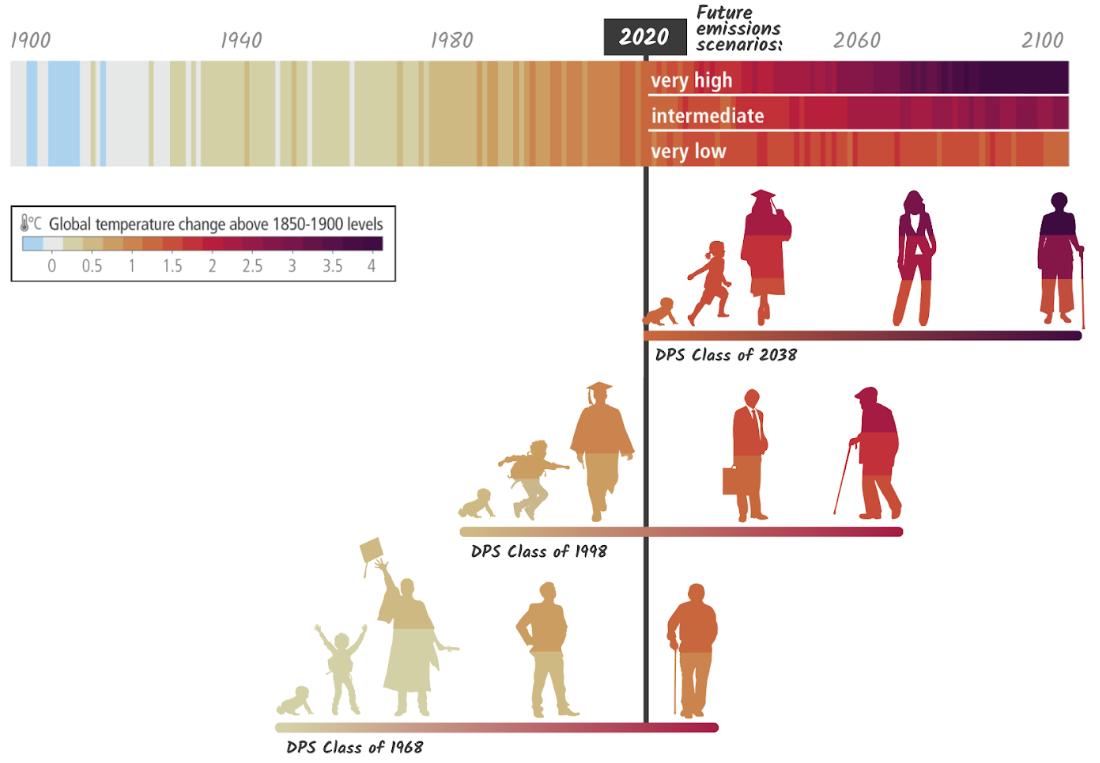
Students also suffer from climate anxiety. A recent study2 surveyed 10,000 youth in 10 countries about their thoughts on climate change, and the results are profound:
• 59% of respondents are very or extremely worried about climate change,
• 84%, the vast majority, are at least moderately worried about climate change, and
• 75% said that they think the future is frightening.
This survey shows climate change doesn’t just take a physical toll on youth it takes a heavy emotional and mental toll as well.
“ClimateChange: It’sreal. It’sus. It’sserious-andalreadydangerous. Buttherearesolutions. Thescienceisclear:thefasterwecut emissions,thelesssufferingwewill cause,andthebetteroff we’llallbe.”
-Katharine Hayhoe, climate scientist
2 Hickman et al (2021). Climate anxiety in children and young people and their beliefs about government responses to climate change: a global survey. The Lancet Planetary Health.
Student Climate Artwork
This work shows how students used their voices to exchange ideas, share their passions, and work toward justice.
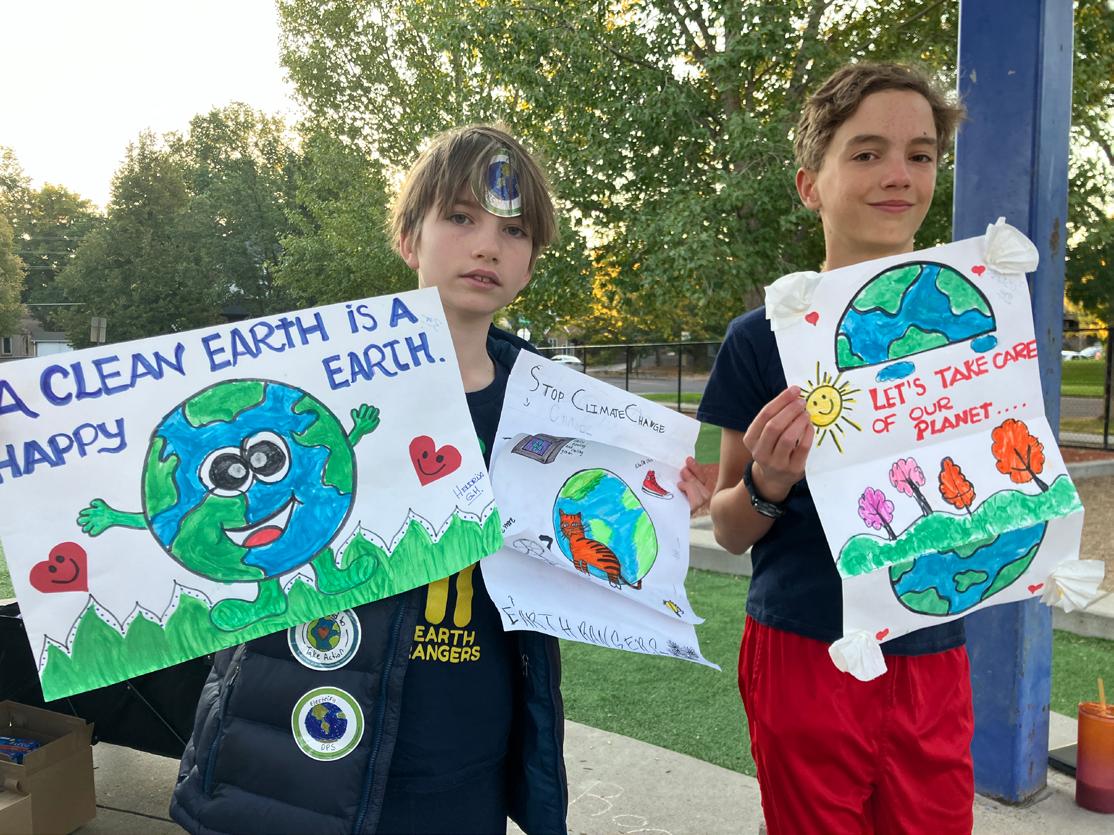
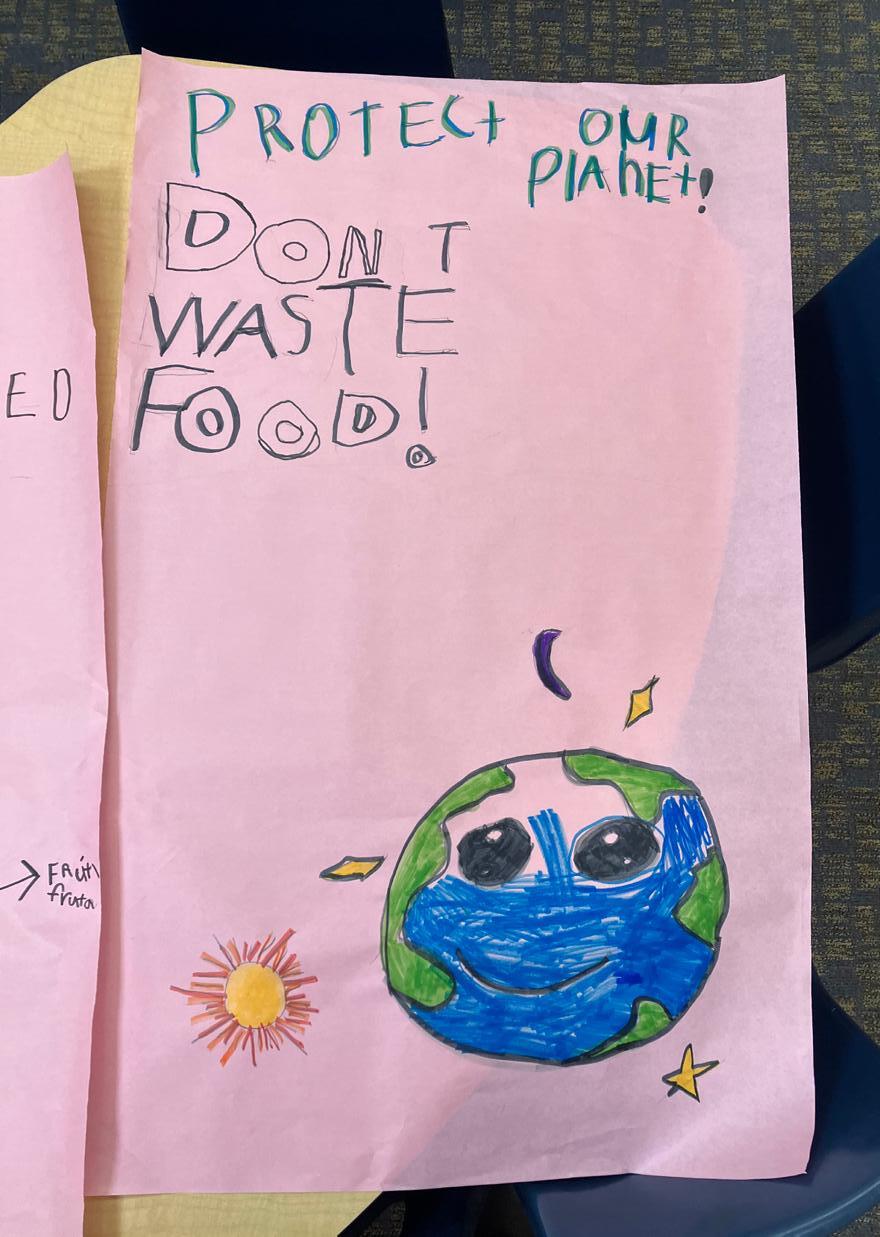
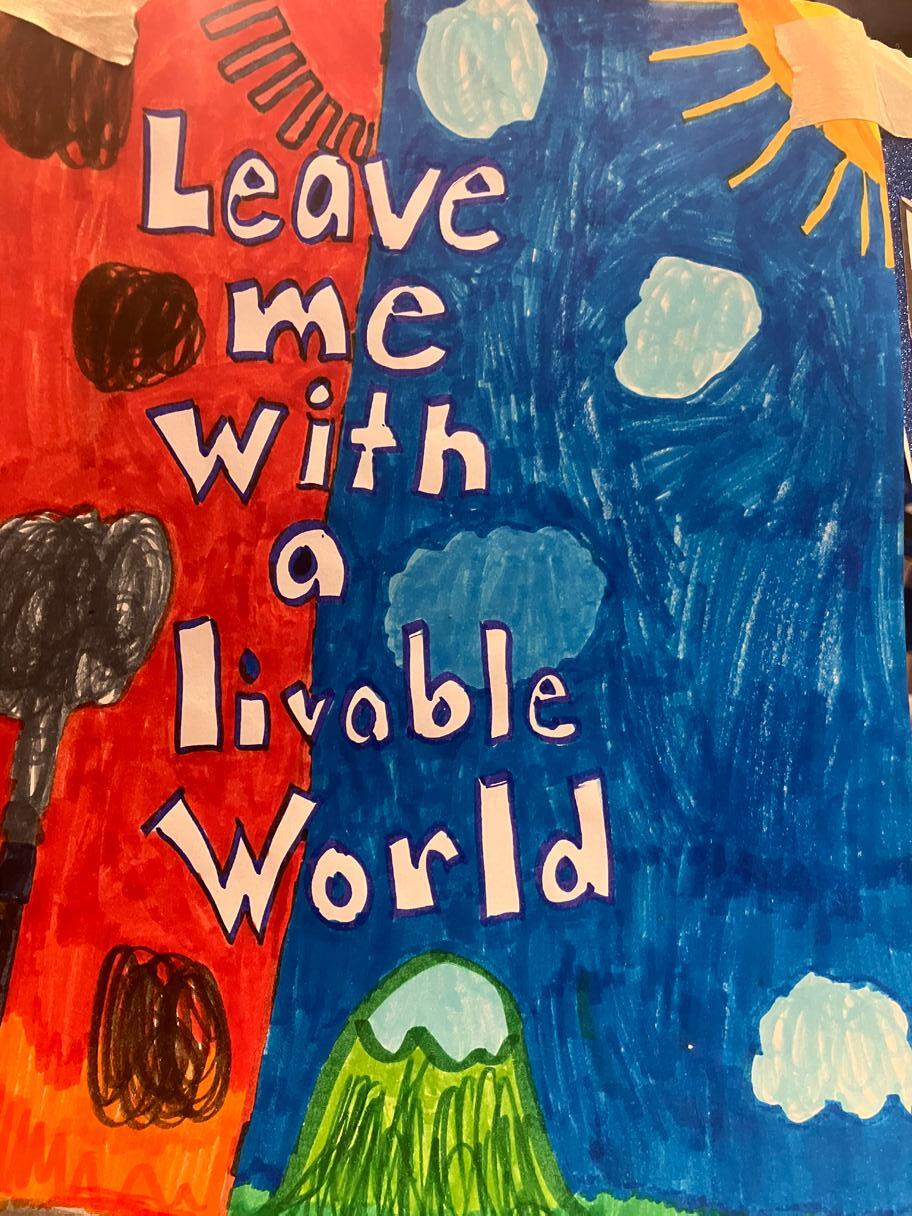

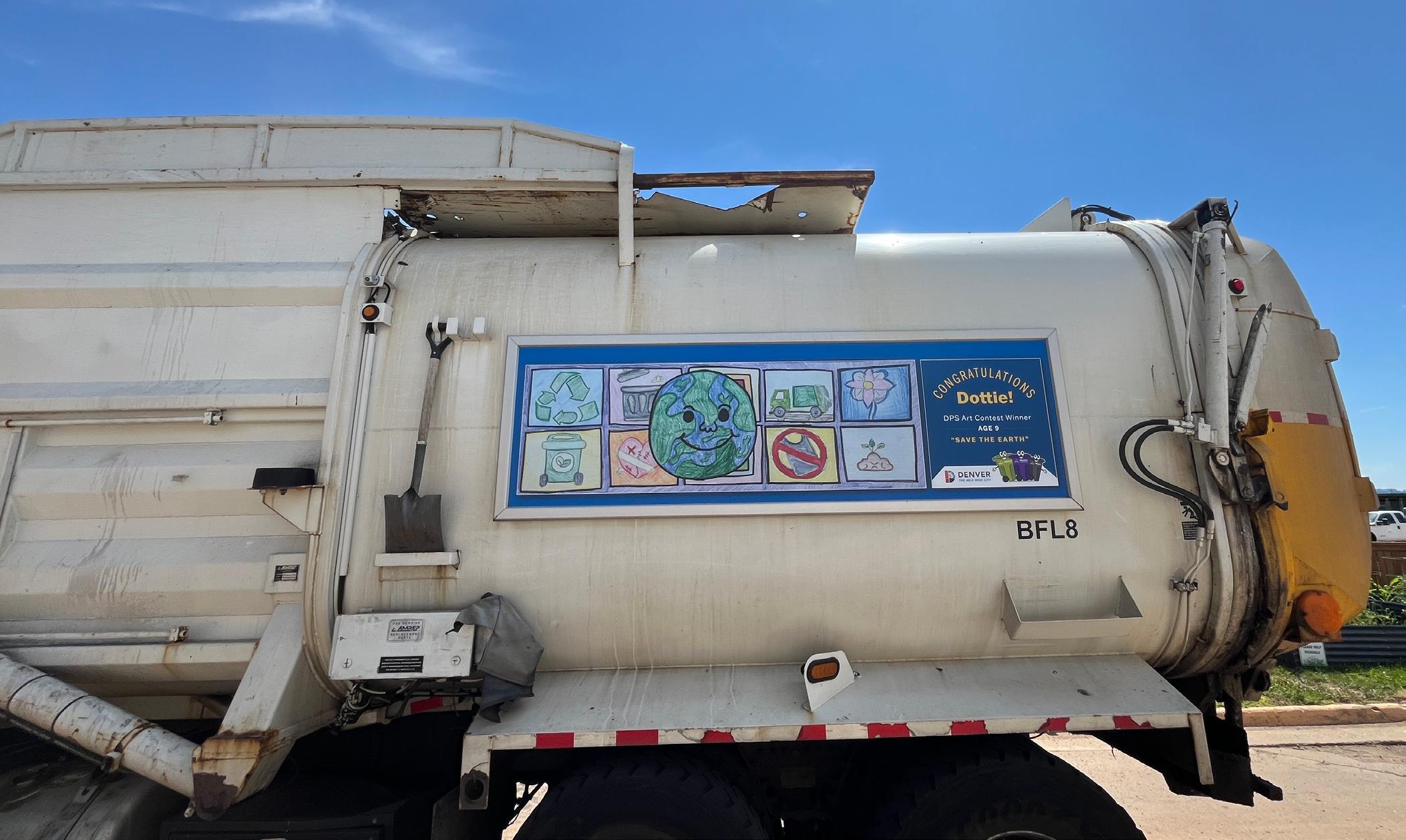
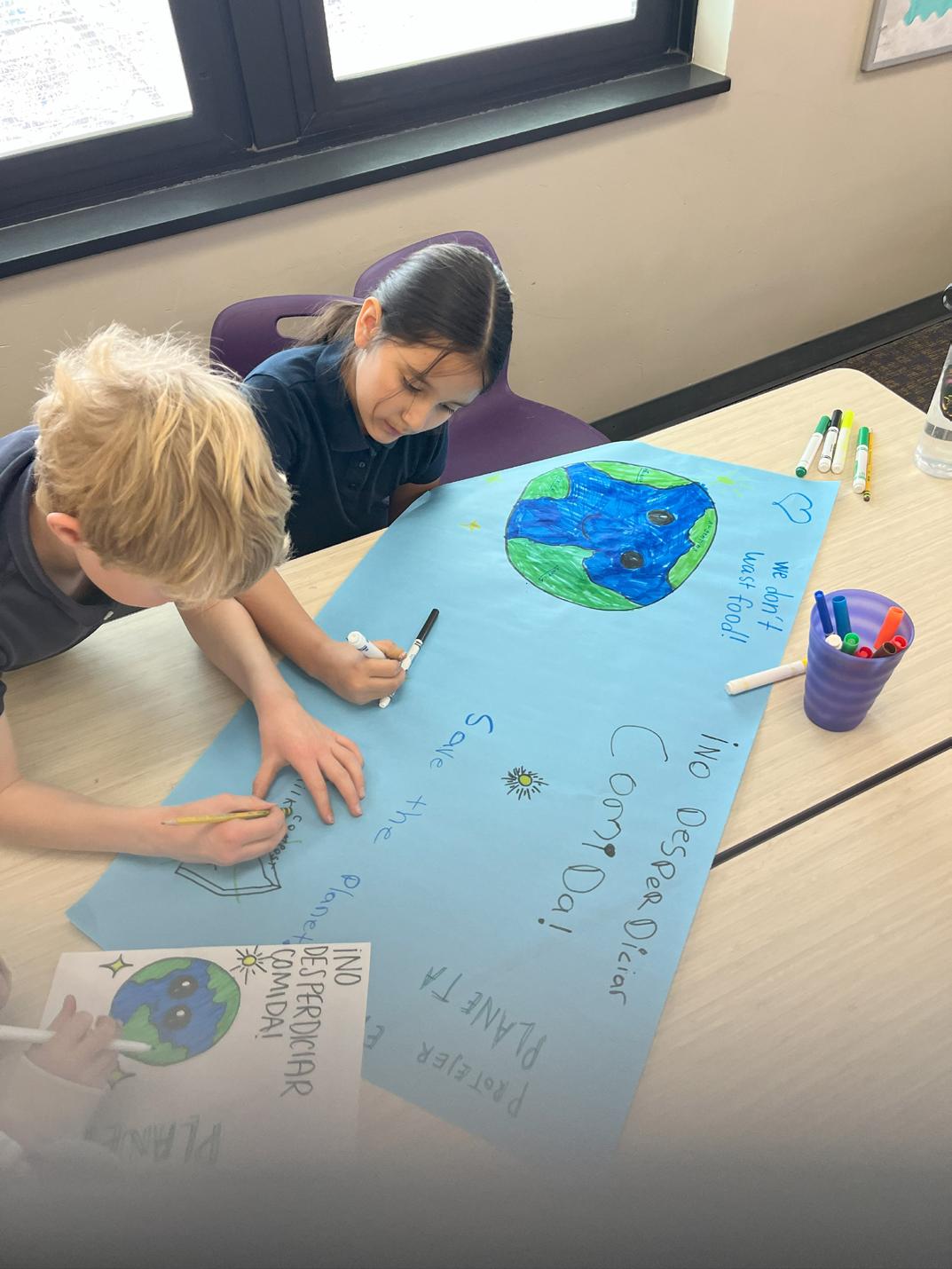
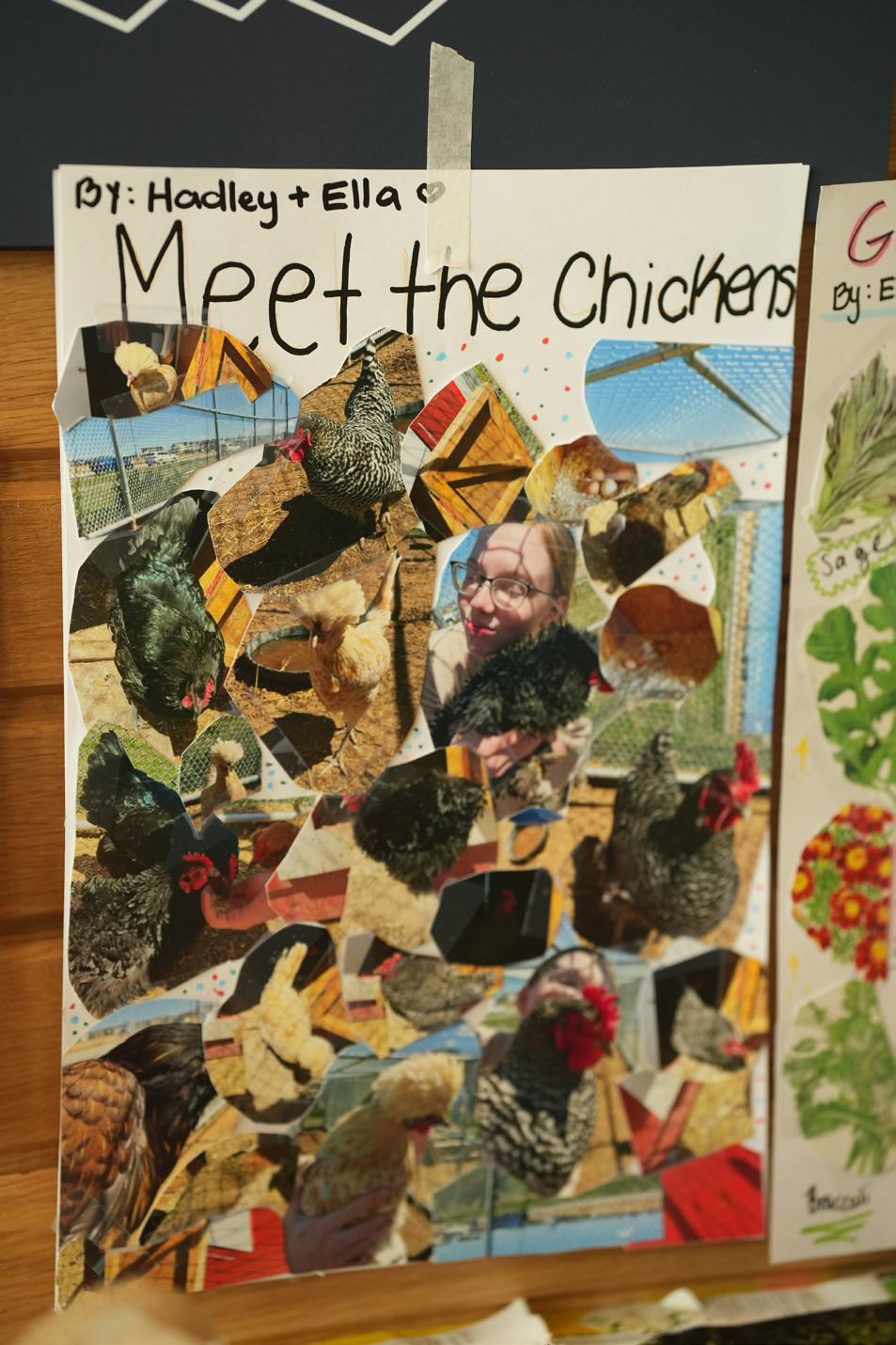
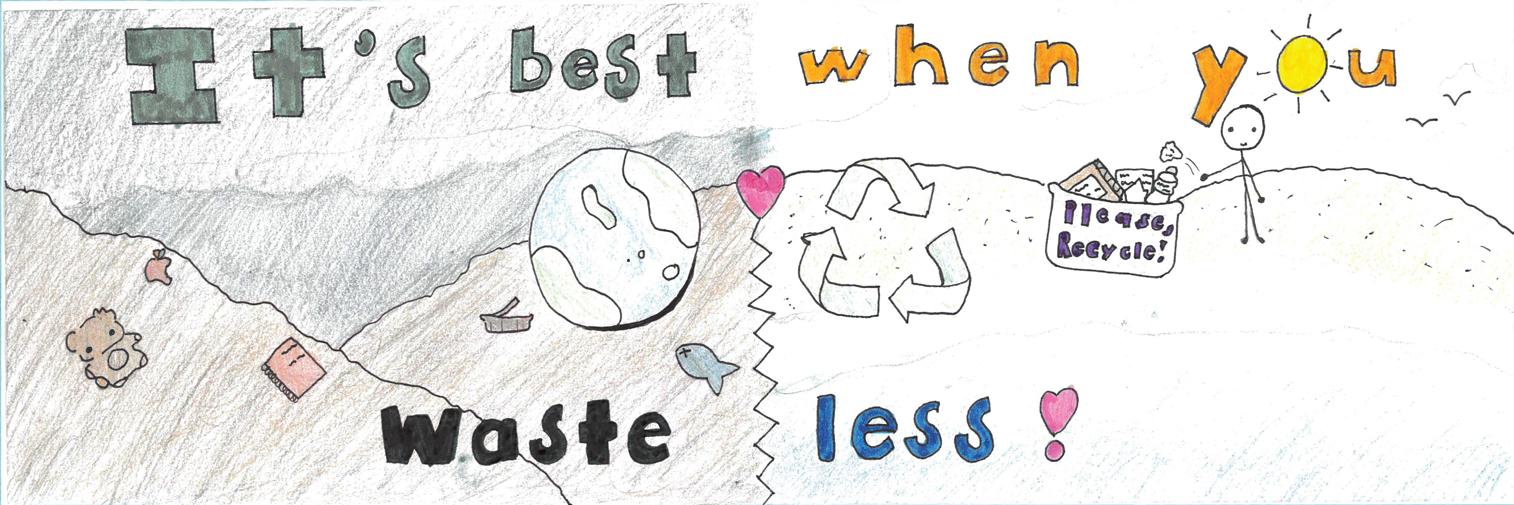




“Nature is the most creative person I’ve ever met.”
- Cat R., DSST: College View
“In my print, I wanted to express my admiration for Nature’s more understated elements, which take the form of a barn owl.”
- Kayla R., South High

Built Environment
ELECTRIFICATION GOAL: Electrify 80% of the heating load for 10 buildings
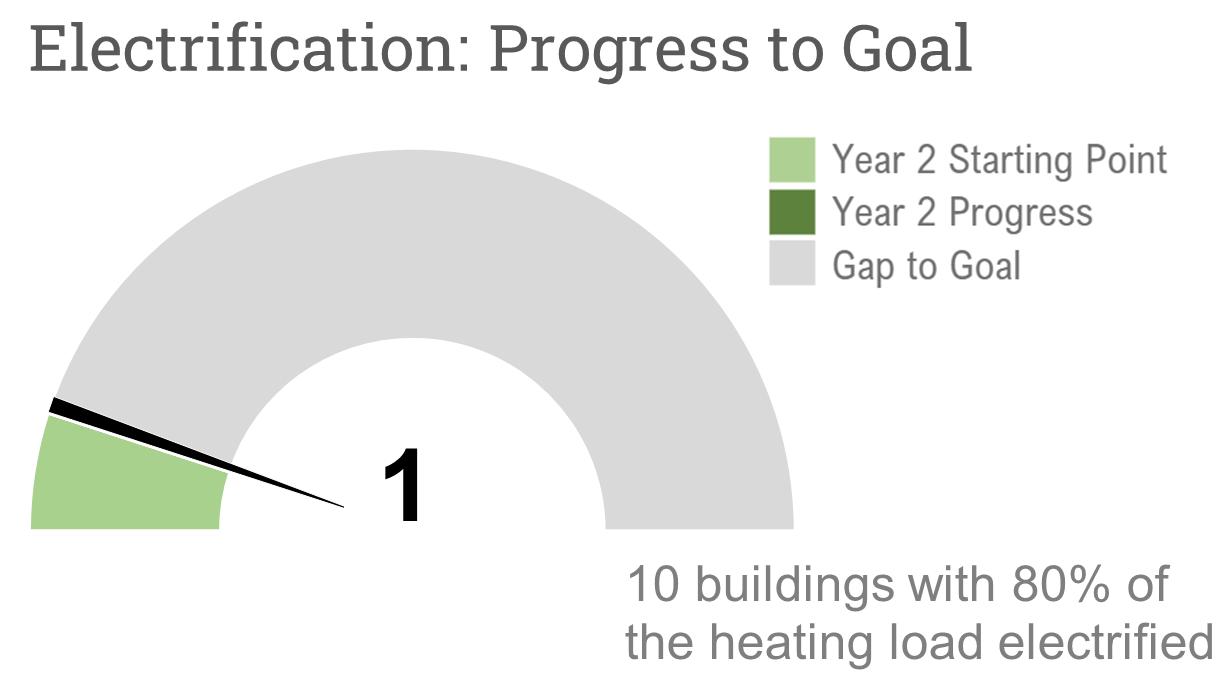
The building currently meeting this goal is the Responsive Arts & STEAM Academy FNE (RASA), DPS’ first all-electric school.
For an existing building to reach the Electrification Goal, DPS has to both install heat pumps and then operate them in a way that they are doing most of the heating instead of the existing boilers. DPS needs to navigate:
• having heat pumps serve almost all of the conditioned floor area,
• reducing the operation of existing natural gas boilers, and
• actively monitoring natural gas usage.
Staff worked to optimize heat pump operations at three buildings that had heat pumps installed as part of the 2020 Bond. They evaluated and altered HVAC controls to reduce heating from the existing natural gas boiler systems. These buildings were: Carson Elementary, Stedman Elementary, and Denison Montessori.
With the passing of the 2024 Bond, 20 of the 29 schools receiving air conditioning will receive “climate-conscious” air conditioning with heat pumps over the next four years, and staff will work to monitor and optimize the operation of these heat pumps.
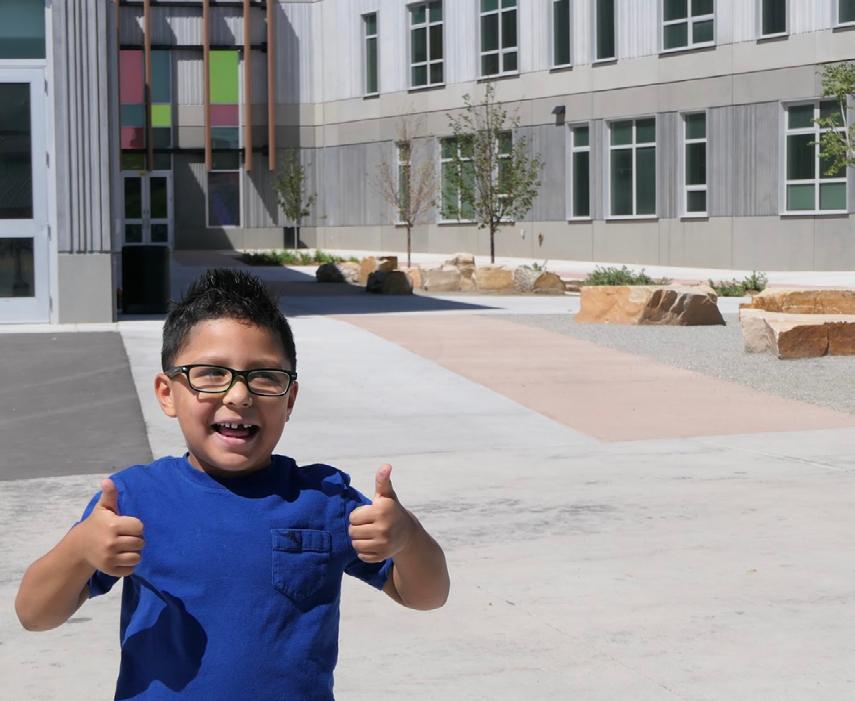
Two thumbs up for RASA
BUILDING
Retrofitting heat pumps into schools in our climate is cutting-edge, so DPS is both charting new territory and learning as we go.
It’s also important to note that heat pumps are about three times more energy efficient at heating than their natural gas boiler counterparts. Therefore, heat pumps will also positively affect the Energy Management goal.
ENVELOPE GOAL: Commission two existing building envelopes and incorporate findings into future financial impact assessments
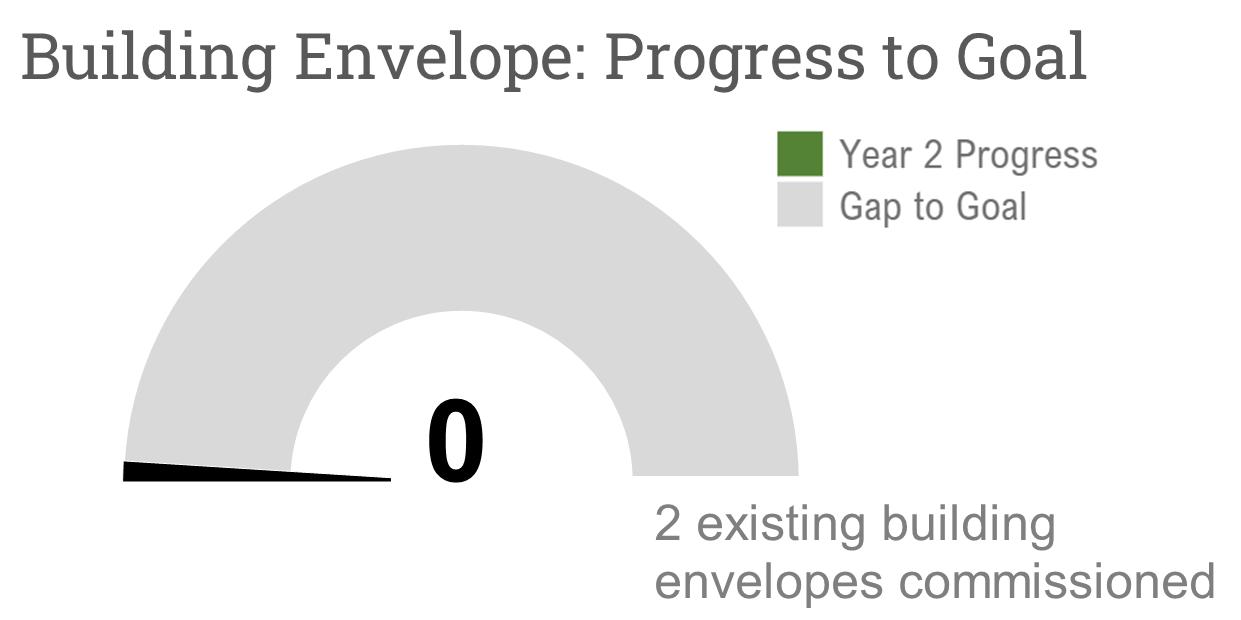
The 2024 Bond provides $200k for a study to provide cost estimates to improve or repair envelopes, also known as building shells or enclosures, of select DPS buildings. Staff has identified five potential buildings for analysis in this study, and staff are in the process of narrowing down the five buildings to the final two. Staff will then work on next steps of contracting for and completing this study.
Staff also developed request for proposal (RFP) language for building envelope assessments and commissioning. This language ensures the building envelope is commissioned along with other building systems after construction.
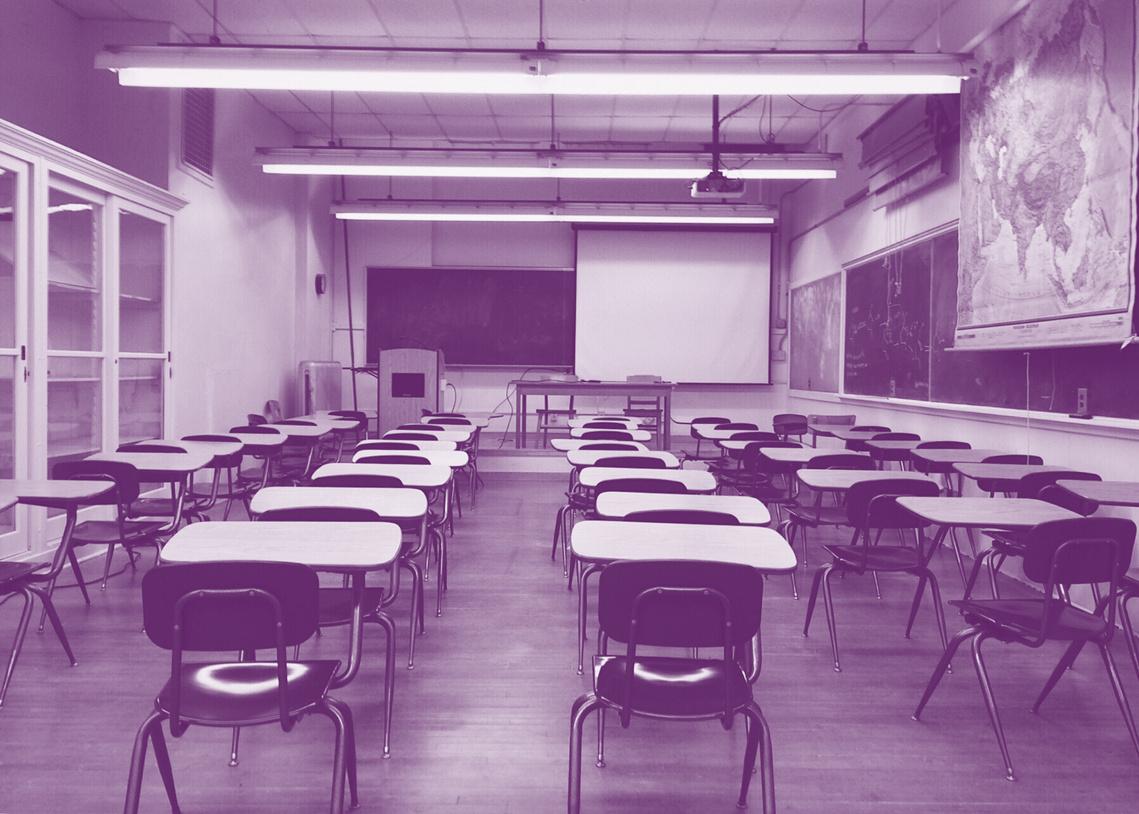
High-Performance Building Envelope?

A high-performance building envelope acts as the barrier between a building's interior and the outside world.
It is designed to maximize energy efficiency, durability, and indoor air quality. The building envelope's design Key components addresses specific performance needs for a structure's include insulation, exterior. These components, crafted from various air and vapor building materials, include the foundation, walls, and barriers, and considerations for airtightness, movement, acoustics, weather barriers. durability, and energy.
DPS Climate Action Plan Goal: Commission two existing building envelopes and incorporate findings into future financial impact assessments.

A high-performance envelope improves the learning environment by making buildings:
DESIGN STANDARDS GOAL: Require Sustainable Design Guidelines to be integrated into all capital improvement decisions
A standards stakeholder group has been established and meets consistently to discuss updates to existing standards and developing new standards.
DPS has drafted three standards for electric vehicles. These are going through internal review and are intended to be used in projects in the 2025-26 school year.
• Public, Student, Staff Chargers and Infrastructure
• White Fleet Chargers and Infrastructure
• Yellow Fleet Chargers and Infrastructure
DPS has also updated its irrigation standards to incorporate water conservation best practices, and DPS plans to review standards for cool roofs, building controls, paint and coatings, and more.
The Sustainable Design Guiding Standards were added to the Construction Standards website. These guiding principles are value statements that will help guide DPS construction projects, as applicable. For example, the guiding standards are being used to assist with the design of the new Gateway elementary school, which is in the early planning and design stages.
There is still work to do in both incorporating sustainability into all construction standards and ensuring the existing standards are being enforced.
SMART BUILDINGS GOAL: Implement one fully SMART building, perform a cost-benefit analysis, and create a funding plan for additional SMART buildings.
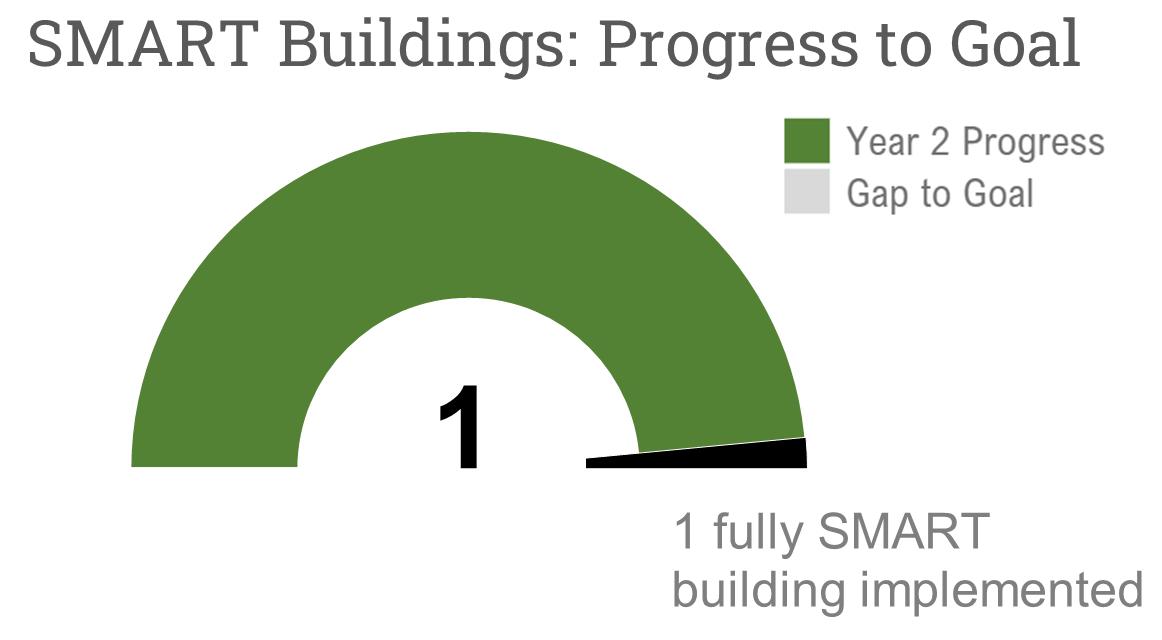
DPS’ RASA is a SMART building. While there are opportunities to implement additional SMART building features, RASA meets our definition of a SMART building.
A SMART building collects data from multiple systems and devices and shares that information so that action can be taken to improve business process, operational efficiency, sustainability, decarbonization, health and occupant safety and user experience.
Staff also analyzed the cost per square foot for each criteria of SMART buildings and researched funding opportunities for additional SMART buildings. Unfortunately, no funding opportunities were found.
Staff will work next on performing the cost-benefit analysis, and use that analysis to inform the funding plan.
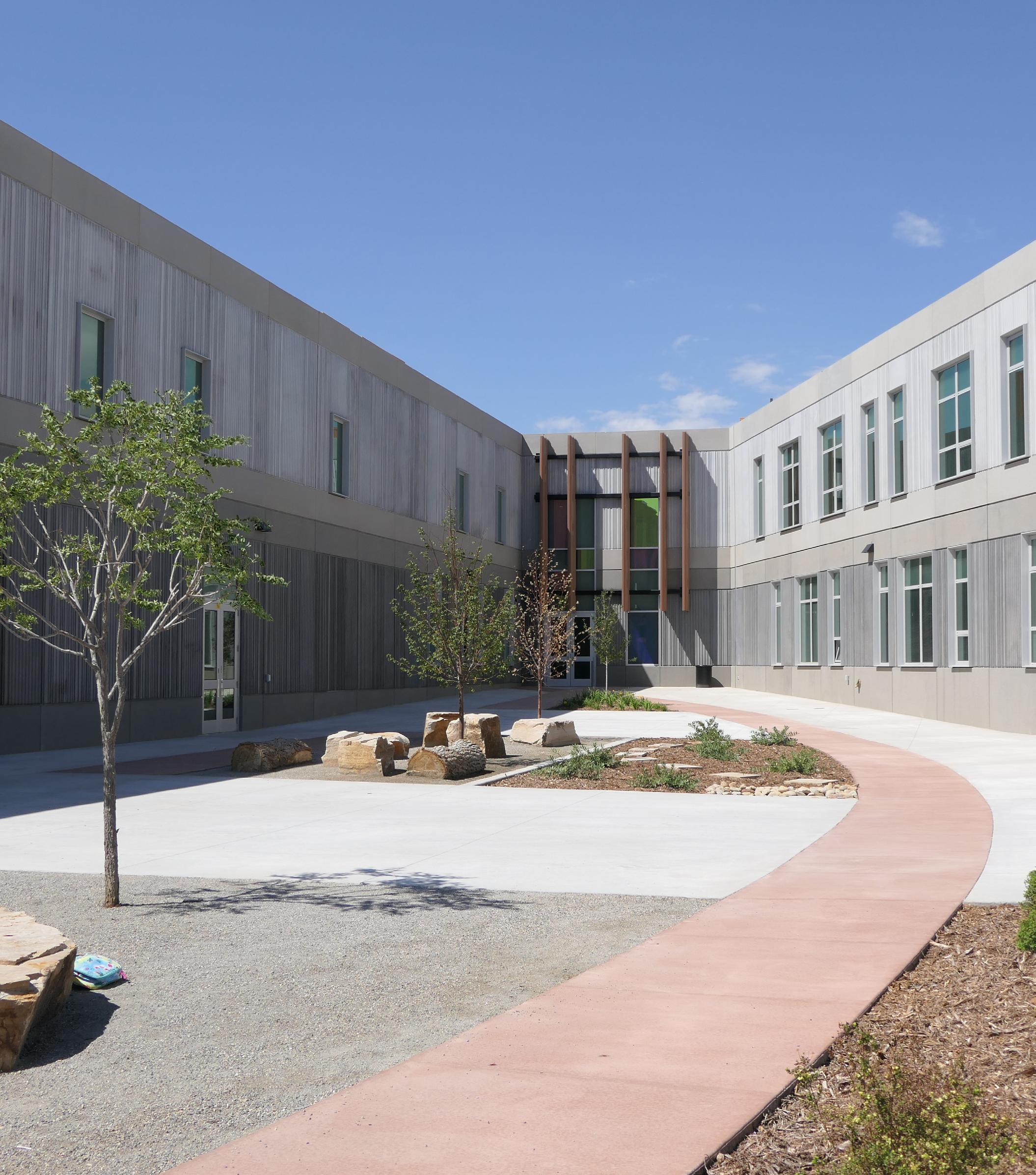
RASA is a fully SMART building

What is a SMART Building?


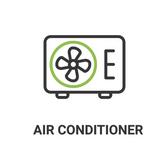
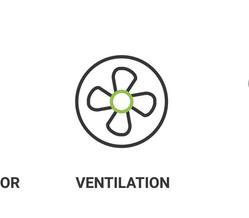
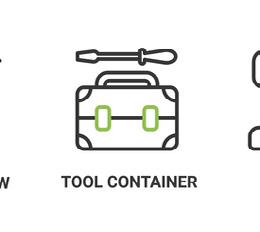
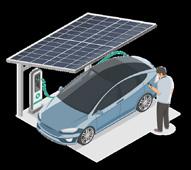


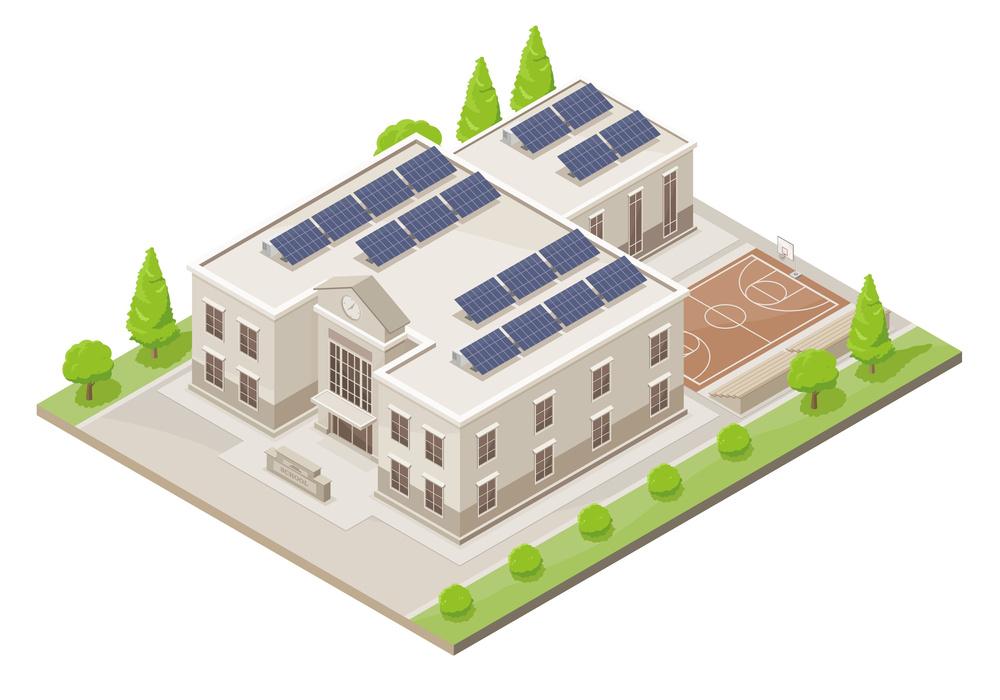
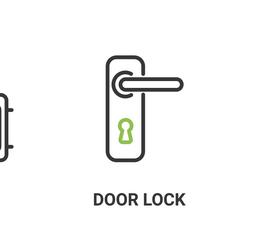


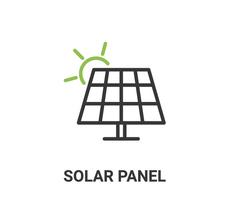

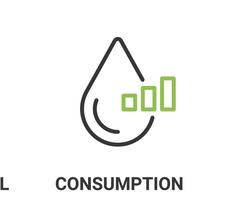

DPS Climate Action Plan Goal: Implement one fully SMART building, perform a cost-benefit analysis, and create a funding plan for additional SMART buildings.

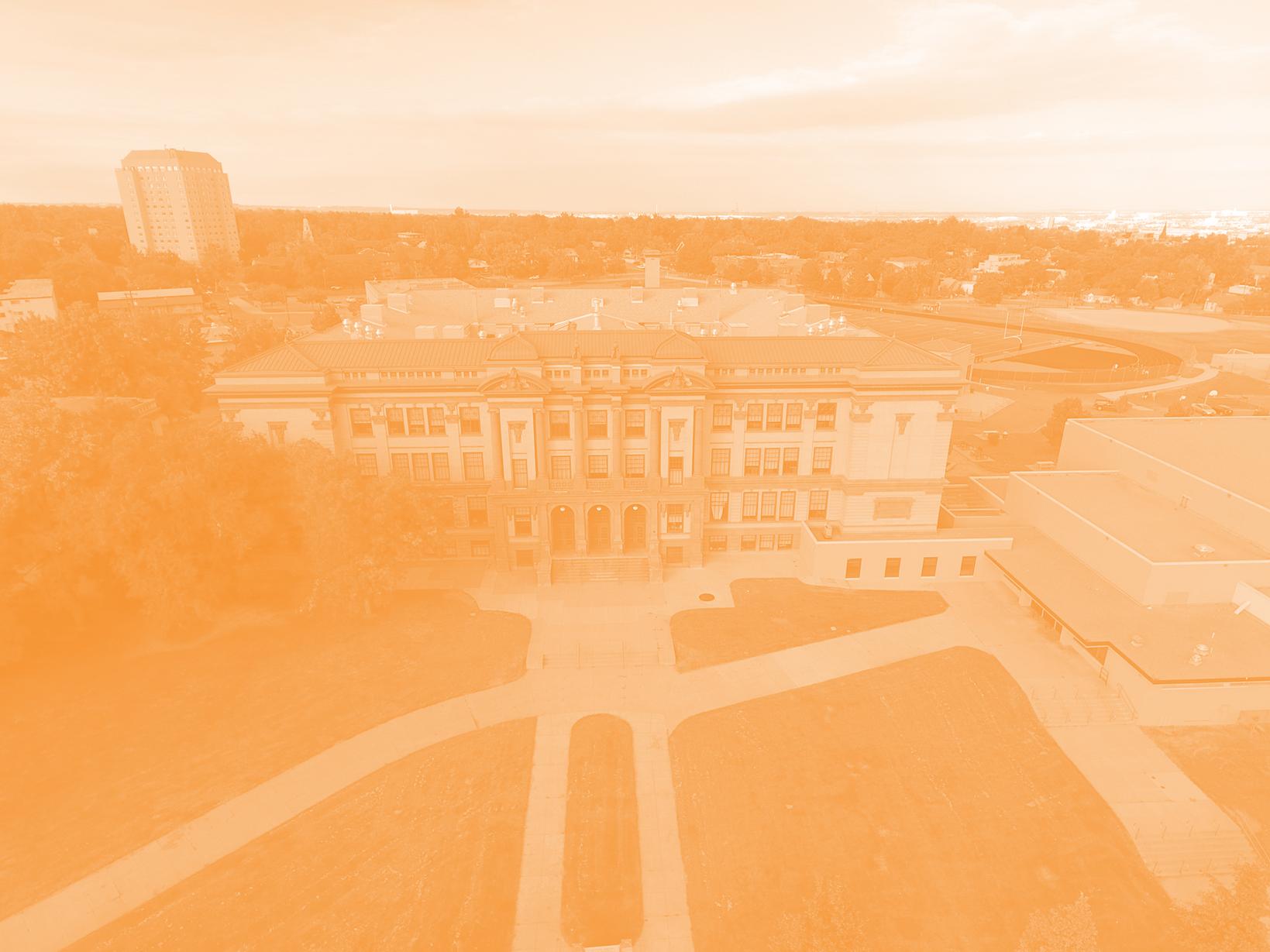


A SMART building collects data from multiple systems and devices and shares that information so that action can be taken to improve operational efficiency, sustainability, decarbonization, health & occupant safety, and user experience. Check


SMART buildings improve the learning environment by making buildings:
RENEWABLES
GOAL: 65% of electricity supplied to DPS is renewable
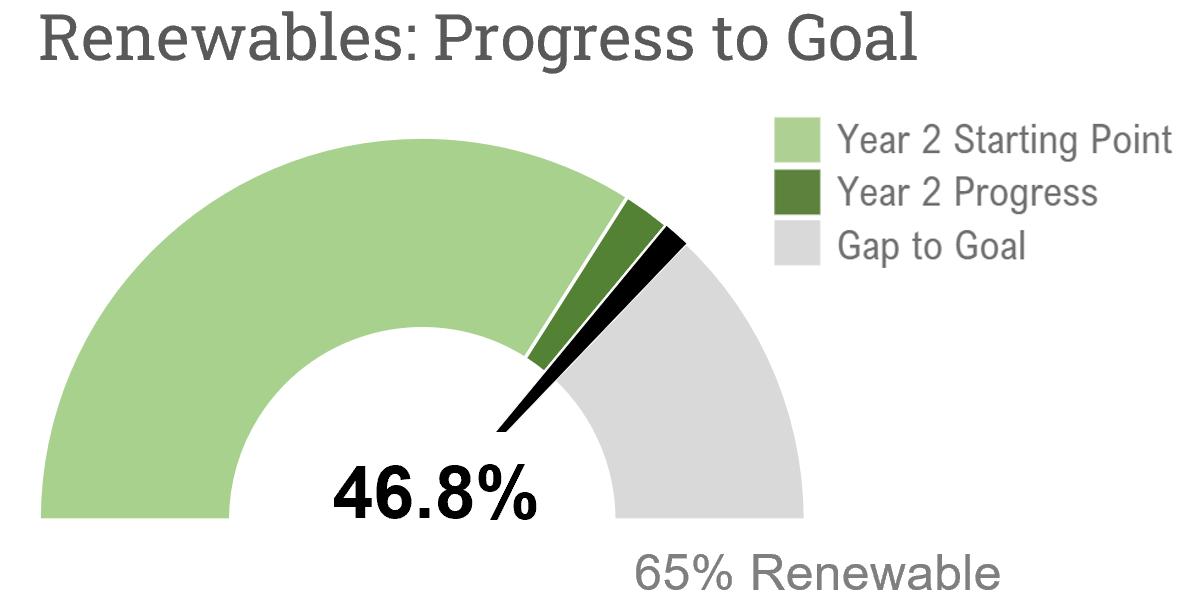
At the time of this publication, Xcel Energy’s Colorado Certified Renewable Percentage for 2024 is expected to be 46.8%. That is the percentage of electricity supplied to DPS that is renewable.
The 2024 Bond provides $6.3M for new rooftop solar. This is estimated to fund enough solar to cover about one-third of the gap estimated to remain for the Renewables Goal after the cleaning of the electric grid by 2028 is taken into account.
Staff performed planning and analysis around this bond funding, and the resulting plan is to install rooftop solar at Montbello High School and RASA, and then identify an additional 4-6 schools for installations depending on solar system size and market conditions. For these new DPS-owned solar installations, DPS plans to keep the renewable energy credits (RECs) to be able to claim the associated production toward its Renewables Goal.
Additionally, from July 2024 through June 2025, the solar arrays at DPS sites produced over 10,441 MWh of clean electricity. But because DPS sells the RECs from these solar arrays, DPS cannot count this solar production toward its Renewables Goal.
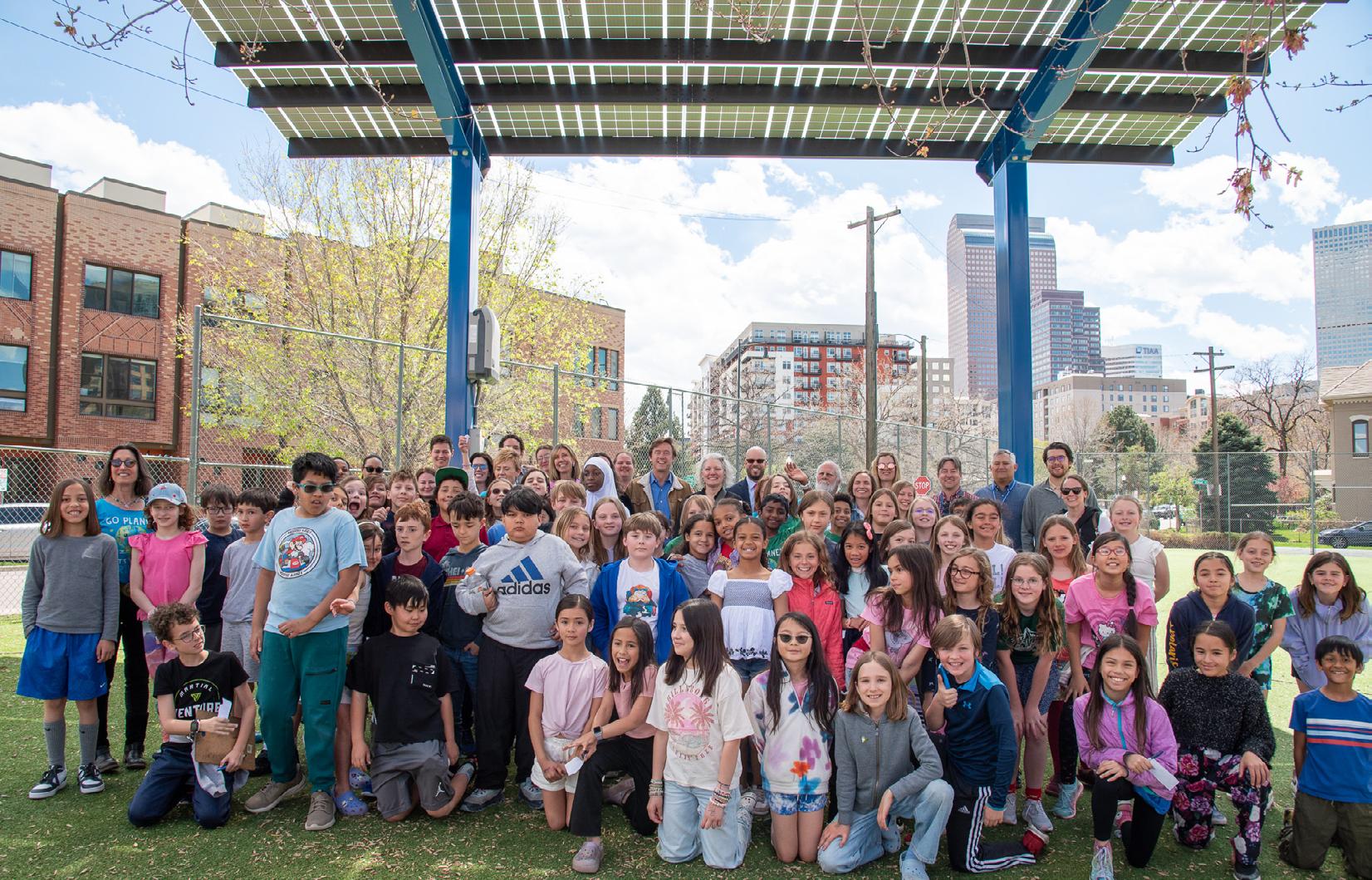
Community Solar carport installed at Abe Lincoln High
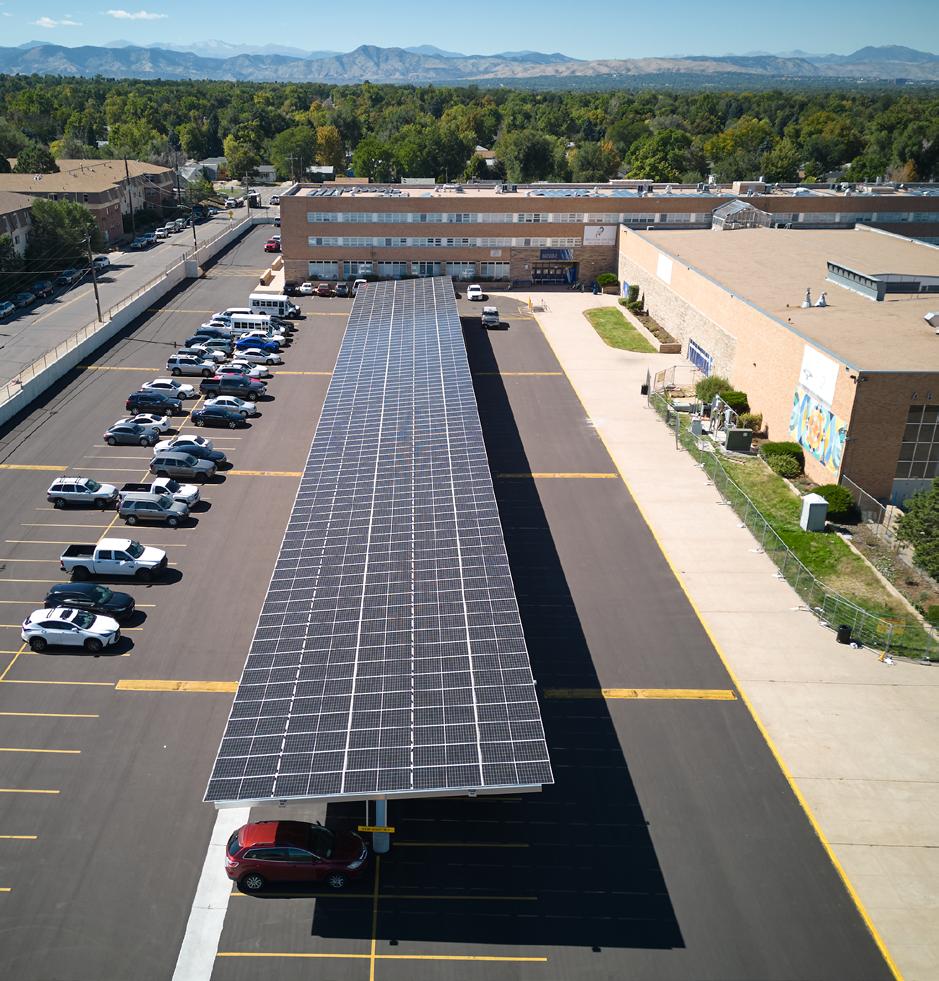
In collaboration with Denver’s Office of Climate Action, Sustainability, and Resiliency, DPS facilitated the installation of a community solar carport at Abe Lincoln High School. This solar carport was funded by Denver’s Climate Protection Fund, generates 235 kW of clean energy, supports three electric vehicle charging ports, and provides about 40 solar subscriptions to income-qualified families in our community, saving each family an estimated $700 per year on their energy bill.
Students at Polaris Elementary celebrate Earth Week under their solar outdoor classroom with Mayor Johnston and Superintendent Marrero.
Photo credit: McKinstry
DPS families benefit from community solar donation
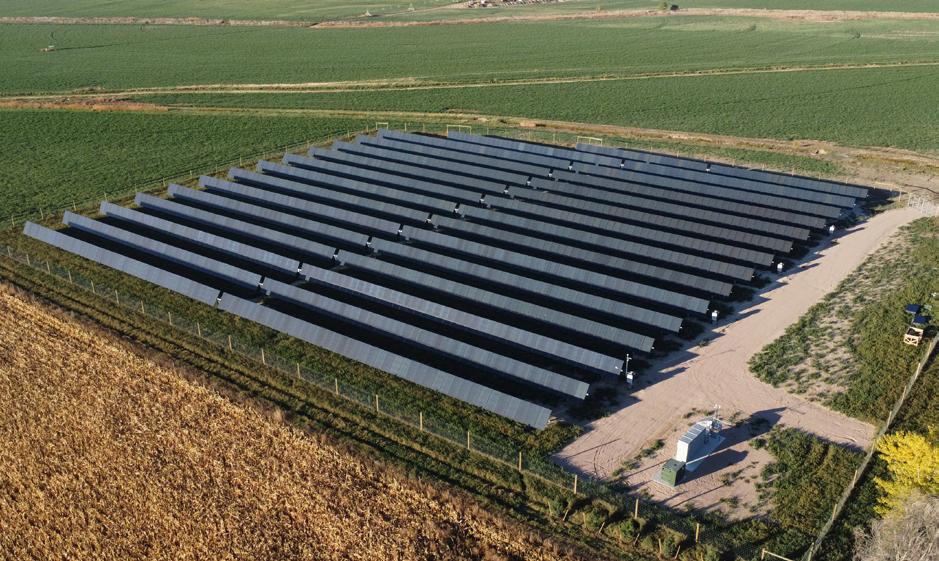
Photo credit: SunShare Community Solar
Income-qualified DPS families received no-cost subscriptions to SunShare’s Lark Bunting community solar garden as part of a partnership between DPS, SunShare, and Energy Outreach Colorado. Almost 900 DPS families are estimated to save about $750 annually on their energy bill.
11 solar outdoor classrooms benefit students and save money
DPS and the City and County of Denver partnered to create engaging outdoor learning spaces using visible solar panels as both a teaching tool and shade structure. Eleven solar outdoor learning spaces were installed this year, bringing the district total to 14. These 14 sites provide 154 kW of clean electricity, an equivalent of about 15 residential-sized solar systems.
Since the solar panels are in plain sight — not hidden on a rooftop — they’re inspiring the next generation of clean energy leaders. And, these solar panels lower each school’s utility bills, so more money goes back into classrooms.
These solar outdoor classrooms were funded by Denver’s Climate Protection Fund.
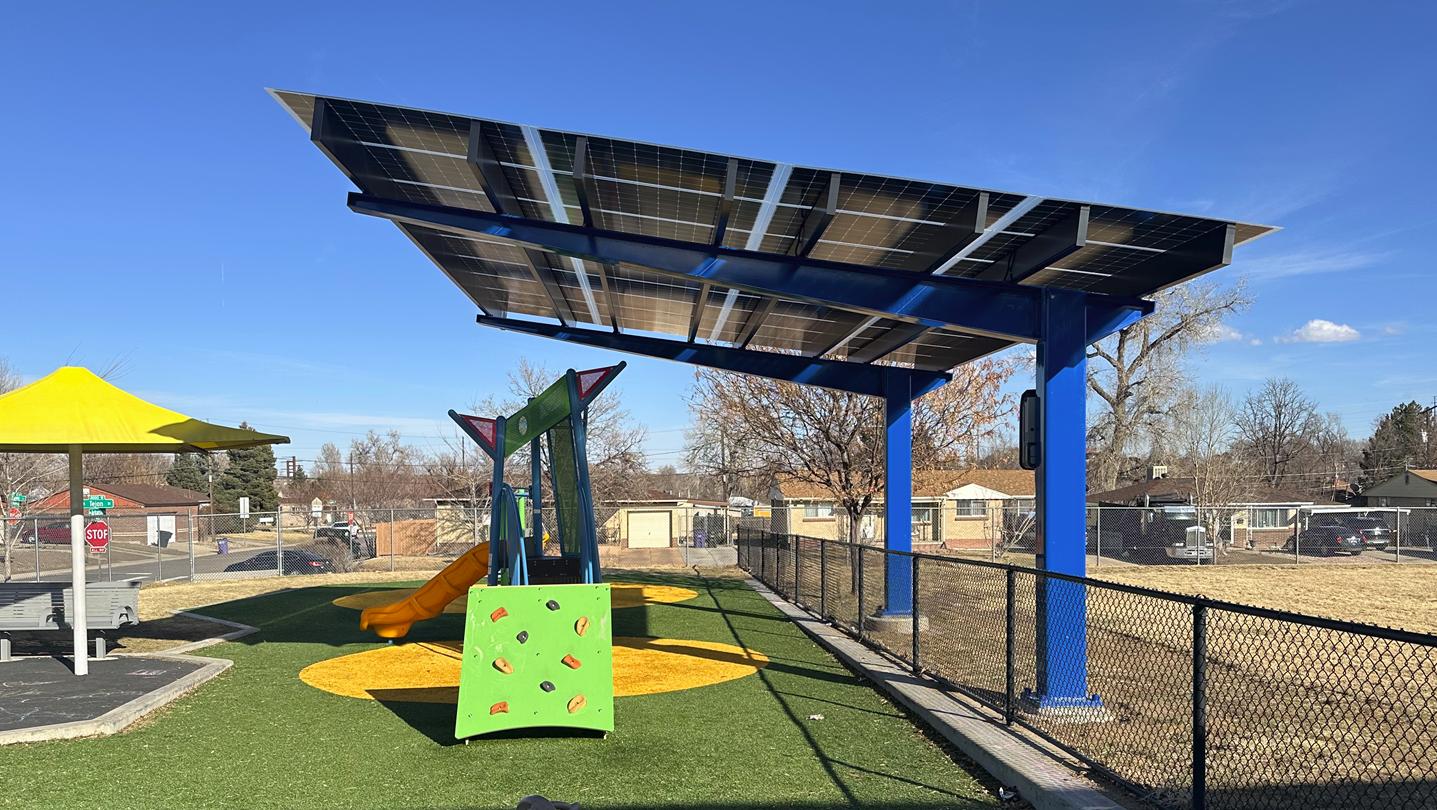
GROUNDS GOAL: Create Sustainable Landscape Standard & Implementation Plan
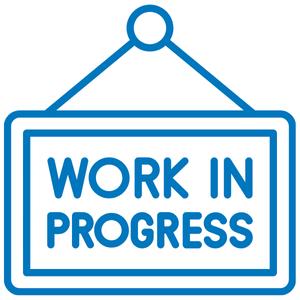
The Sustainability Team hired Superbloom, a local landscape architecture firm, to develop the Sustainable Landscape Standard & Implementation Plan, and the work is progressing on schedule.
The plan will include analysis and mapping of 30 landscapes and their soil types and will provide cost estimates for their transformation to sustainable landscapes. The plan will also include best practice manuals, transformation plans for three pilot sites, and standardized plant palettes to assist with plant selection.
We expect the plan to be finalized in the upcoming fiscal year, and the plan will be used to inform future funding requests for sustainable landscape transformations and best practices for maintaining our current landscapes.
Additionally, the Sustainability Team was awarded $30,000 from the Metro Denver Nature Alliance as part of its Regional Vision Demonstration Project Grants program. This grant will support the sustainable landscape transformation at one of the pilot sites analyzed in the plan. The results will support equitable access to nature and environmental justice for students.
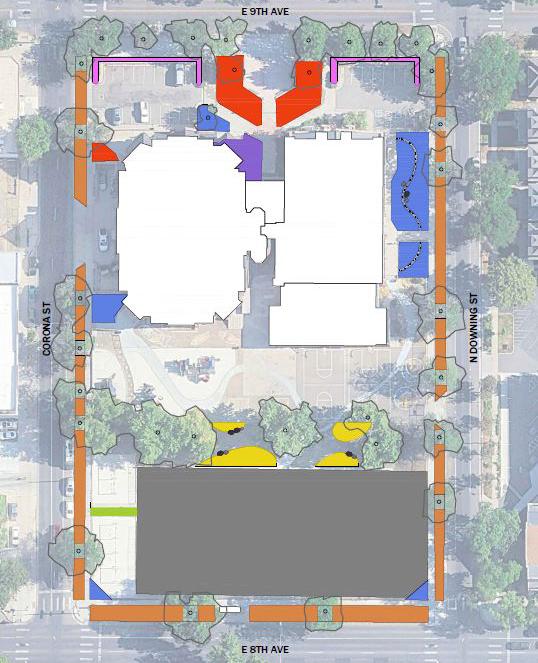
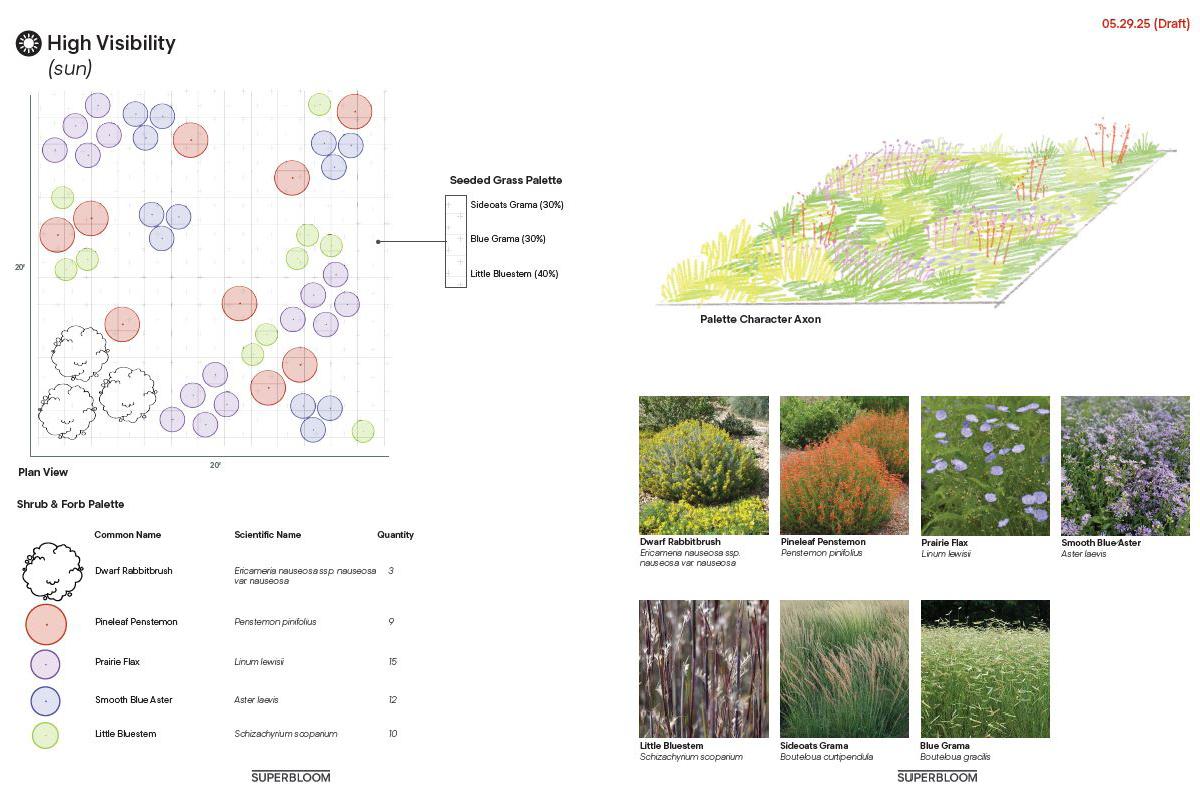
Transportation
YELLOW FLEET GOAL: 12% of buses are zero “tailpipe” emissions
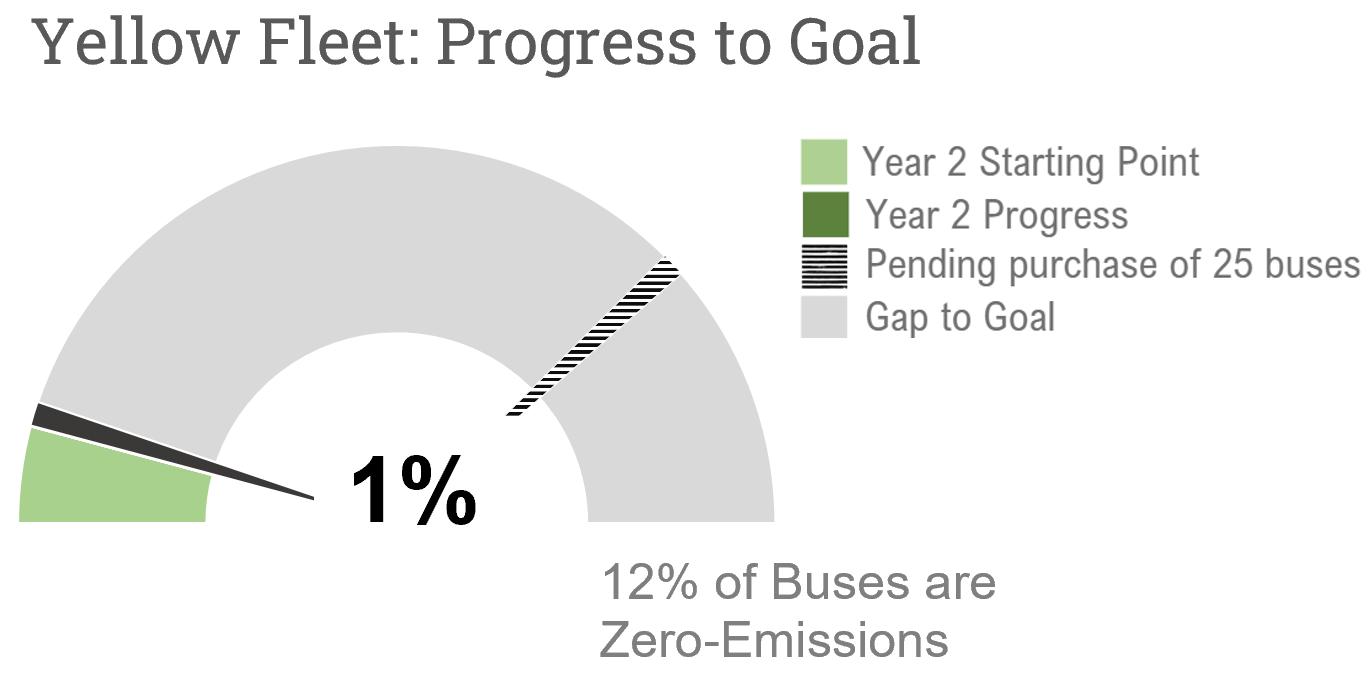
There are three electric buses in DPS’ fleet, and they are named Elvis (short for ELectric Vehicle In Service), Lisa Marie, and Priscilla.
In the previous fiscal year (FY24), DPS was awarded funding from the Colorado Electric School Bus Grant Program to purchase 20 electric school buses and 12 charging stations (for a total of 24 charging ports).
Due to updates in the grant over the last year, DPS has now been awarded grant money for 5 additional buses, bringing the total to 25 buses and 13 charging stations (for a total of 26 charging ports).
This year staff did a lot of work around accepting the grant and coordinating with grant stakeholders. An RFP was completed for the electric bus orders, and an RFP for the charging station installation is in progress. The intent is to purchase the electric school buses by the end of the 2025-26 school year.
After this grant, DPS is expected to have 10% of buses that are zero “tailpipe” emissions, and we estimate that six additional electric buses will need to be purchased to reach the Yellow Fleet Goal.
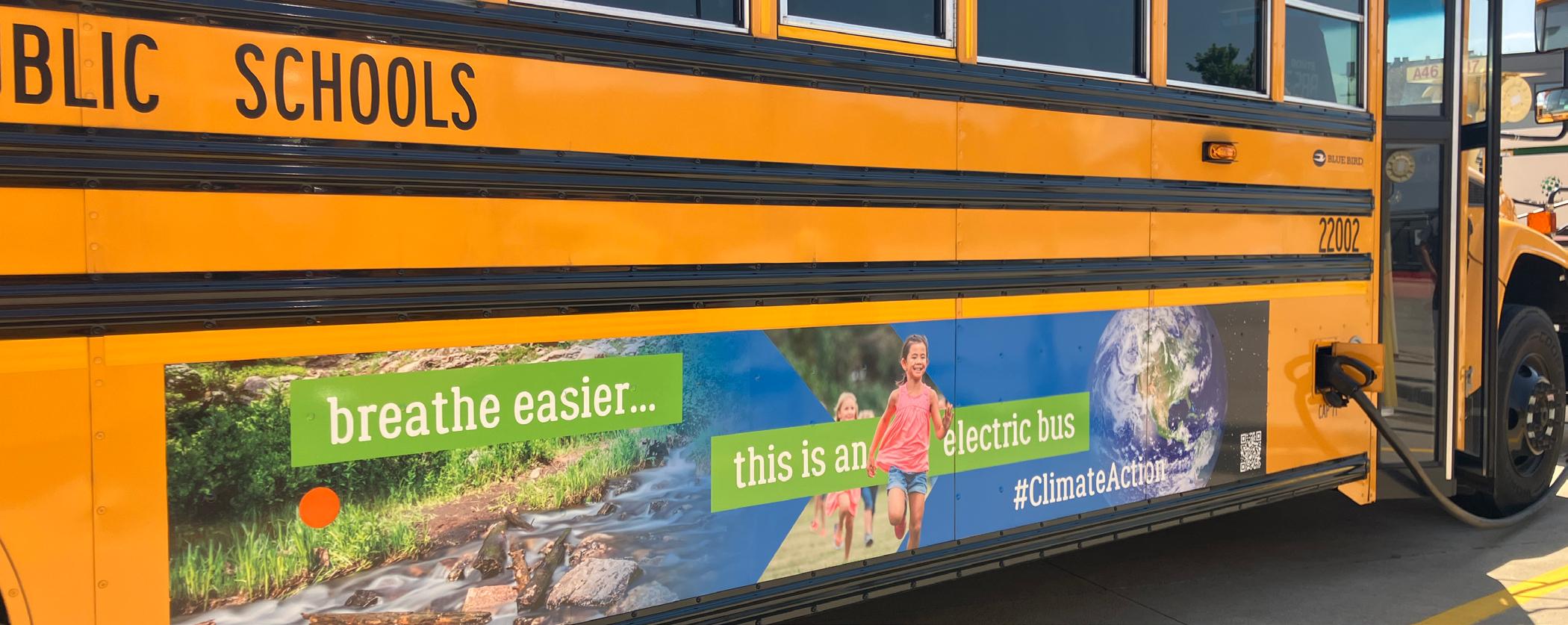
WHITE FLEET GOAL: 7% of vehicles are zero “tailpipe” emissions
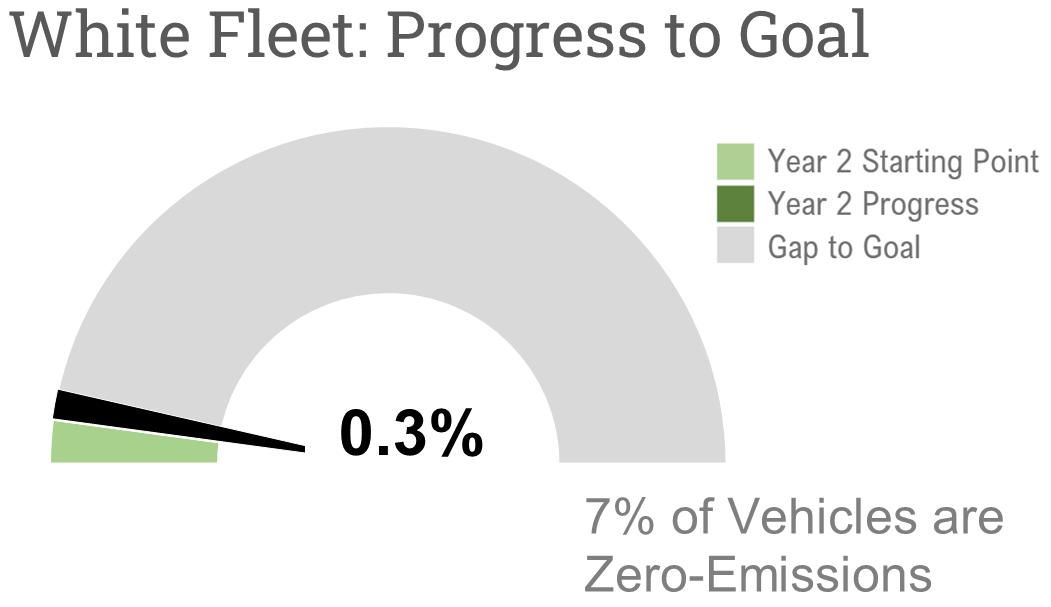
There is one zero “tailpipe” emissions vehicle in DPS’ white fleet, and it is estimated DPS will need 23 more vehicles to reach the White Fleet Goal.
Staff continued work with Xcel Energy’s Fleet Electrification Advisory Program (FEAP) to identify the DPS vehicles that are best suited for electrification and to identify the best charging locations across the district for white fleet. Staff will work to see which of FEAP’s vehicle and charging recommendations are worth pursuing given budgetary constraints.
Staff will continue to look for grant funding and perform infrastructure planning to support this goal, but there is currently no funding for any premiums to purchase zero “tailpipe” emission vehicles.
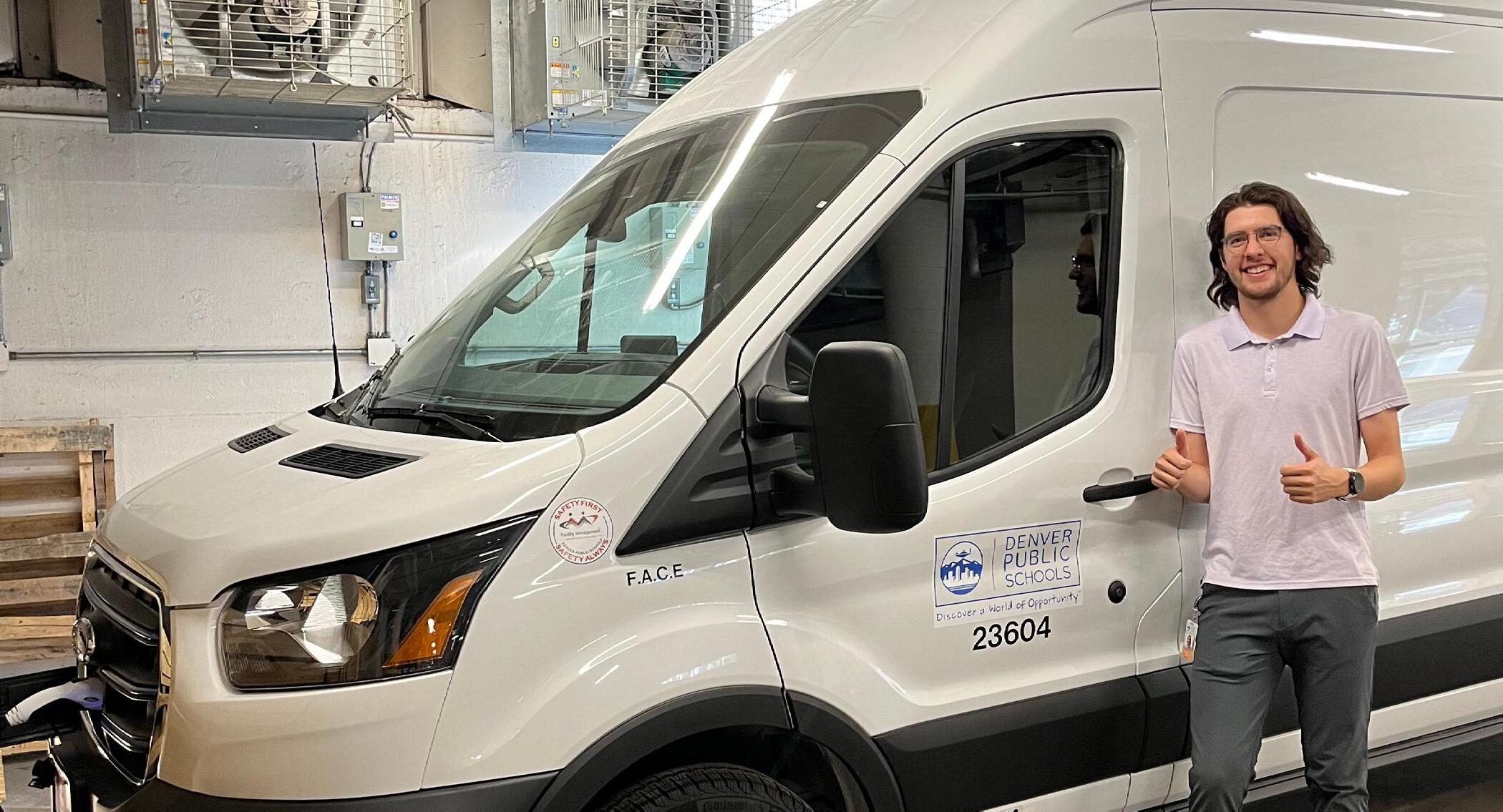
COMMUTER GOAL: Create an incentive program to increase alternative modes of transportation to DPS locations

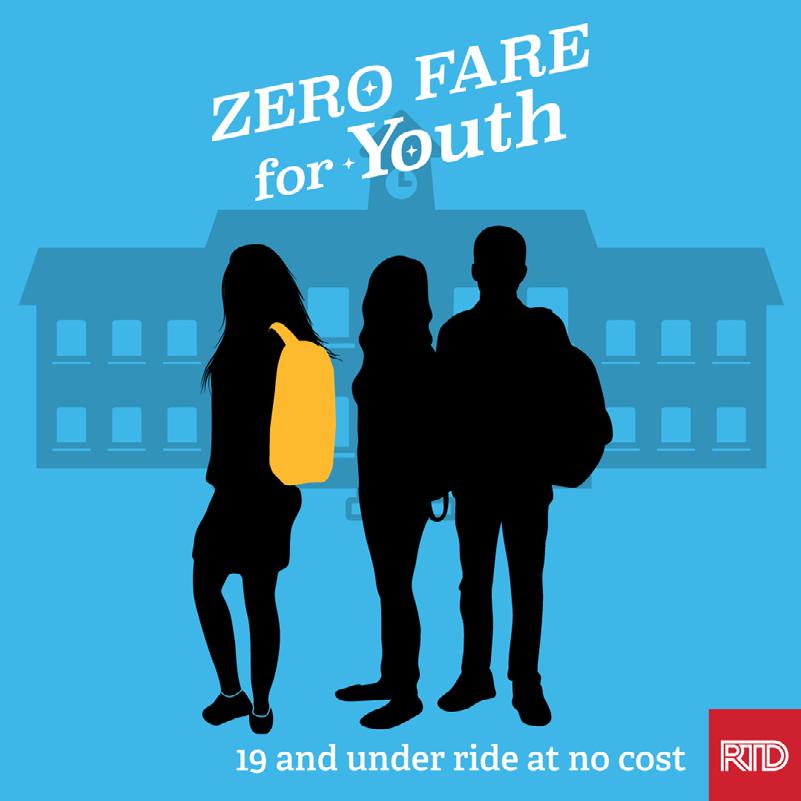
RTD, Denver’s public transportation agency, made its Zero Fare for Youth program permanent this year. That means anyone 19 years old or younger can ride Denver’s public transit for free. While this is not a DPS-sponsored program, this initiative allows DPS students to be able to ride transit, save money, and reduce air pollution.
A thumbs up to the Family and Community Engagement Team for purchasing the first electric vehicle in DPS’ white fleet.
Staff analyzed the feasibility and cost of installing electric vehicle charging infrastructure at three schools that reached out with an interest in getting charging at their site (GALS, Denver Language School Gilpin Campus, and Denver Language School Whiteman Campus). Staff are continuing the planning and analysis and are working to create a form to gauge the level of interest at other sites.
There are now EV chargers available for the DPS community at Northeast Early College, RASA, and Abe Lincoln High.
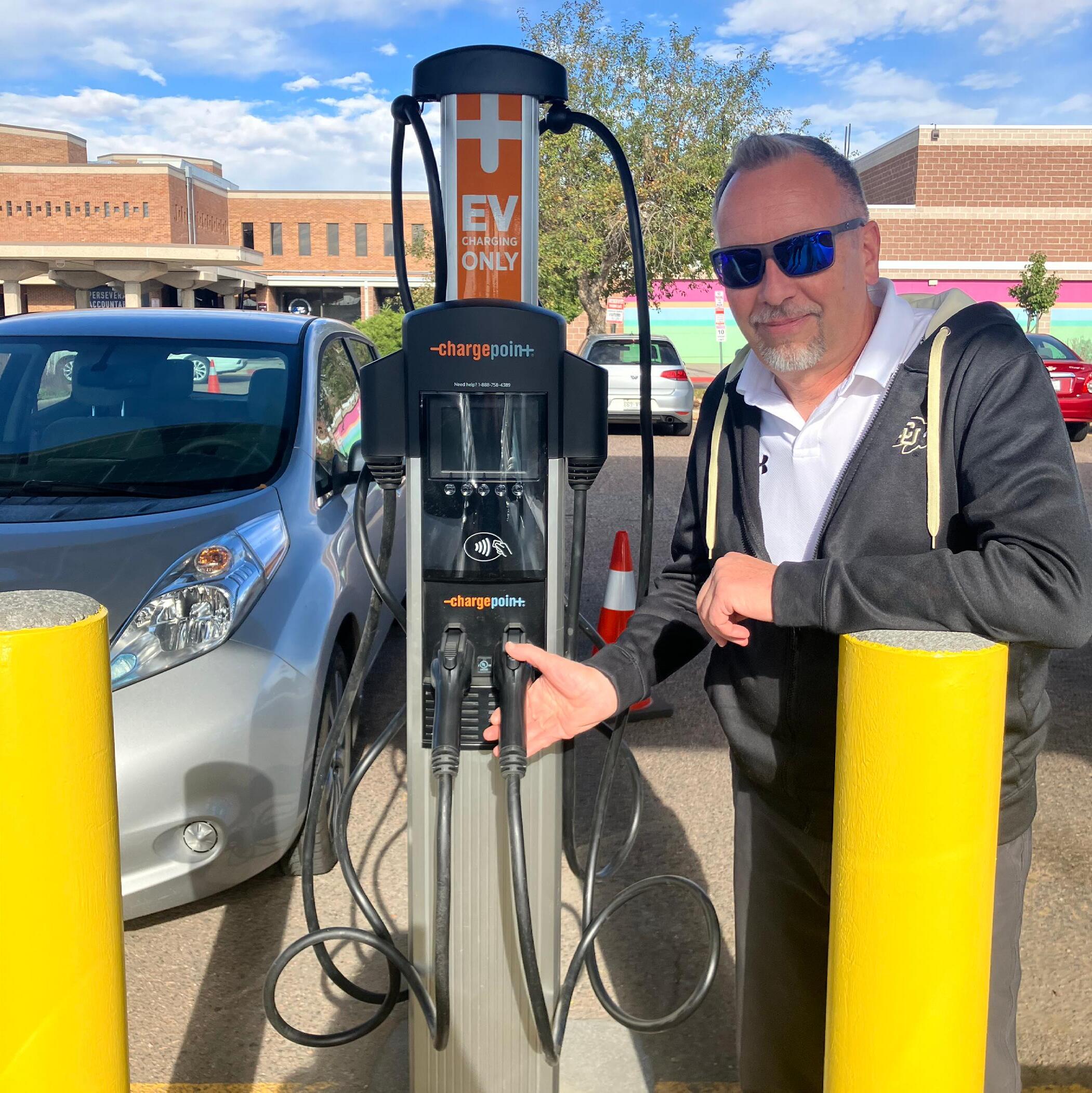
Resource Management
ENERGY MANAGEMENT GOAL: Reduce energy (MMBtu) consumption by 15% from 2021 baseline
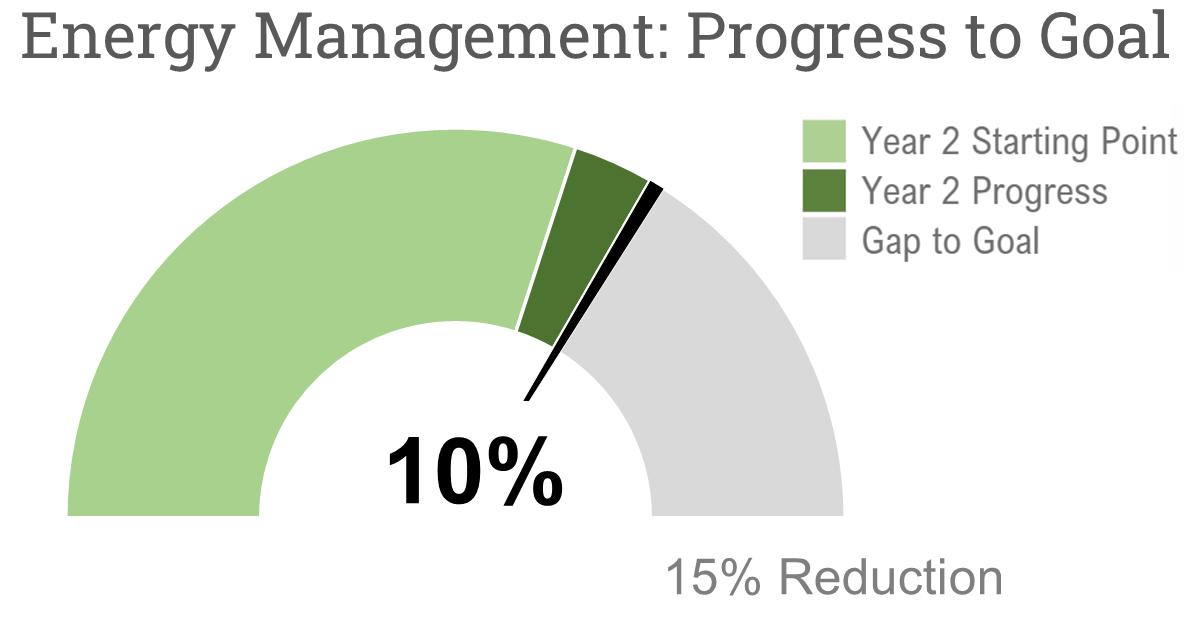
From July 2024 – June 2025, DPS used over 103,435,000 kWh of electricity and over 6,152,000 therms of natural gas. This combines to a total energy use of over 968,000 MMBtu, which is 10% lower than the 2021 baseline for the goal.
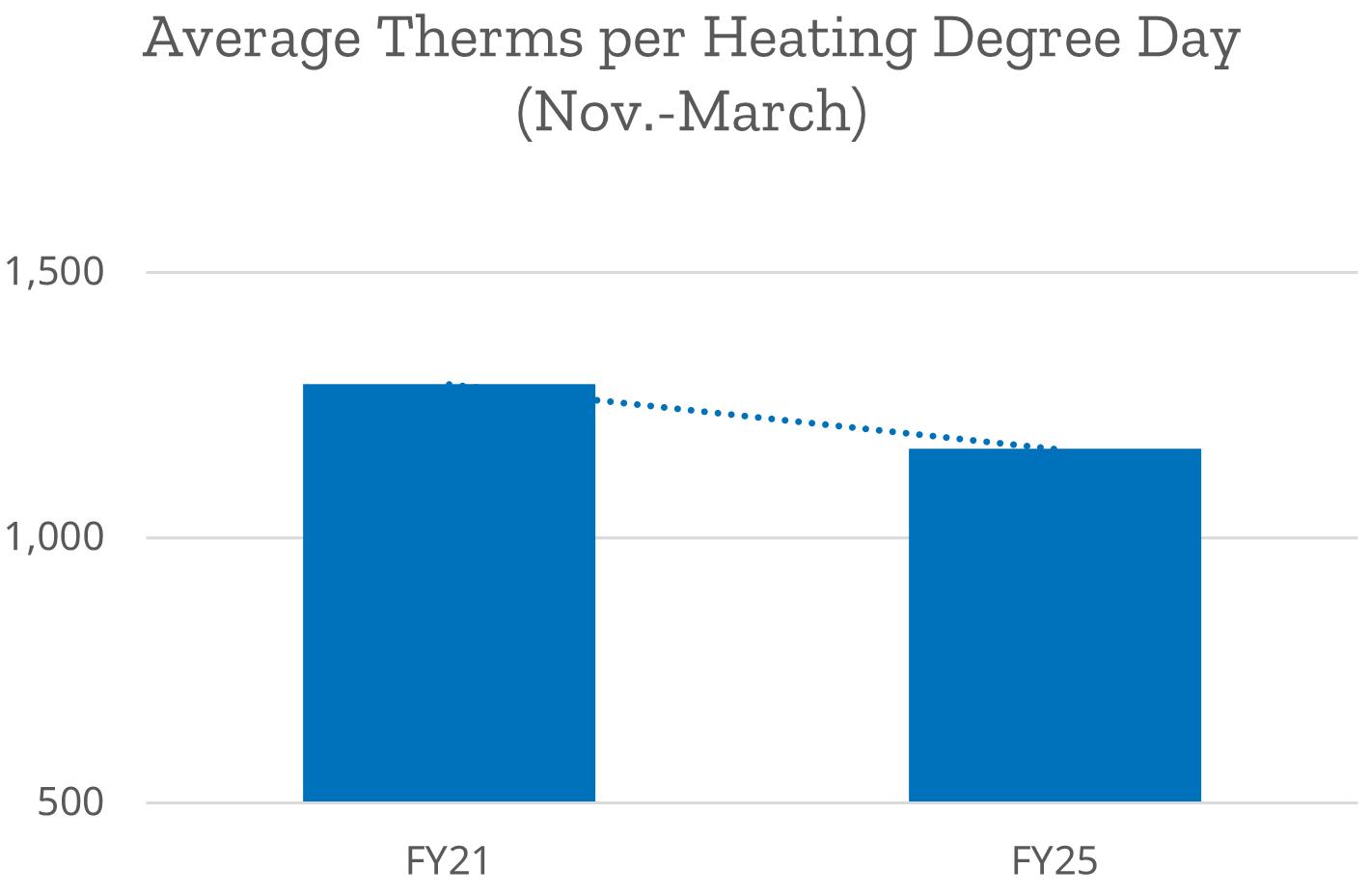
This graph shows that when normalizing for winter weather, DPS used fewer therms of natural gas per heating degree day in winter 2024-25 than it did in the winter of 2020-21, the goal’s baseline year, indicating more efficient energy management.
The median energy use intensity (EUI) of all DPS buildings this year was 58. The EUI target for both K-12 schools and offices in the Energize Denver benchmarking program is 48 by 2030. This means there is still work to do to increase the energy efficiency of DPS buildings, as only 27% of buildings are meeting the EUI target currently.
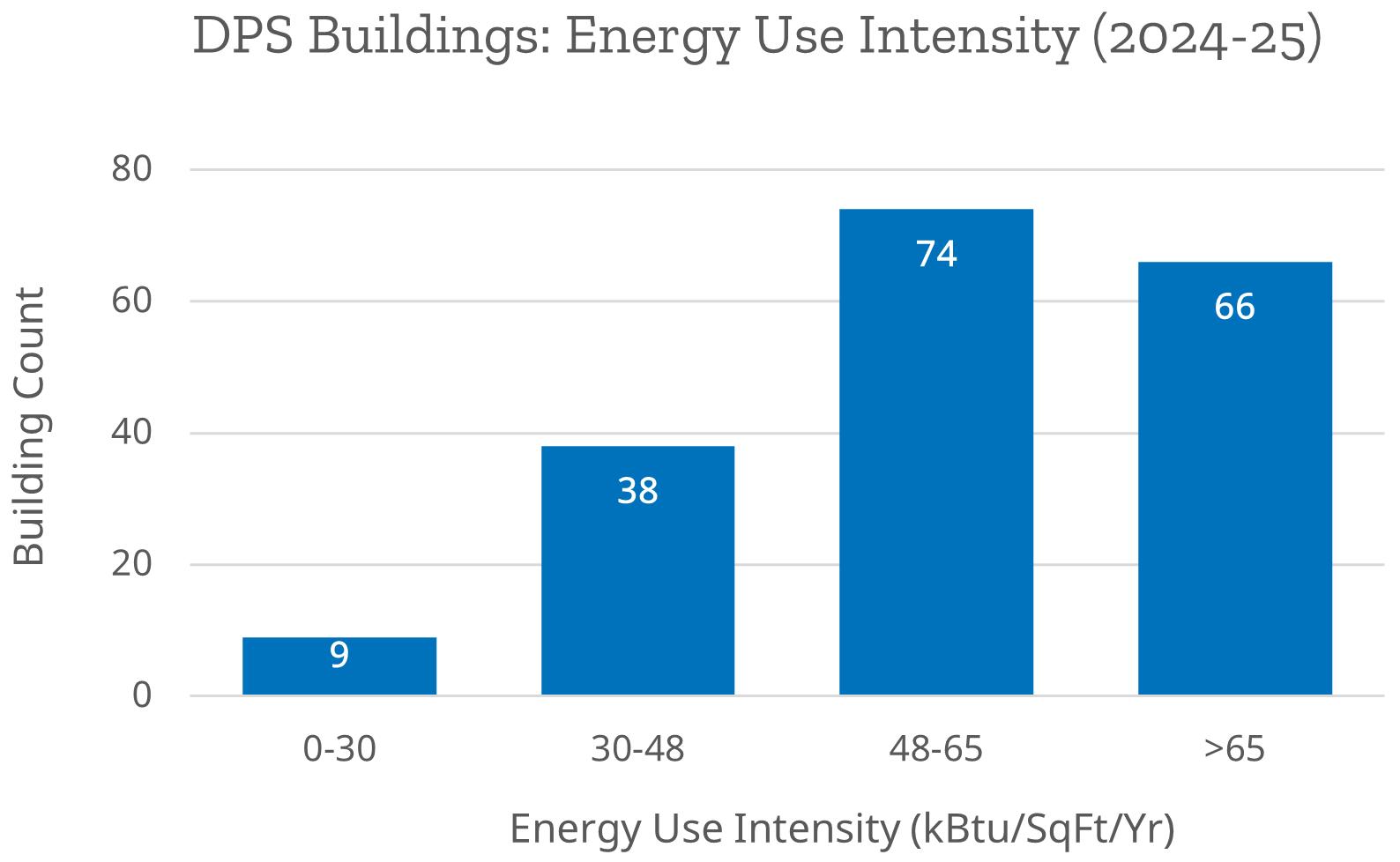
DPS has continued using fault detection and diagnostics, building automation system alarms, sequencing, scheduling, real-time electricity meters (eGauges), and more to actively manage the energy use in its buildings.
DPS received $2.5M from the 2024 Bond to implement fault detection and diagnostics (FDD) district-wide. This program will find and prioritize opportunities to save energy, ensure occupant comfort, and proactively identify needed HVAC repairs. The Sustainability Team is also working to fund technicians to implement the repairs and efficiency opportunities FDD identifies.
DPS continues to get verified energy and cost savings from past work through an Energy Performance Contract and a district-wide LED retrofit. The EPC provides guaranteed annual savings of $1.6M, and the district-wide LED retrofit provides $1.5M in verified savings annually.
The energy management goal is anticipated to be difficult to achieve because DPS will be adding air conditioning to schools that don’t have it, which will increase electricity use. An internal analysis revealed that electricity use increases around 25% on average when schools receive air conditioning. DPS intends to install “climate-conscious” air conditioning using heat pumps when economically feasible to provide cooling and energy-efficient electrified heating.
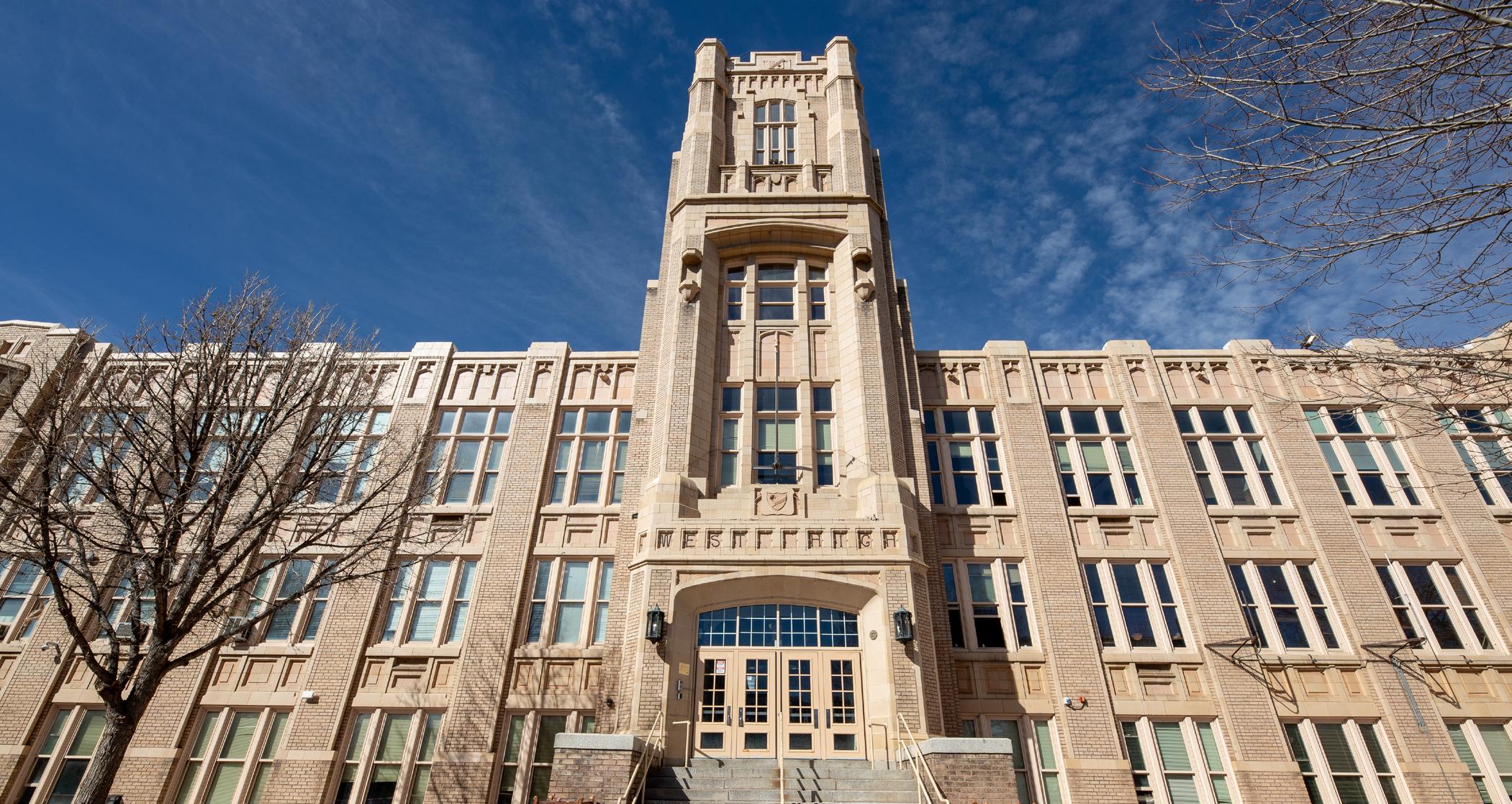
WATER
CONSERVATION
GOAL: Reduce water consumption by 15% from 2021 baseline
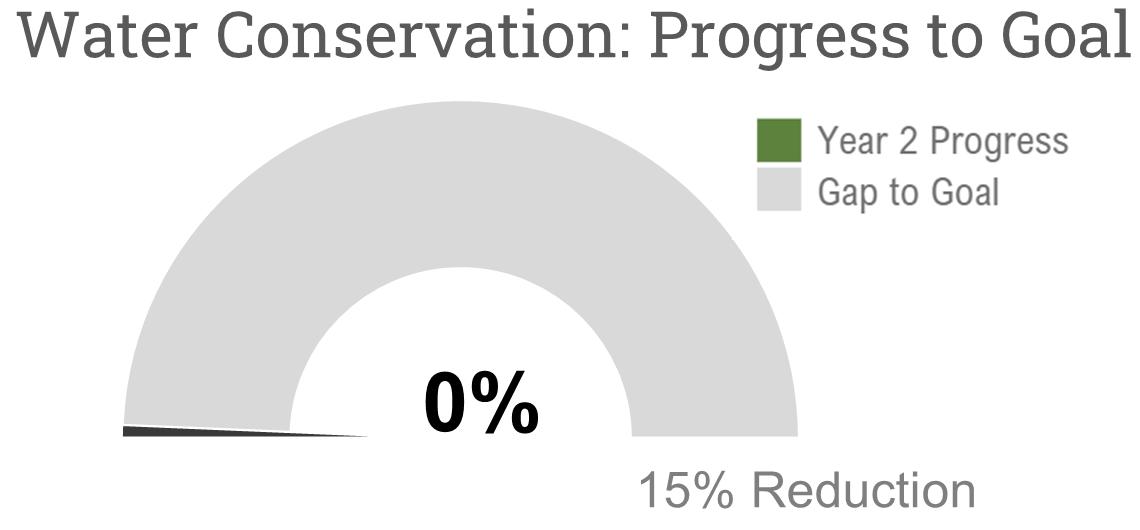
From July 2024 to June 2025, DPS used over 579 million gallons of water. For context, this is roughly equivalent to the annual water use of about 5,500 single family homes in Denver.
Both the summer of 2024 and 2025 were hotter and drier compared to the average over the last 35 years. When adjusting for the hot and dry weather during the summer watering months, the water use is lowered to an estimated 520 million gallons. Both the actual use and weather-adjusted use are higher than the water use baseline of 484 million gallons.
DPS used about 80% of its water outdoors to maintain healthy, safe and attractive landscapes for students and the community. DPS uses about 20% of its water indoors through fixtures like toilets, urinals, sinks and dishwashers.
The 2024 Bond provided $2.5M to expand smart irrigation controls districtwide. An invitation for bid was developed and posted for this project. This project is expected to contribute to outdoor water savings.
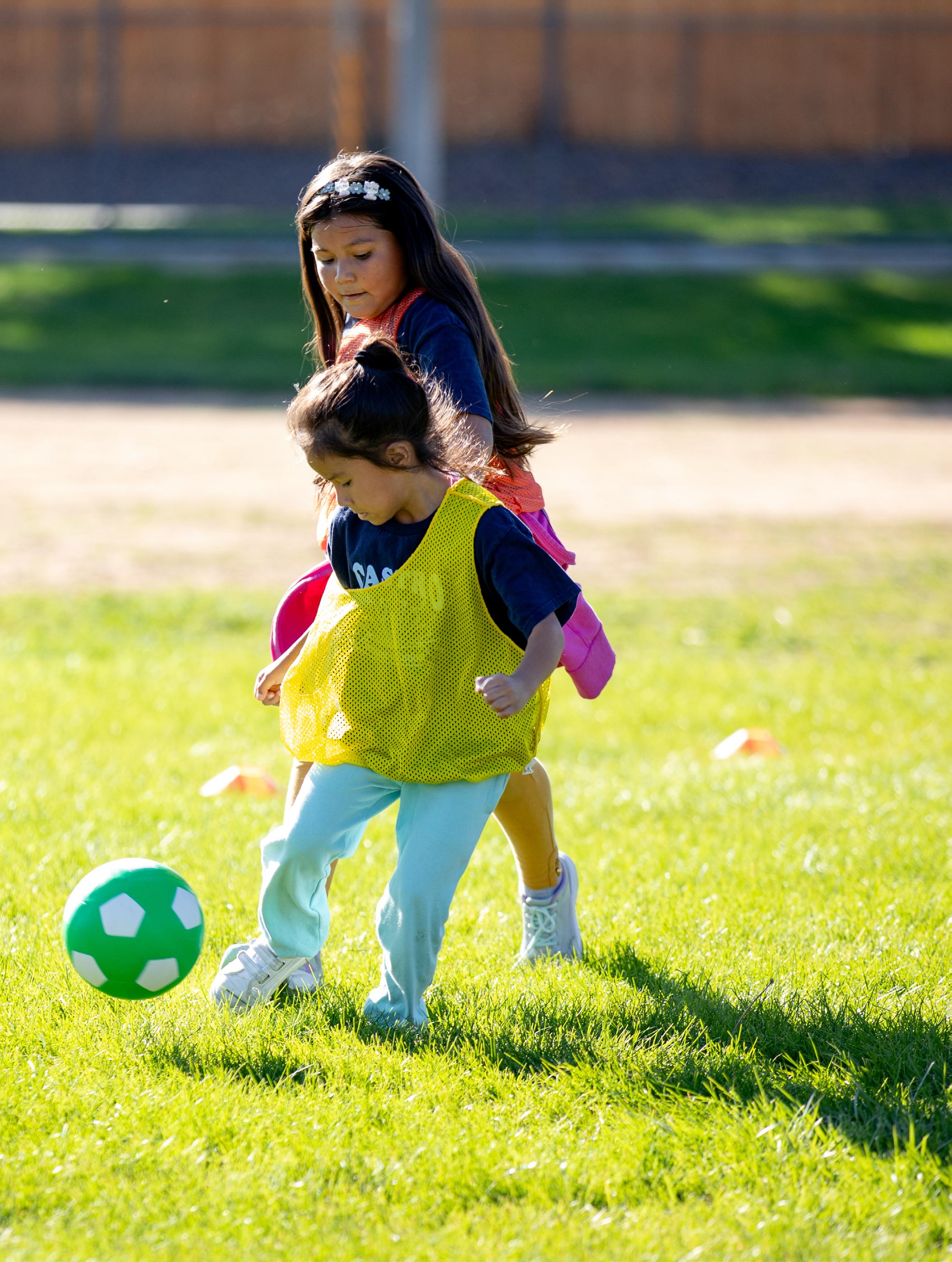
WASTE
DIVERSION GOAL: Ensure landfill diversion rate is at least 25%
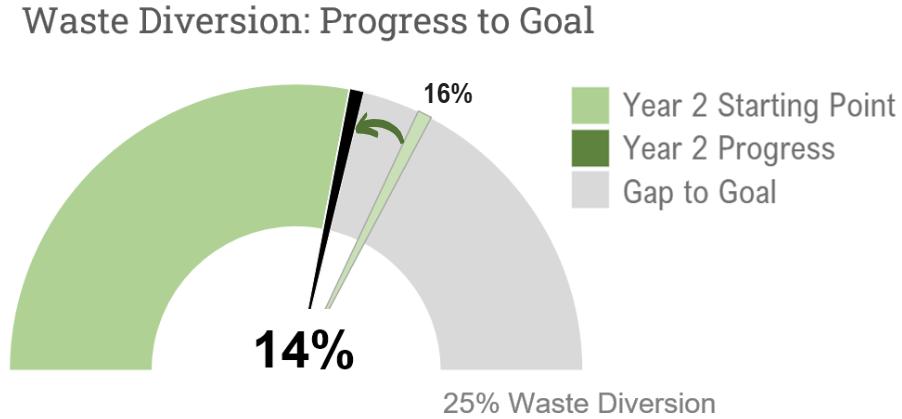
DPS’ waste diversion rate for this year is estimated to be 14%3. This number is the estimated weight of recycling and compost collected divided by the estimated weight of trash, recycling, and compost collected. It does not include additional waste streams such as electronic waste and scrap metal recycling.
Nearly 8,300 tons of trash, 1,300 tons of recycling, and 60 tons of compost was estimated to have been collected from DPS buildings.
While this diversion rate is lower than last year’s, it was calculated using a new methodology with more accurate data than the previous year’s methodology.
3 DPS relied on an analysis performed by its waste hauler for the diversion rate, as DPS does not receive weight-based data for its waste hauling services. The analysis estimated weights for recycling and compost diversion for the fiscal year based on seasonal audits of recycling and compost cart container fullness. The weights for both recycling dumpsters and trash containers were based on actual weights.
Staff implemented many activities this year including:
1) Compost service was added to six schools. The six schools are Isabella Bird Community School, Morey Middle, Valdez Elementary, DSST: Montview High, Park Hill, and Girls Athletic Leadership School (GALS). As part of this new service, staff and students were trained on what materials go in the compost bin and the school committed to monitoring the compost bins for contamination and proper sorting. The Sustainability Team also created a process for compost rollouts to ensure rollouts are successful and sustained. This work was in partnership with Denver’s Department of Transportation and Infrastructure. There is momentum to add compost service to more schools next year.
2) Waste audits were performed at eight schools and the Emily Griffith Campus to better understand the quantity and types of waste coming out of the cafeterias. If your school is interested in scheduling a waste audit to learn about your waste diversion practices and potential, contact the Sustainability Team. We’re here to help!
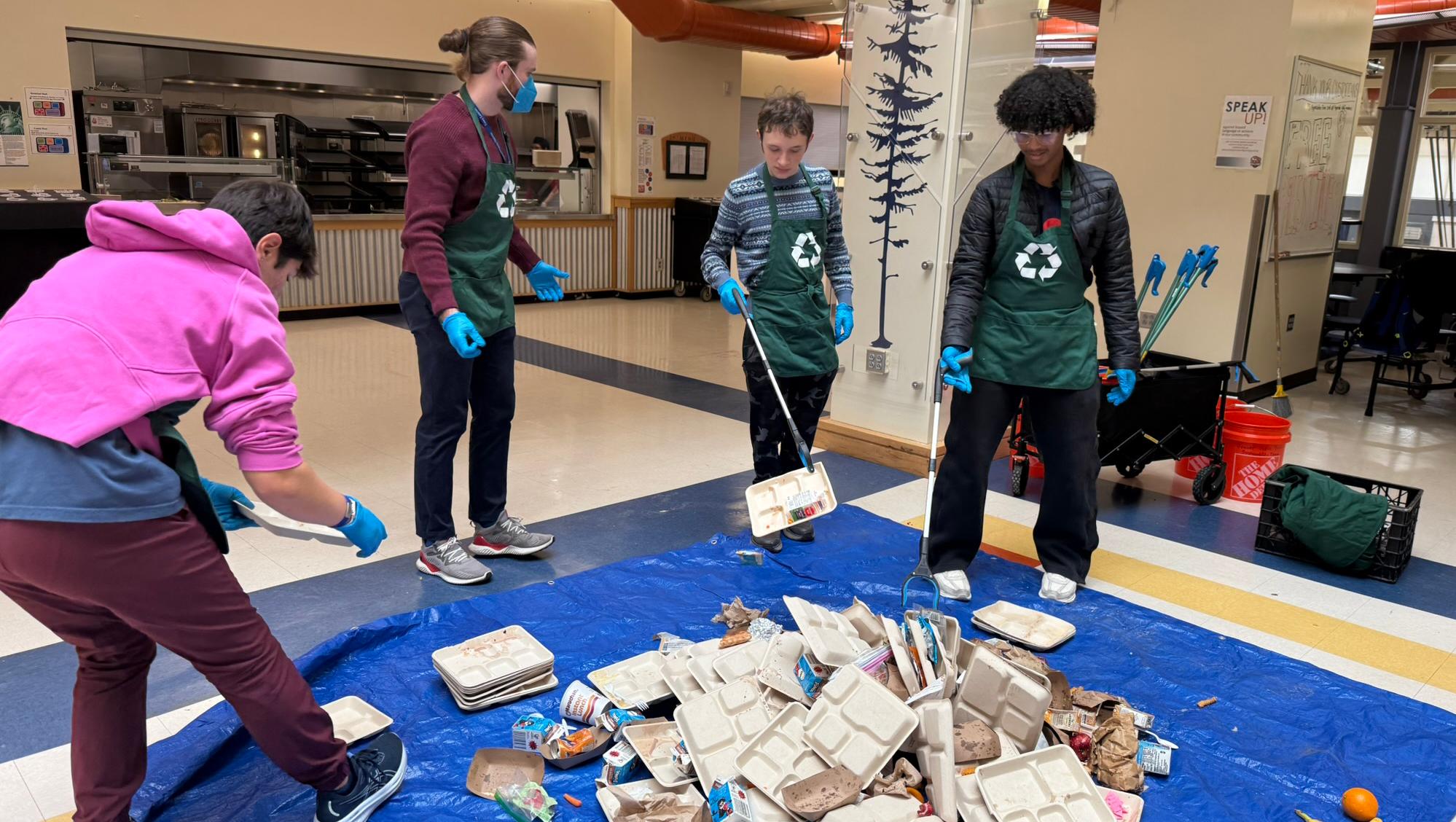
Waste audit at DSST: Cedar
3) Staff continued outreach, education, and signage updates to engage students and staff and change culture. For example, students participated in an art contest and winning artwork was featured on Denver’s waste collection trucks.
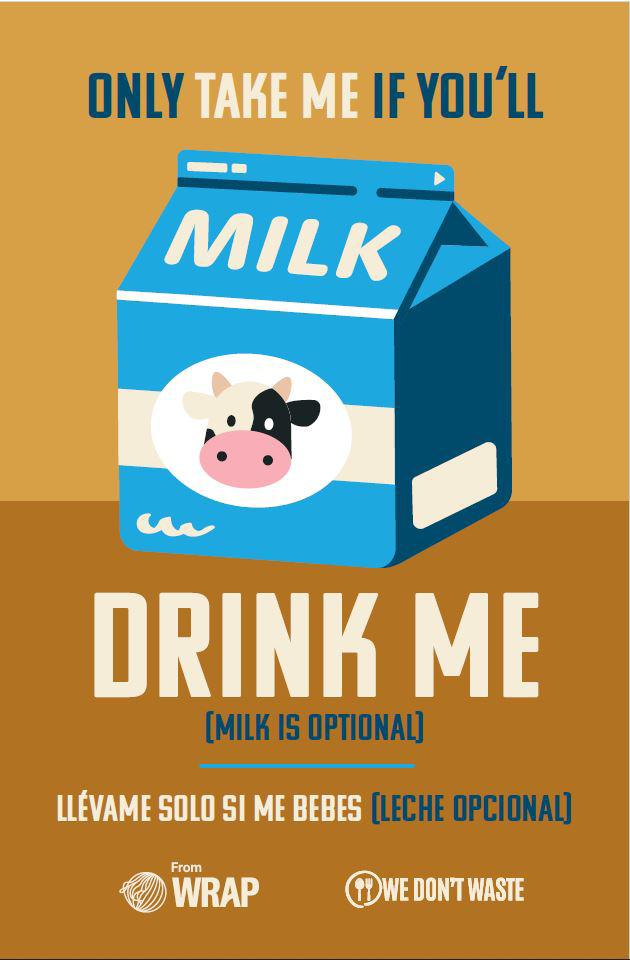
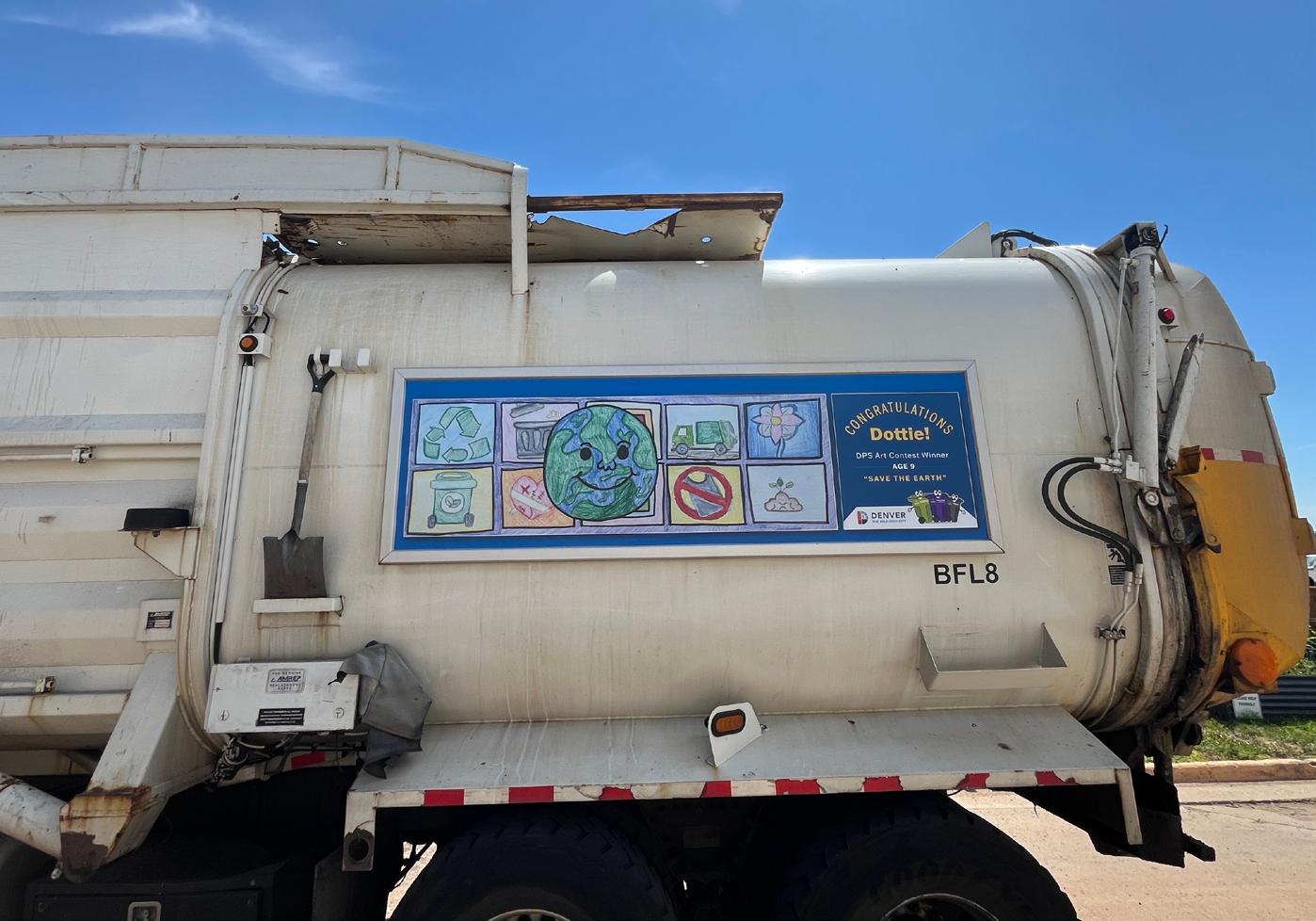
While this goal will be difficult to achieve because it relies heavily on behavior change among all students and staff, it is one that all students can have a direct impact on with their day-to-day actions.
ValdezElementarystudentsreducefoodwaste
ValdezElementarylaunchedamajorfoodwastediversionandsharetable initiativeinthespring.Studentscreatedposters,tookleadershiproles inmonitoringthecompostbinsoitdidn’tgetcontaminated,andspread awarenessonhowtousethesharetableamongallthestudents.
"Theyoungestintheschoolarelearningthattheiractions matter,andtheycanberesponsibleintakingcareoftheEarth."
- Laura C., partner with We Don’t Waste
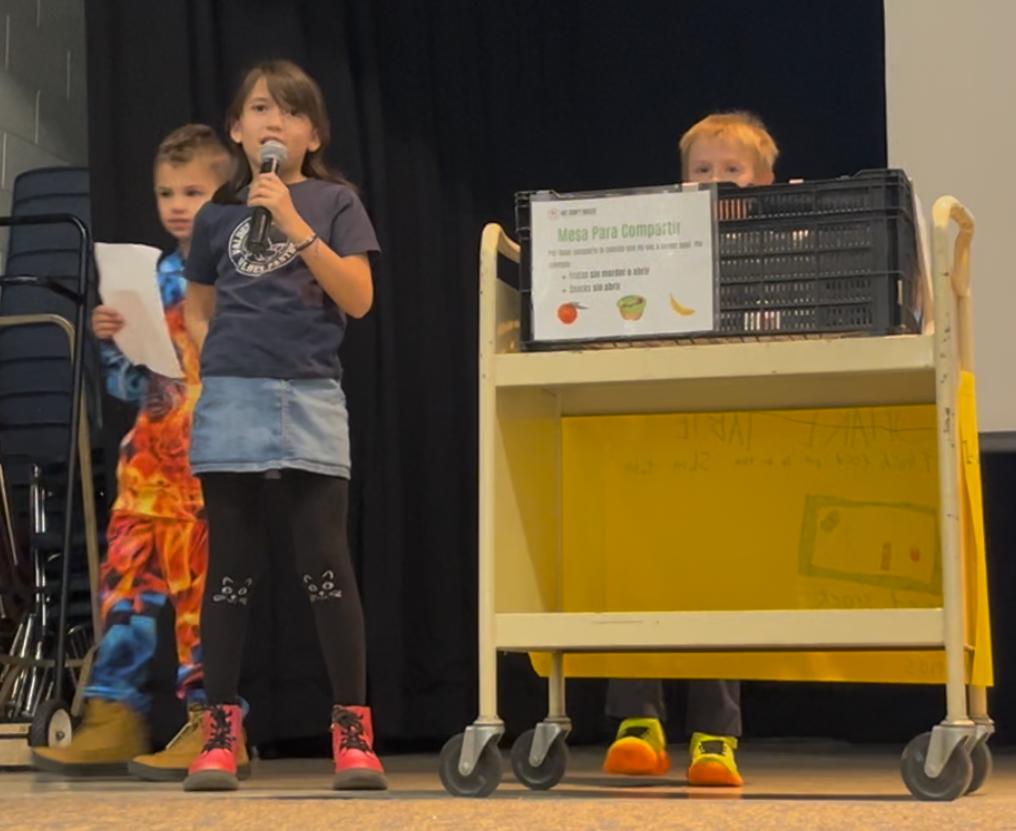
Second
graders at Valdez Elementary educate their classmates about the share table at their school assembly
Seeing the forest and the trees with printing data
This fiscal year DPS used 72 million sheets of paper for printing, which is equivalent to 8,600 trees.
This is an increase of almost 5 million sheets of paper from last fiscal year, which is equivalent to 500 more trees.
There is room for DPS to analyze printing use and to print double-sided.
SOURCING GOAL: Embed sustainable practices in all procurement policies including “end of life planning”

This goal faced challenges due to staff turnover and a lack of funding. Work will continue and momentum is building to define roles and develop strategies to reach this goal.
Wellness
GARDENS GOAL: 100 gardens are active and produce 100 pounds or more of harvest per year
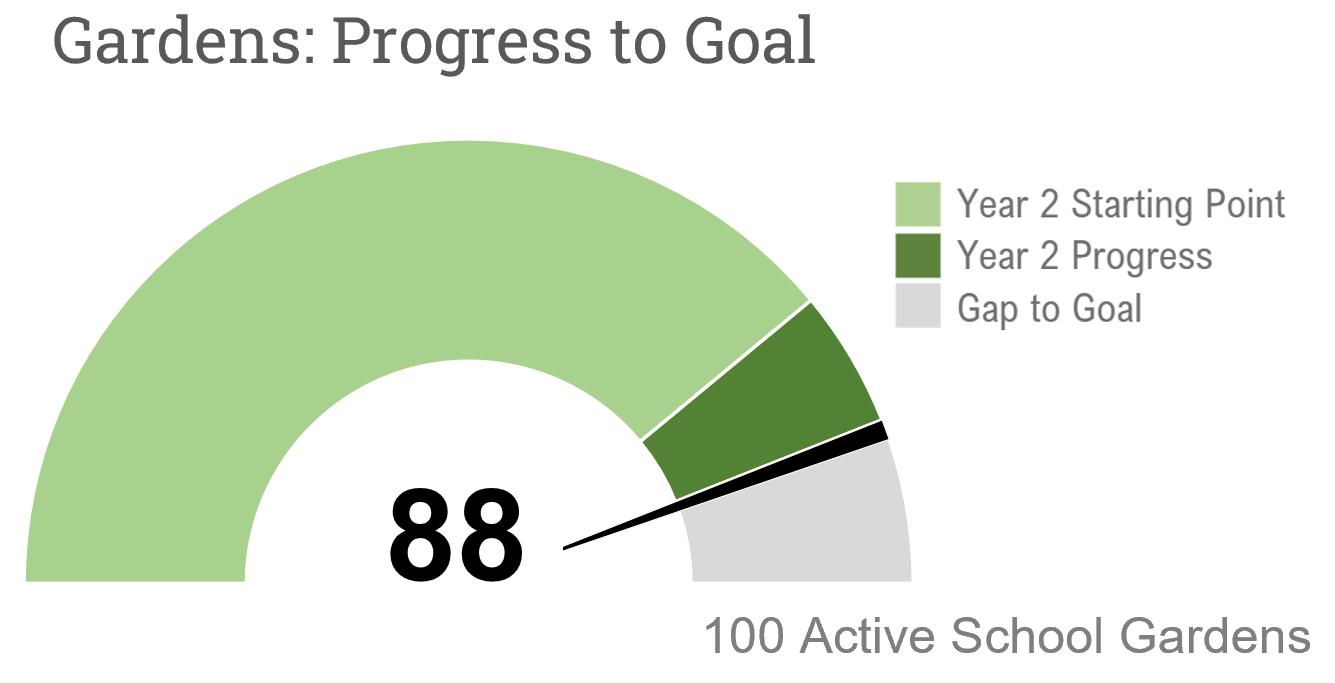
There were 88 gardens that were active and produced 100 pounds or more of harvest this year. This is up from 78 gardens last year. While some gardens did close, new gardens were built, inactive gardens were reactivated, and gardens that were previously unbeknownst to the Sustainability Team were discovered.
This year the Sustainability Team partnered with SustainED Farms to expand their garden programming to an additional eight sites. This programming engages students in sustainability education through gardening, and provides fresh food for the school and community.
“Students are always so proud to show off the veggies, trees, and flowers they’ve been caring for.”
-SustainED Farms
We are grateful for continued garden partnerships with community organizations including: Denver Urban Gardens, SustainEd Farms, Sprout City Farms, Jovial Concepts, and Colorado Master Gardeners.
ThroughpartnershipswithSustainEDFarms,DenverUrbanGardens,and SproutCityFarms,over19,300poundsofproducefromthesummerandfall 2024harvestwasdonatedtoschoolcafeteriasorfooddistributioncenters. That’soverninetonsofproduce!Thisimprovesfoodjusticeandfood securityinourcommunities.
AsDPSnavigatesschoolclosures,theSustainabilityTeamwillworktoensure thegardensatclosedschoolsremainavailableforcommunityuse.
“Perhapsthegreatestbenefitofourgardensisthatstudentscanseethe impacttheycanhaveontheworldaroundtheminjustafewweeks.”
-ChrisW.,SustainabilityTeam
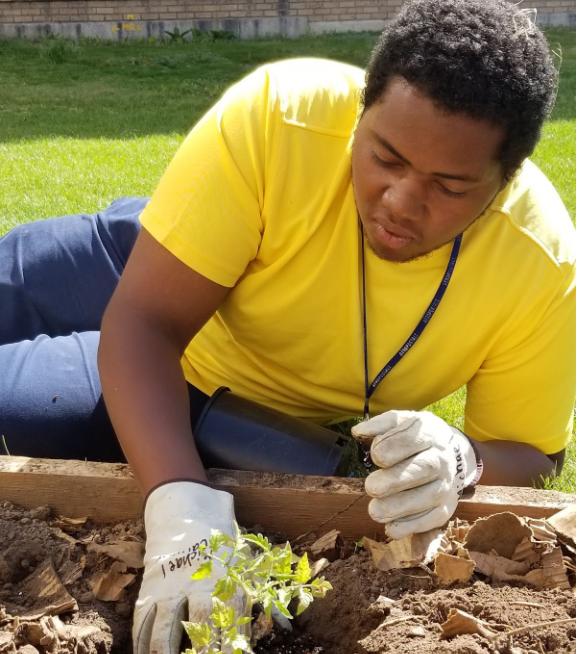
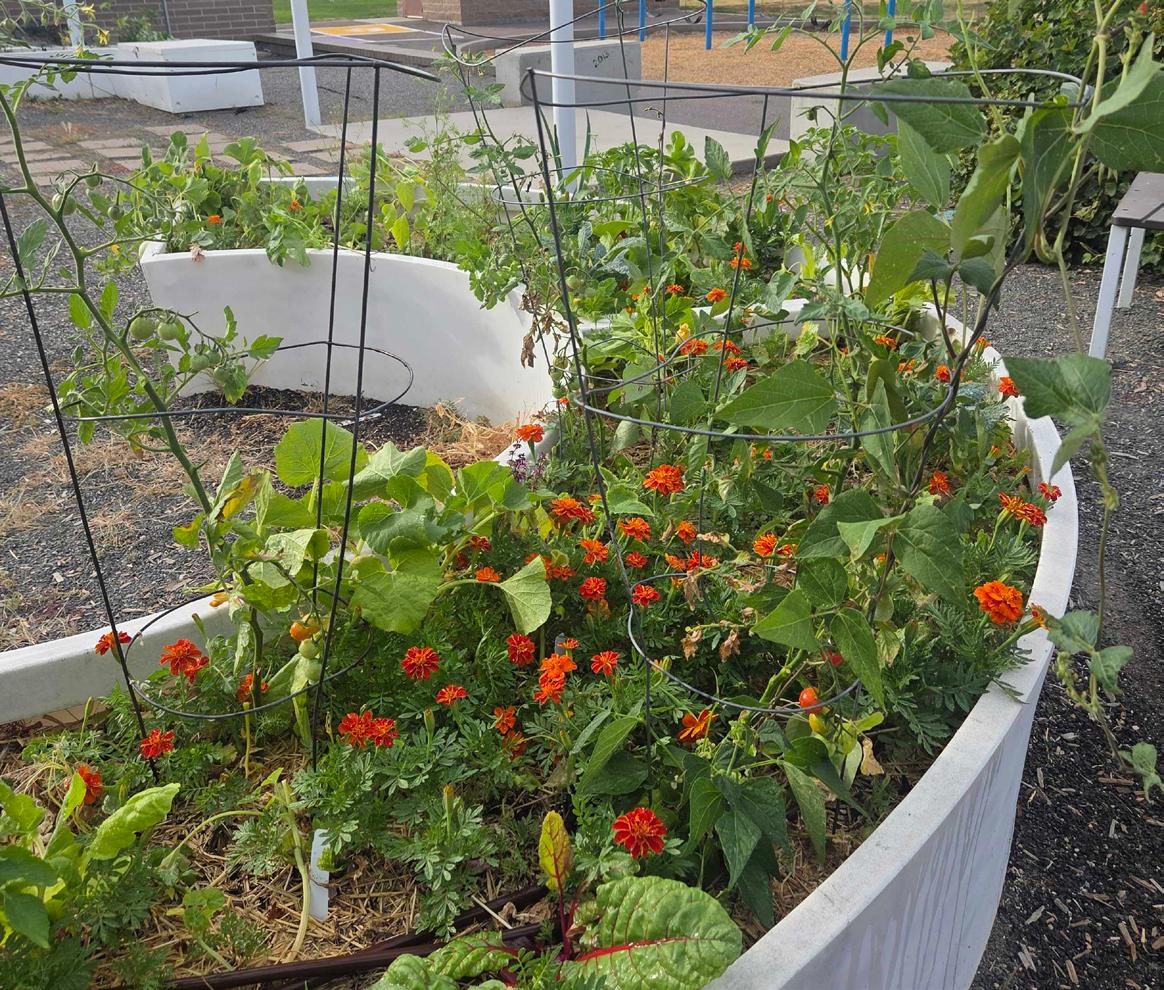
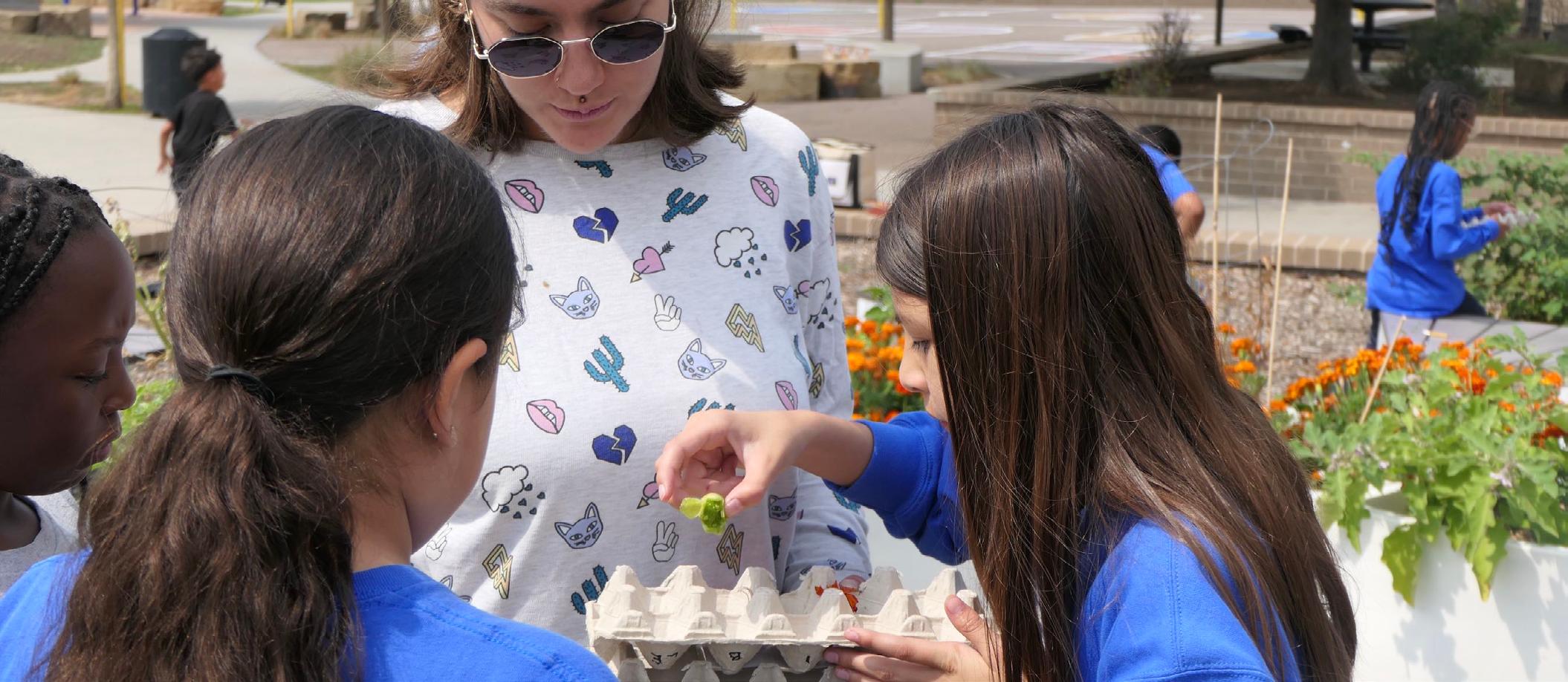
GREENHOUSES GOAL: 50% reduction in tomatoes purchased commercially to be produced by the Glenbrook Greenhouse
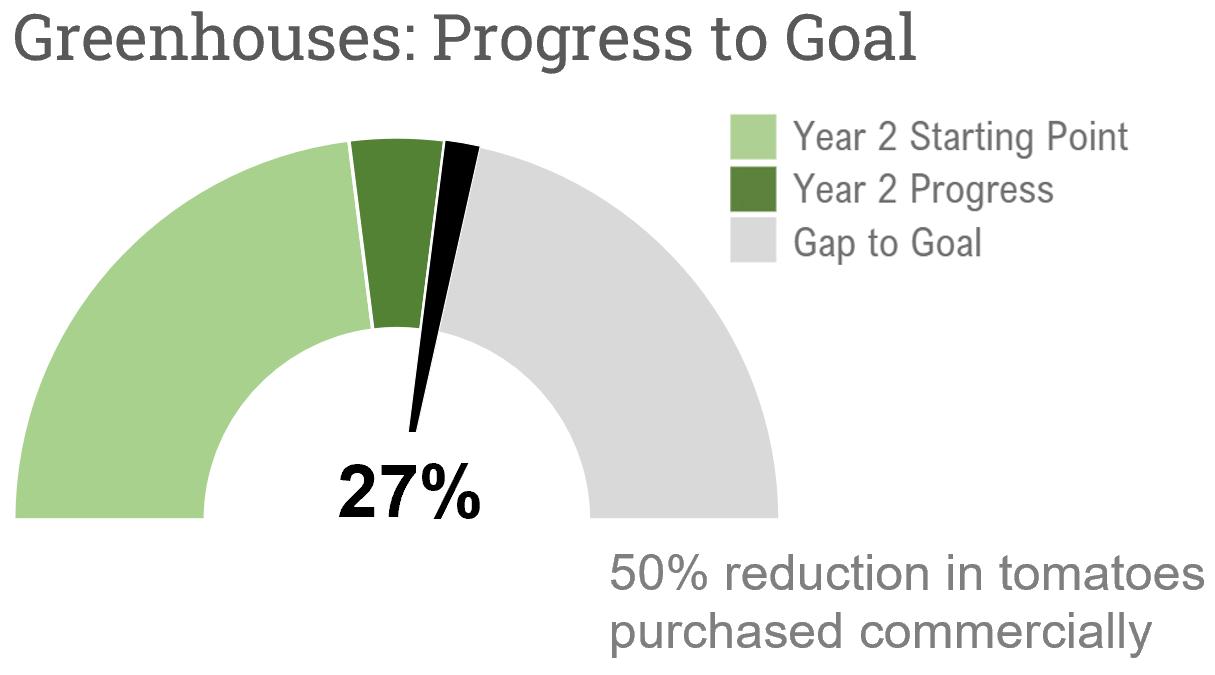
Staff at the Glenbrook Greenhouse harvested over 22,100 pounds of tomatoes over this last fiscal year. The tomatoes were used in DPS’ scratch cooking, and could be found in fruit and veggie bars, salsa, and as toppings on tacos, burgers, enchiladas and more.
This year staff:
• refined seed selection, plant care, and harvesting practices,
• planted more of heavier slicing tomatoes and Roma tomatoes, and less cherry tomatoes and snacking peppers,
• and brought in the CSU Extension Office to evaluate the greenhouse’s operations and provide recommendations for improvements.
With each year of operation, staff is learning how to better operate and manage the greenhouse. Staff will continue to refine plant care and provide the best products for school meals.
A challenge faced was ramping up production after a summer of purposely low yield due to students being out of school.
Glenbrook Greenhouse is actively requesting volunteers to help with harvesting.
“This greenhouse helps us nourish students with fresh, healthy, local foods”
-Theresa H., Executive Director of Enterprise Management
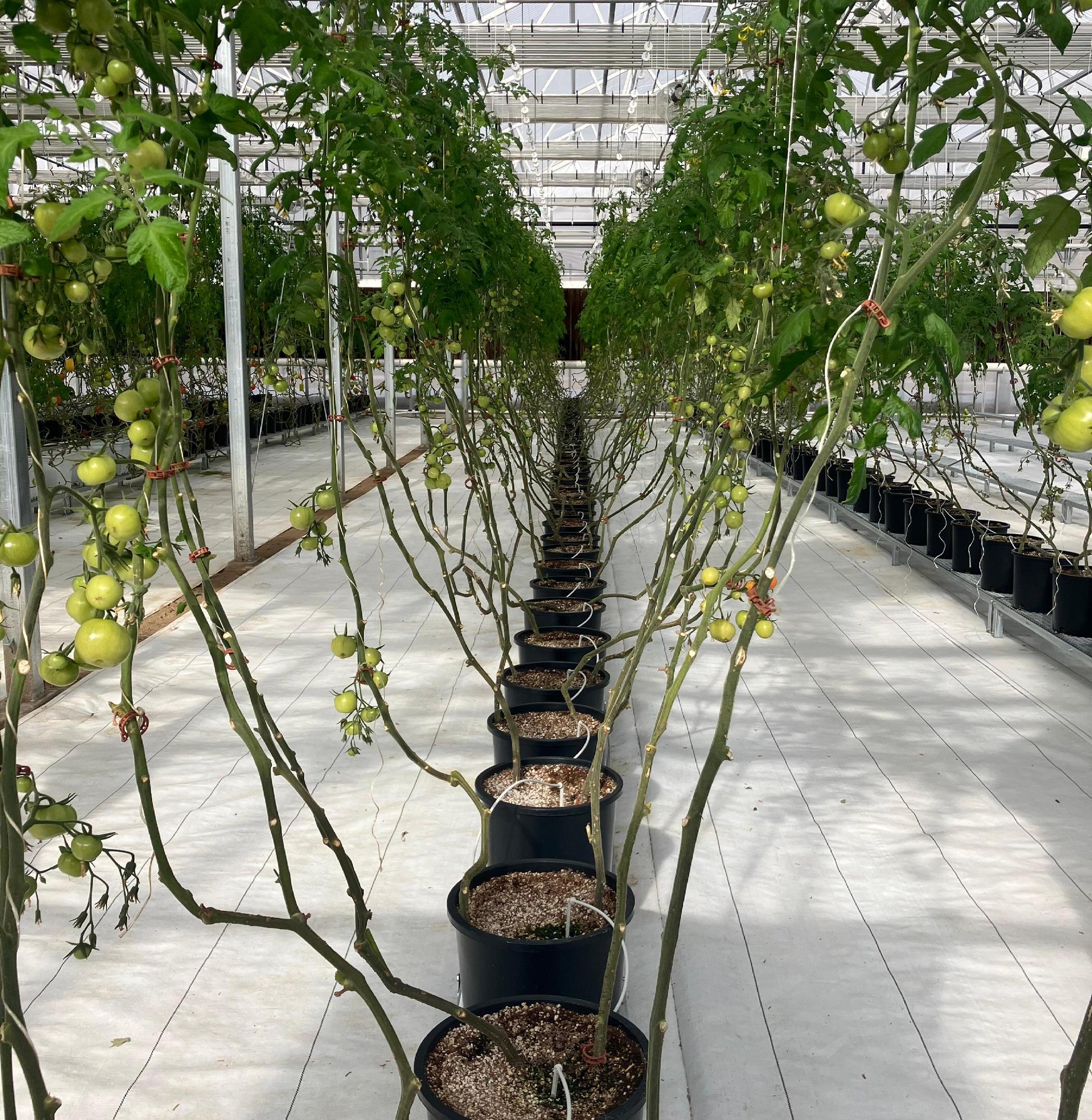
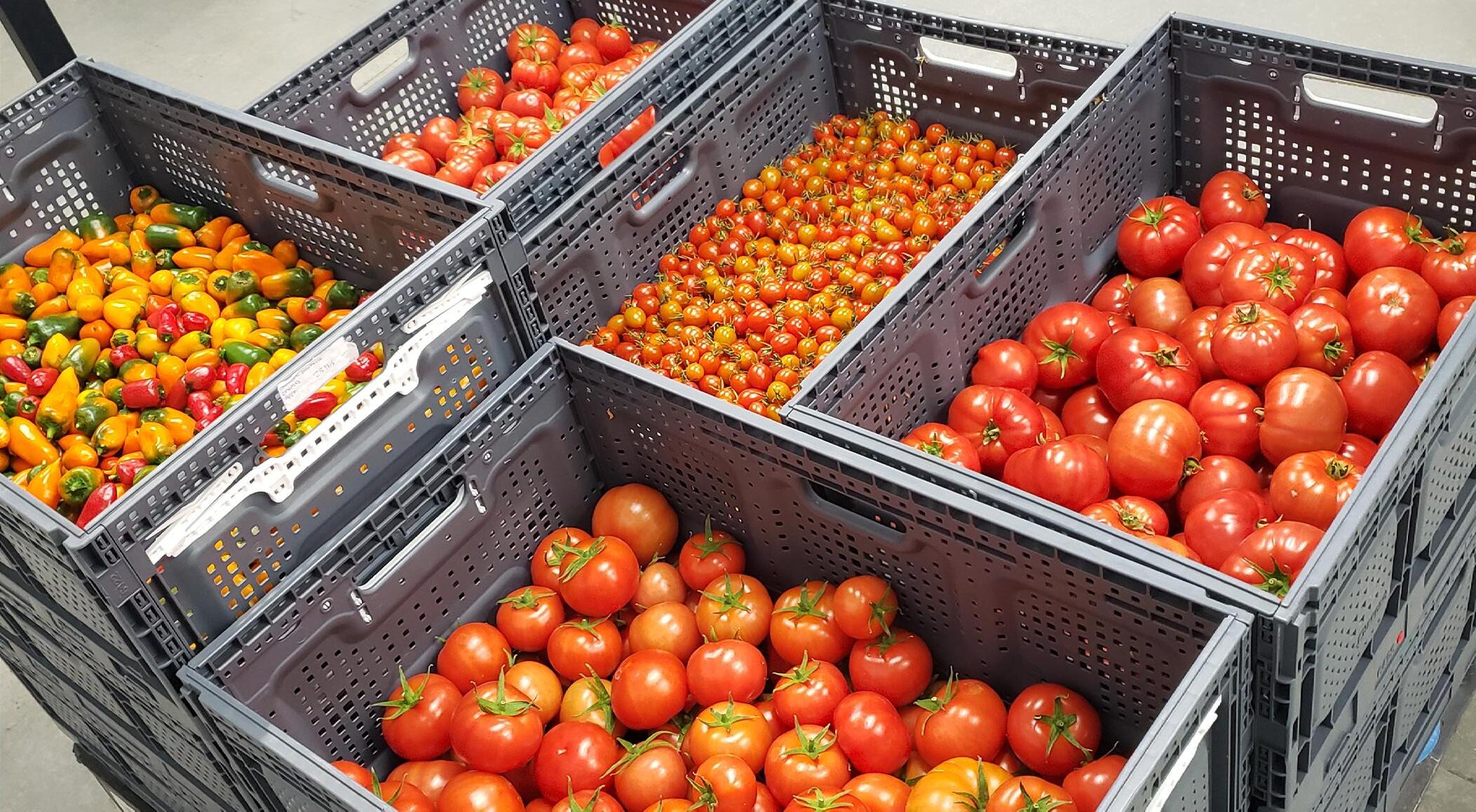
NUTRITION SERVICES GOAL: Develop a comprehensive nutrition education plan to be used at 100% of schools for all grade levels

An advisory team was formed with staff, students, and external partners. Current state was defined, and a plan for the next two years was developed.
This goal faced challenges of determining a staff lead and a lack of funding.
Work will continue to determine a staff lead and committee structure, as well as building on comprehensive health work already being done across the district, especially by Food & Nutrition Services and Nursing Services.
Engagement + Environmental Justice
COMMUNITY ENGAGEMENT & EVENTS GOAL: 1 districtwide sustainability event per quarter
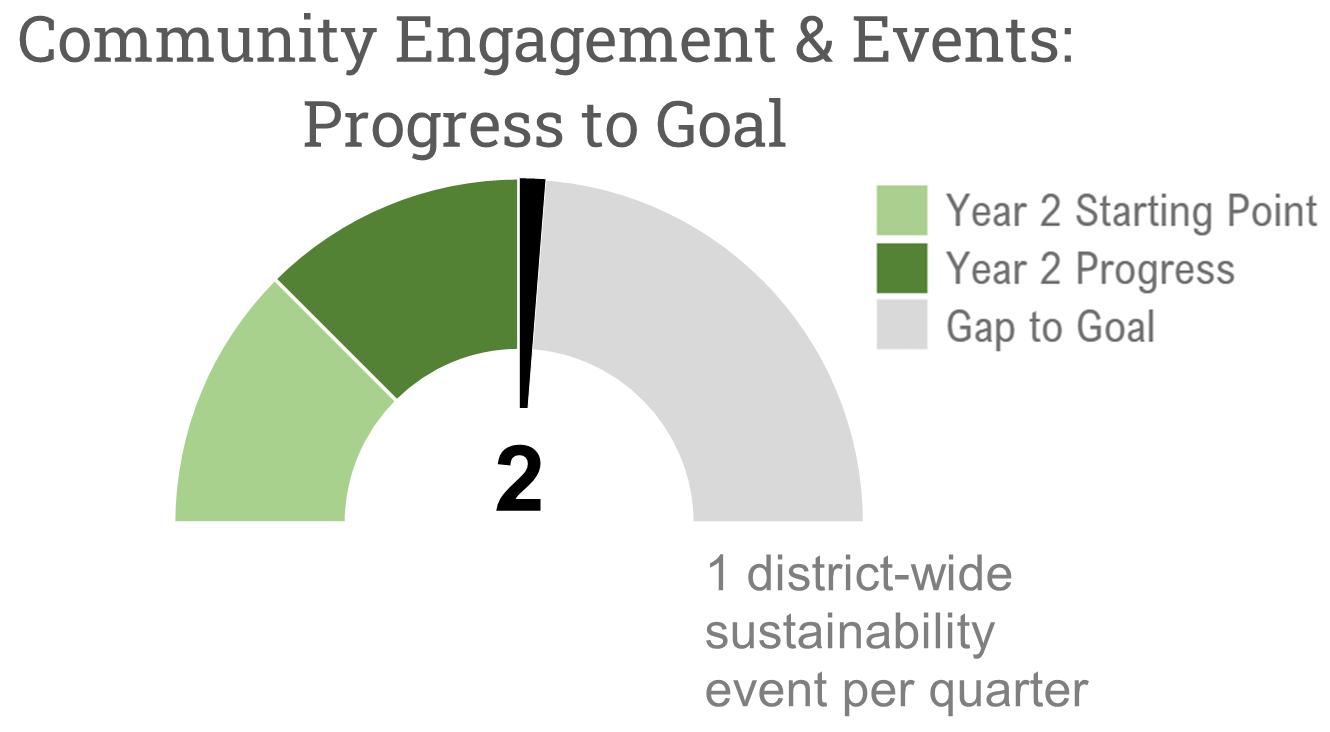
There were three districtwide sustainability events this year, but since two took place in the same quarter, only two events count toward this goal.
• The Youth Unity Rising Summit was held in October at CSU Spur. DPS Students for Climate Action helped organize this event and participated in the youth leadership panel. There were about 100 attendees, and the event was focused on youth leadership, collaboration, and empowerment.
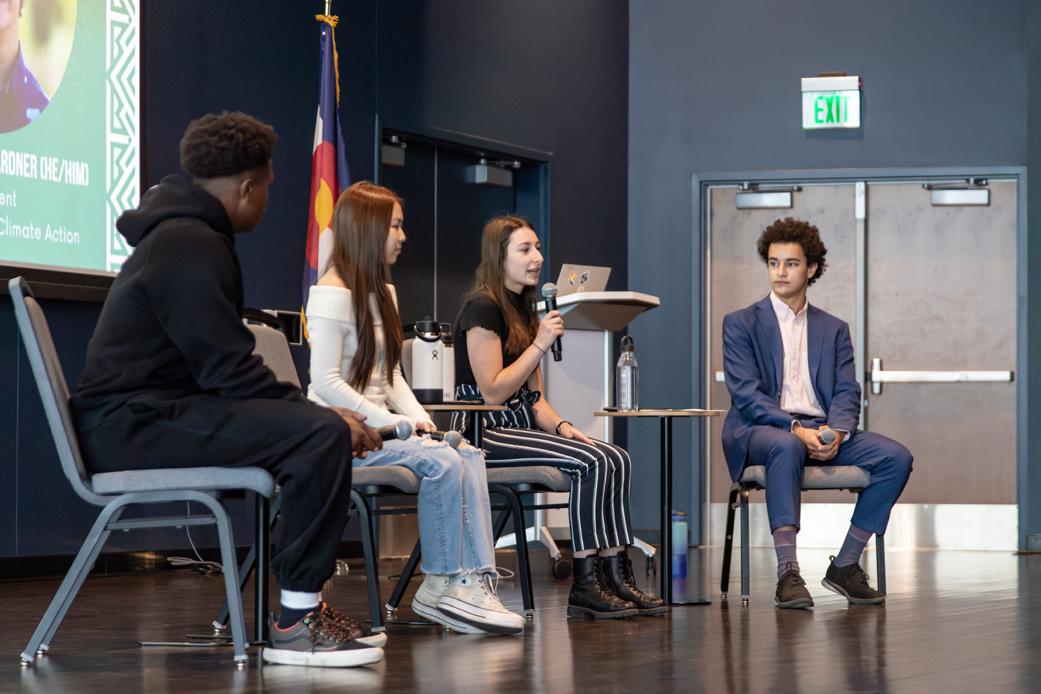
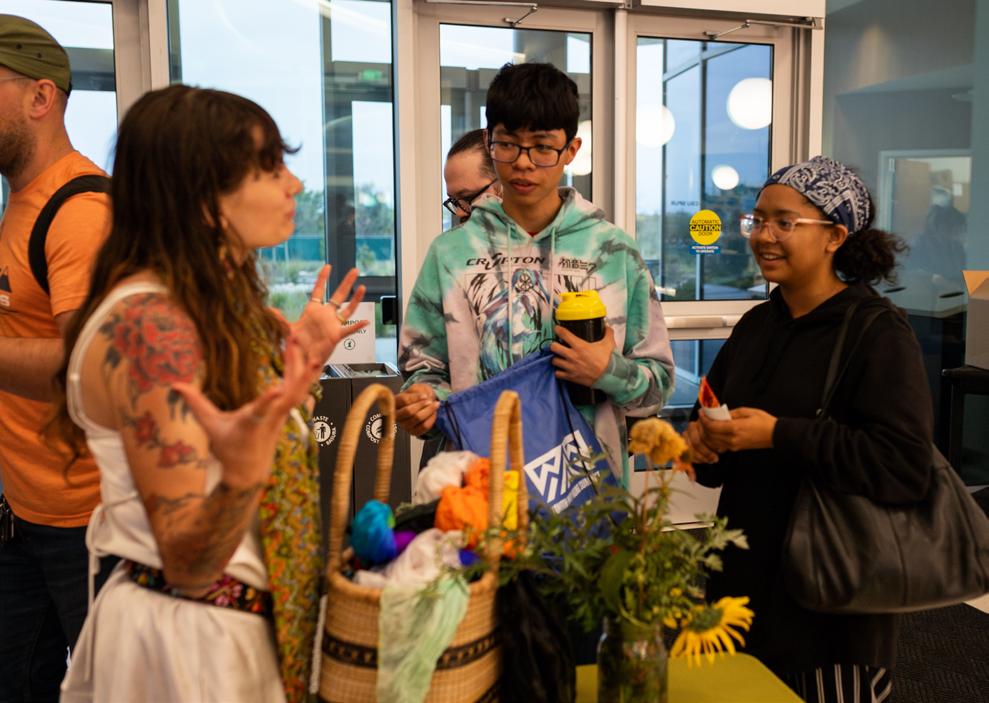
Photo Credit: Lucian Manthey Photography
• The DPS Climate Summit was held in April at CSU Spur. Around 100 students, staff, and community members came together for a day of learning, connection, and inspiration around climate action. Community experts led workshops, and Governor Polis even stopped by to encourage DPS students along their climate action journey. This summit was held during the school day and considered a field trip experience. Staff learned that setting the summit date as early as possible is important for teachers to have time to plan and reserve transportation. This was the third annual summit and DPS Students for Climate Action played a major role in planning this event.
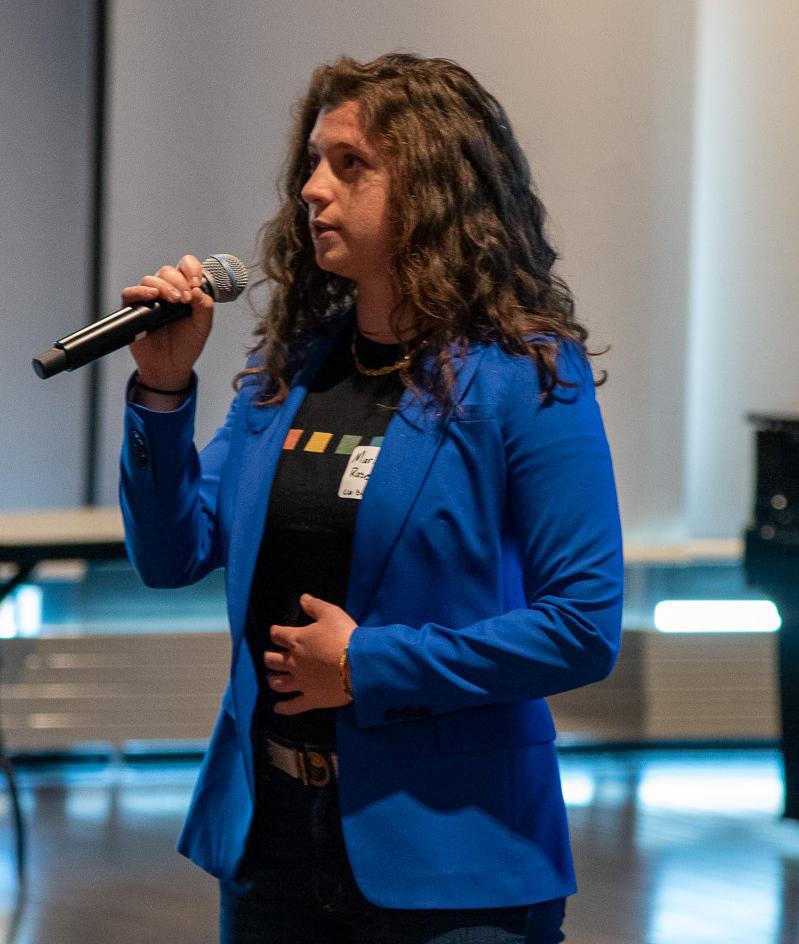

Mariah, a former leader of DPS Students for Climate Action and graduate of East High, gave an inspiring keynote at the DPS Climate Summit.
• The DPS STEAM Expo was held in May at CSU Spur. The expo included a sustainability showcase that featured eight Climate Champions projects and six community partners. About 2,500 people attended the expo, and it was a great way for the Sustainability Team to make many new connections with students, families, and organizations.
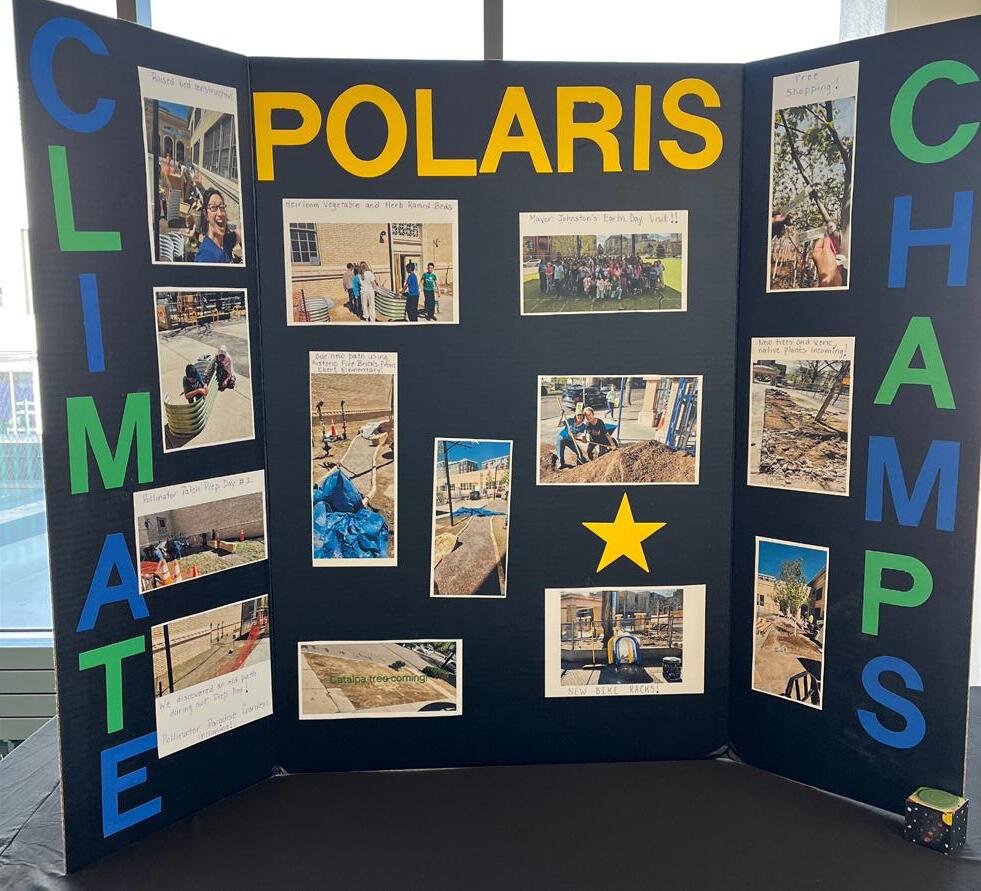

Next year the Sustainability Team intends to explore options to host a districtwide environmental film festival and a districtwide garden harvest event, as well as increase its collaboration with the Youth Unity Rising Summit organizers.
ECO-SCHOOLS CERTIFICATION GOAL: 25 schools have and maintain certification
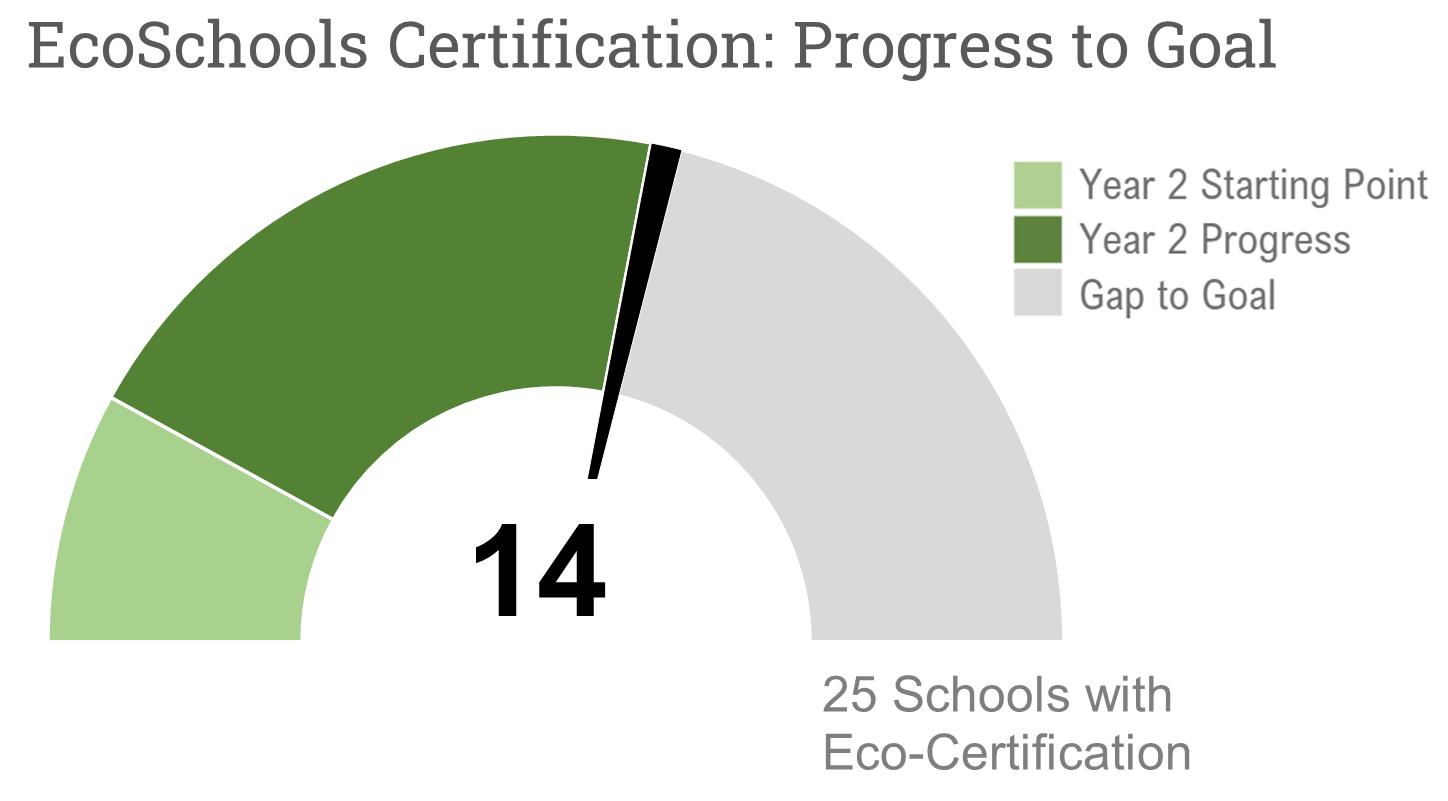
Fourteen schools received EcoSchools Certification through the National Wildlife Federation. Nine schools received the Green Flag certification (the highest level of certification), three schools received Gold level certification, and two schools received Silver level certification.
Both East High and Teller Elementary maintained their certification from the previous year.
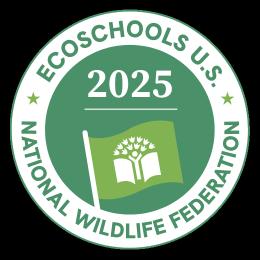

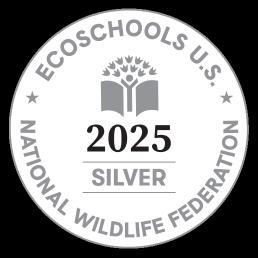
Asbury Elementary Park Hill Elementary
Centennial Elementary Polaris Elementary
DSST Cedar High
East High
Isabella Bird
Community School
Munroe Elementary
Teller Elementary
McAuliffe International Morey Middle
Thomas Jefferson High
Valdez Elementary
EcoSchools certification recognizes a school’s commitment to environmental action, and students gain leadership and community-building skills.
Staff has learned that schools receiving Climate Champions grants have a strong pathway to getting an EcoSchools certification, so staff has increased their outreach with these schools to encourage their certification and will continue to do so next year.
Staff also learned that many schools are already doing qualifying environmental action work and just need support with the certification process.
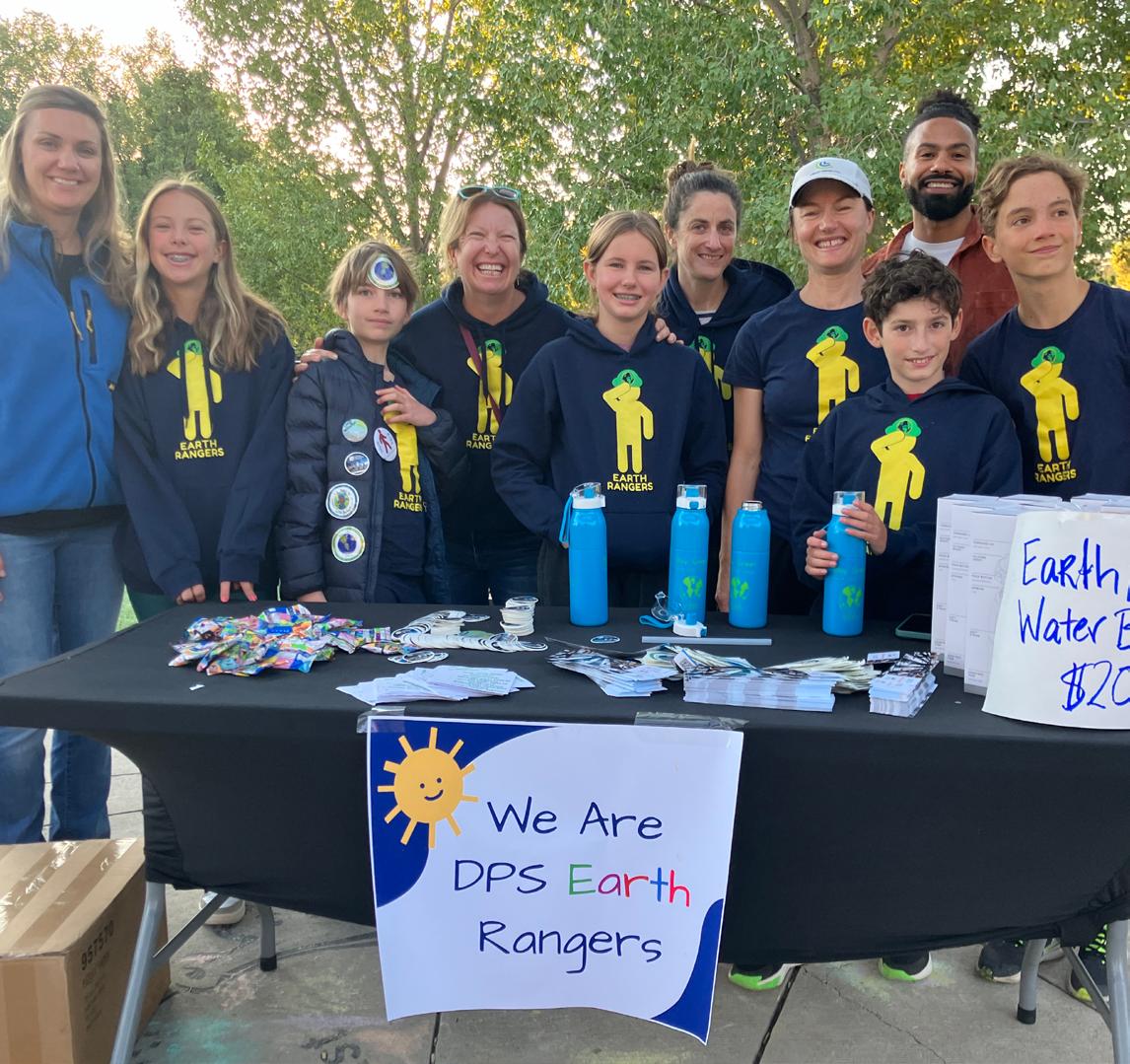
DPS Earth Rangers celebrate Teller Elementary’s Green Flag EcoSchools certification with music, stickers, and snacks.
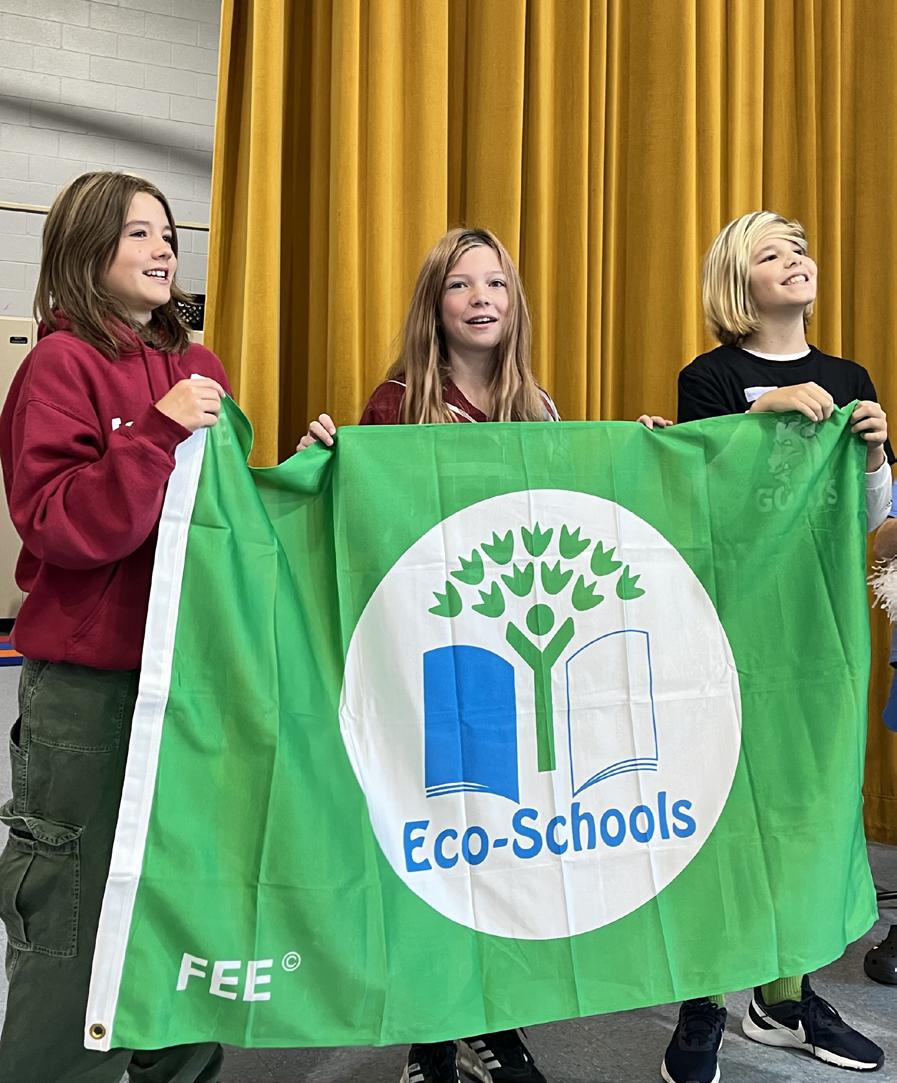
Students celebrating their EcoSchools certification with their new green flag.
ENVIRONMENTAL
JUSTICE GOAL: 100% of schools have an actionbased pledge toward continuously addressing environmental justice
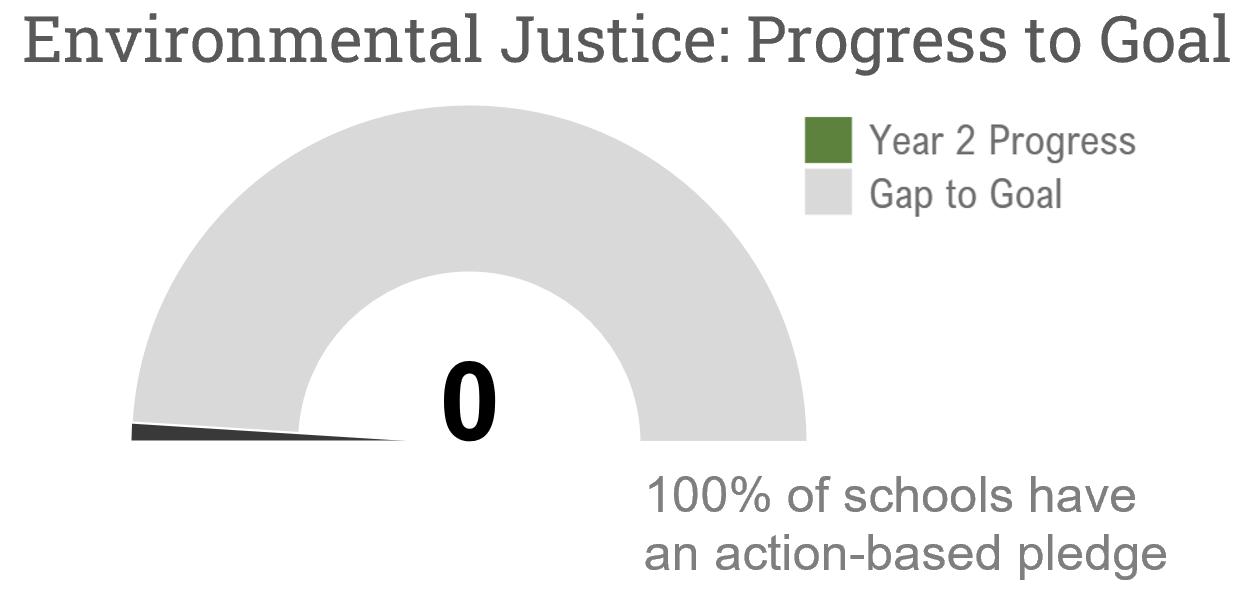
This goal did not have a staff lead this year, so there was no progress toward the goal. However, the Sustainability Team hired a new position that will be leading this goal going forward.
The intent for next year is to:
• create an environmental justice advisory committee with students, district staff, community advocates, and environmental justice professionals,
• finalize the district’s definition of environmental justice, and
• define criteria for what a successful pledge looks like.
Exposure to the impacts of climate change and other environmental burdens are inherently unfair, and our youth, Indigenous communities, and communities of color are being disproportionately impacted. That’s why it is imperative we engage our youth and our historically marginalized communities in the decision making for the environmental justice pledges.
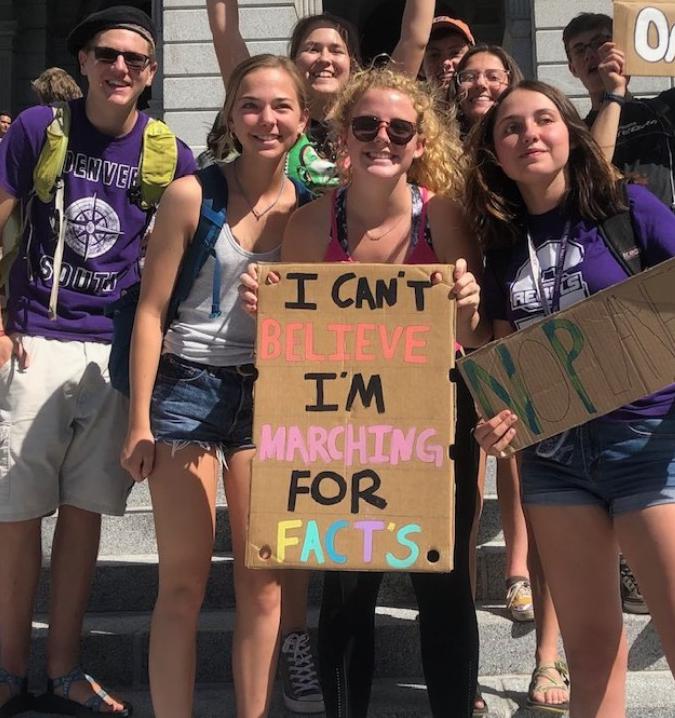
DPS student activists at the Colorado capitol
Career + Curriculum
SUSTAINABILITY CURRICULUM GOAL:
STUDENTS: 100% of schools have at least 1 annual sustainability projectbased learning opportunity
STAFF: 50% of science teachers participate in an annual professional development on climate and sustainability

By incorporating sustainability into curriculum, students will have more agency in implementing climate solutions and adapting to a hotter world with more extreme weather.
We know at least 29 schools had project-based learning opportunities last year from the Seal of Climate Literacy and the Climate Champions Grant Program. However, we don’t have the data to know which additional schools are also meeting this goal.
Staff face the challenge of comprehensively collecting and tracking the project-based learning work and staff professional development around climate and sustainability happening across the district. To assist with this, staff developed a survey for principals to collect data on the current state of the sustainability curriculum goals, and next steps are to get the survey completed by all stakeholders and then use the responses to inform strategies toward the goal.
Additionally, 6th-12th grade science teachers are getting training on the district’s new science curriculum, which includes climate literacy principals. Staff will analyze the rollout of this new curriculum to determine whether more rigorous climate curriculum materials would be useful to supplement the new curriculum.
Staff also worked this year to develop:
• the infrastructure for tracking and awarding the Seal of Climate Literacy,
• an environmental civics curriculum in collaboration with local organizations, and
• a solar curriculum around the solar outdoor classrooms being installed across the district.
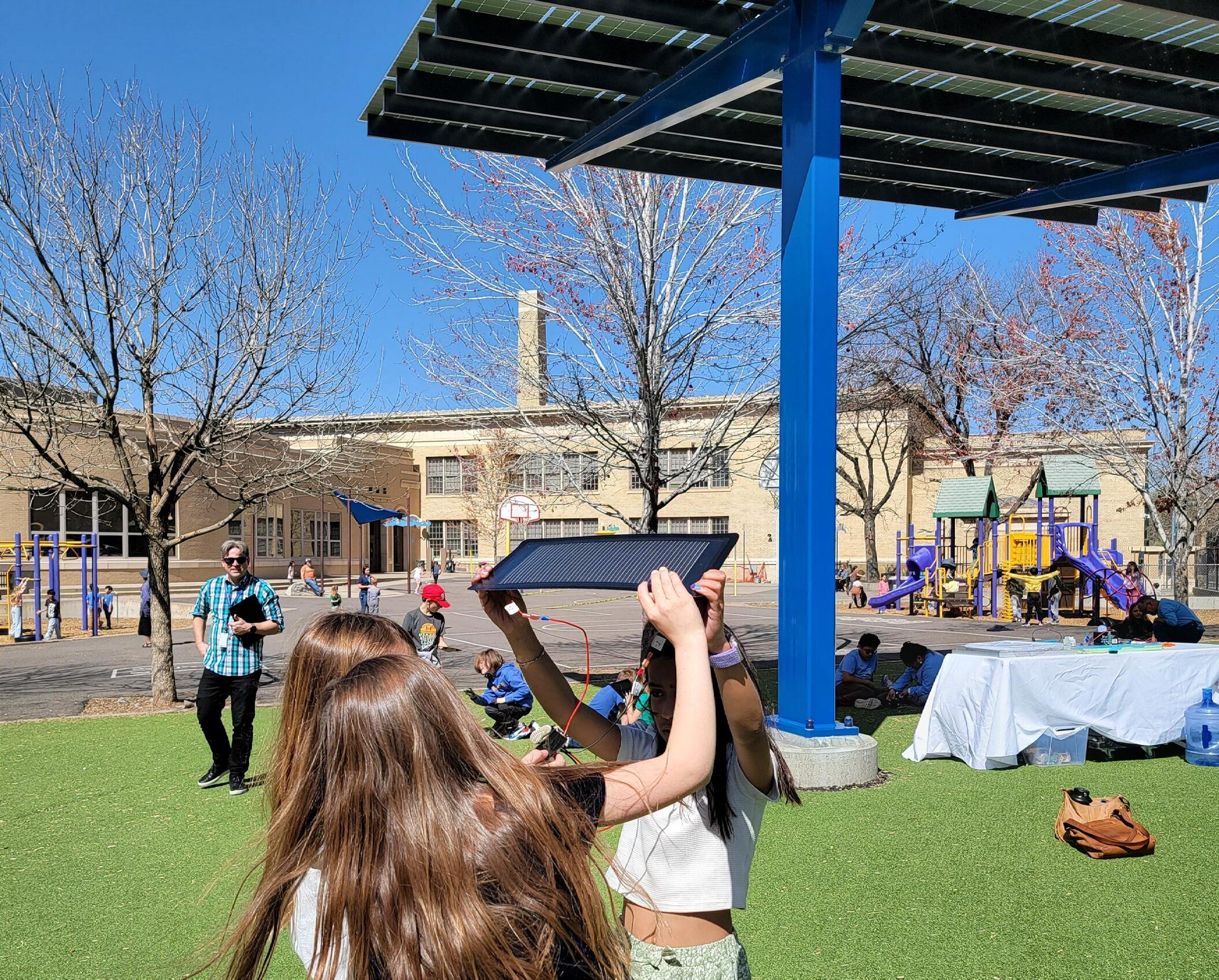
Climate Champions Grant Program Supports Student-Led Projects
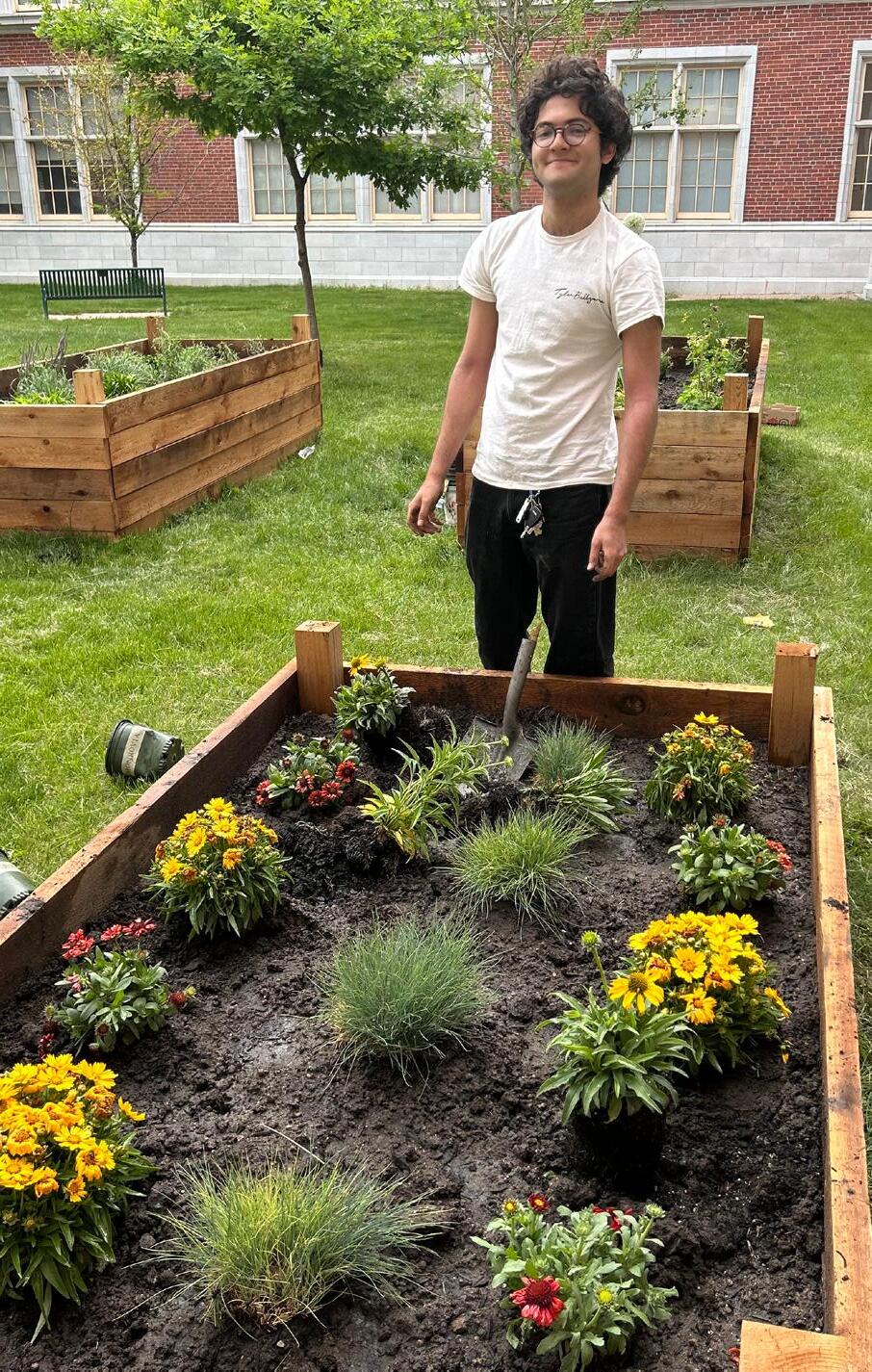
The Sustainability Team partnered with Denver’s Office of Climate Action, Sustainability and Resiliency on the second year of the Climate Champions Grant Program, which provided $225,000 in funding for students to implement real-world climate action projects in their schools. This year saw more applications than available funding, which shows the demand and interest in this program.
17 projects across the district were awarded funding. These projects were student-led, utilized project-based learning, and spanned from renewable energy to gardening to alternative transportation and more. Some projects were featured at the DPS STEAM Expo.
The Climate Champions Grant Program is funded by Denver’s Climate Protection Fund. Thank you Denver voters!
“The team is so happy that all of our hard work paid off, and we are so excited to continue to watch our garden grow!”
- Olivia B., East High graduate, on their school’s new garden through the Climate Champions Grant Program
CLIMATE CHAMPIONS
GRANT PROGRAM

Recycling Can Change the World
Beach Court Elementary
Cory Elementary Greenhouse
Cory Elementary
DCIS Climate
Champions
DCIS Baker
-
Dora Moore’s Permaculture
Project
Dora Moore
South Lawn Urban Garden Initiative
East High
GW Greenhouse Revitalization
George Washington High
Dragon Bikers
Isabella Bird Community School
Reboot to Recycling Year 2
Marie L. Greenwood Academy
Improve Our Recycling, Reduce Our Waste: Building a School Culture of Consciously Choosing
Munroe Elementary
Rain Garden Proposal
North High Renewable Energy Expansion
Northfield High
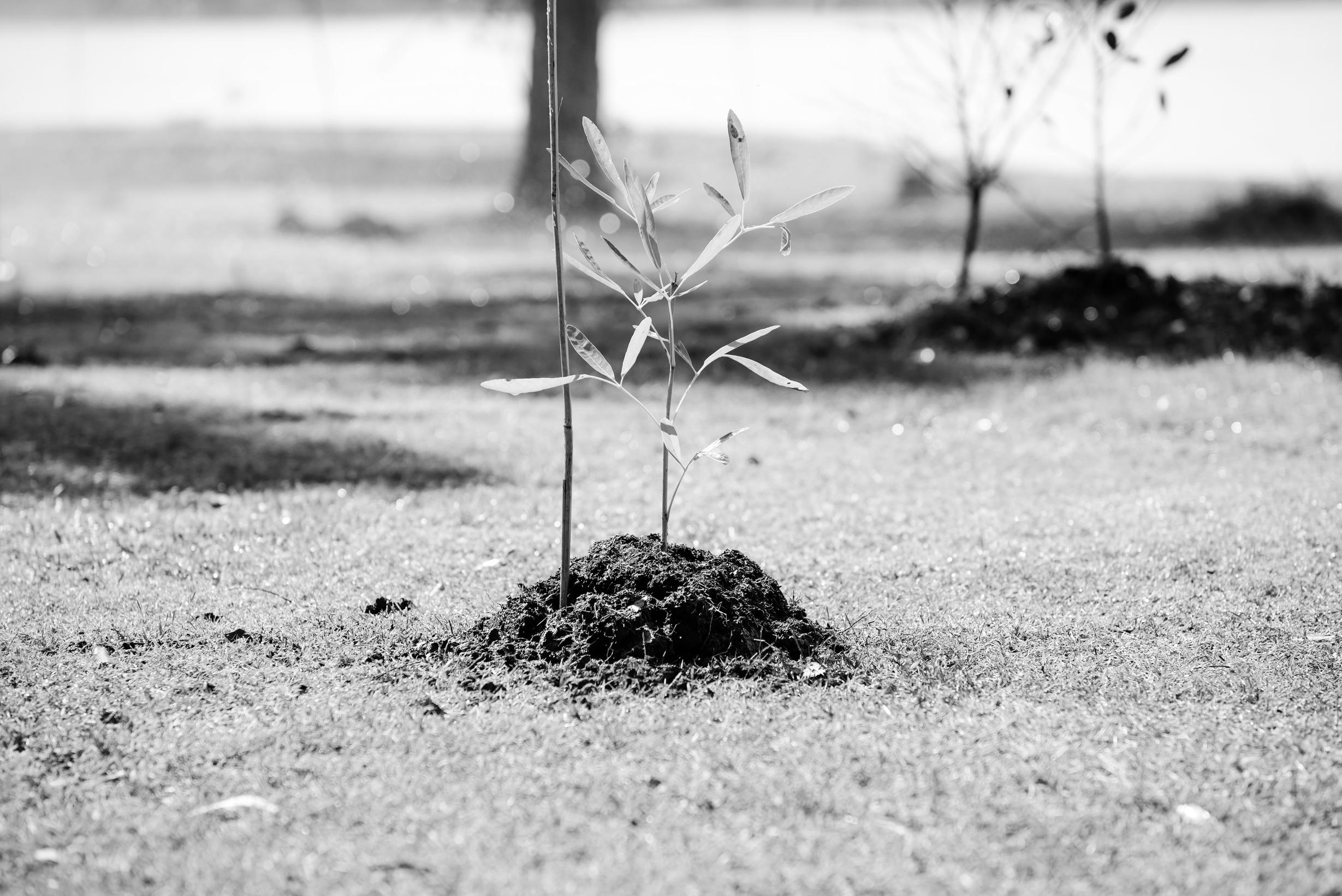
Polaris’ Planet Protectors: Prioritizing Nature in the Inner City
Polaris Elementary
Solar Powered Picnic Benches
Summit Academy
At My School, We Do Something About Climate Change
Teller Elementary
Native Plant Restoration in the Spartan Garden
Thomas Jefferson High WasteLess Warriors/Los guerreros del desperdicio
Valdez Elementary
MANRRS/Ozone
Garden Initiative
Vista Academy
171 Students Earn The Seal of Climate Literacy
171 students from 12 DPS high schools received the Seal of Climate Literacy diploma endorsement this year – the first year the seal was available! This represents about one-third of the seals given across Colorado in this first year.
The Seal of Climate Literacy is a diploma endorsement that equips students with crucial climate knowledge, skills, and confidence to be leaders in the green workforce and to be ready to tackle the challenges posed by climate change.
DPS received a $10,000 grant from Lyra to support the implementation of the Seal of Climate Literacy this year, and a $5,000 grant from Lyra to expand its implementation next school year.
“Wow, I’m actually kind of like a true activist here!”
- Sophie K., Seal of Climate Literacy recipient
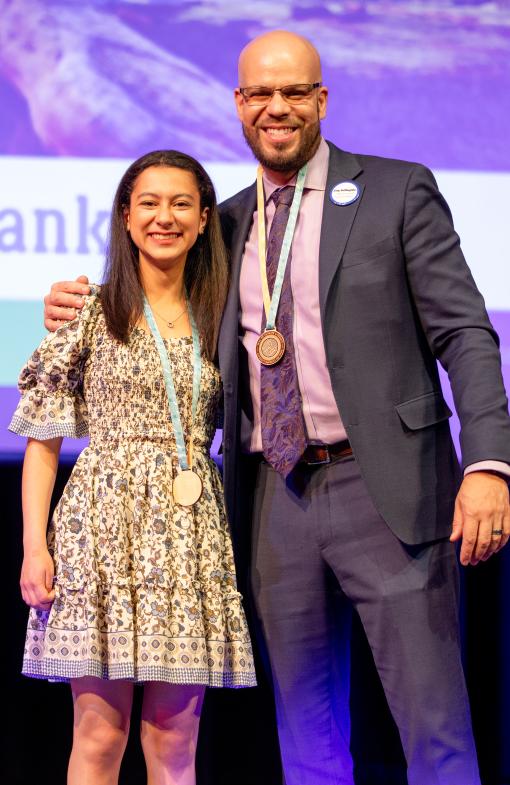

CAREER EXPLORATION GOAL:
Of all students participating in workbased learning, 20% or more will explore/engage in activities that promote sustainability careers
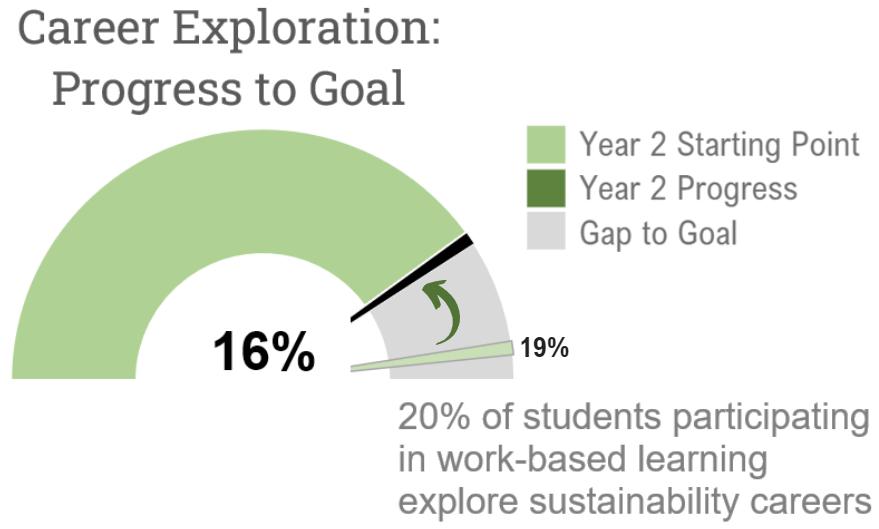
This year 16% of all unique work-based learning participants grades K-12 participated in activities that promoted sustainability careers or highlighted sustainability as it impacts a particular industry. This is down slightly from 19% last year.
Students had the opportunity to learn about sustainability careers in a variety of settings including:
• Career exploration events where students tour organizations, network, and learn about different career fields. These events featured sustainability-focused organizations such as Automotive Evolution, 350 Colorado, Princess Gardens Worm Farm, CSU Spur, Denver Botanic Gardens, and Neighborhood Resilience Corps.
• Sustainability-related internships with organizations such as: the African American Trade Association, 350 Colorado, Earth Force, CSU Spur, and Rocky Mountain Efficiency.
• Summer academies to learn skills around renewable energy and electric vehicles. These students also learned about DPS’ Climate Action Plan, giving context to how DPS is supporting and implementing what they are learning about in the academies.
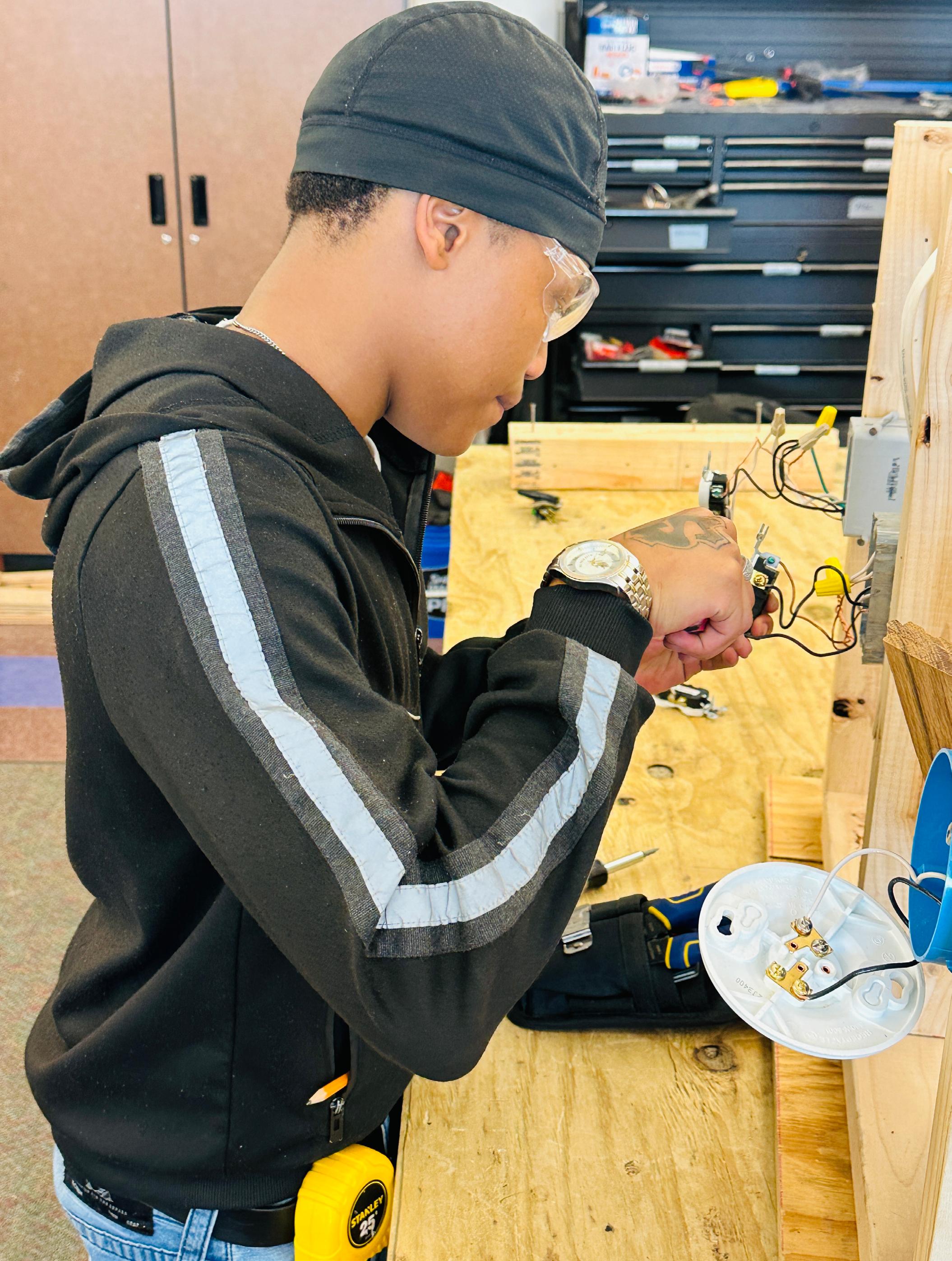
Renewable Energy Academy prepares students for green jobs
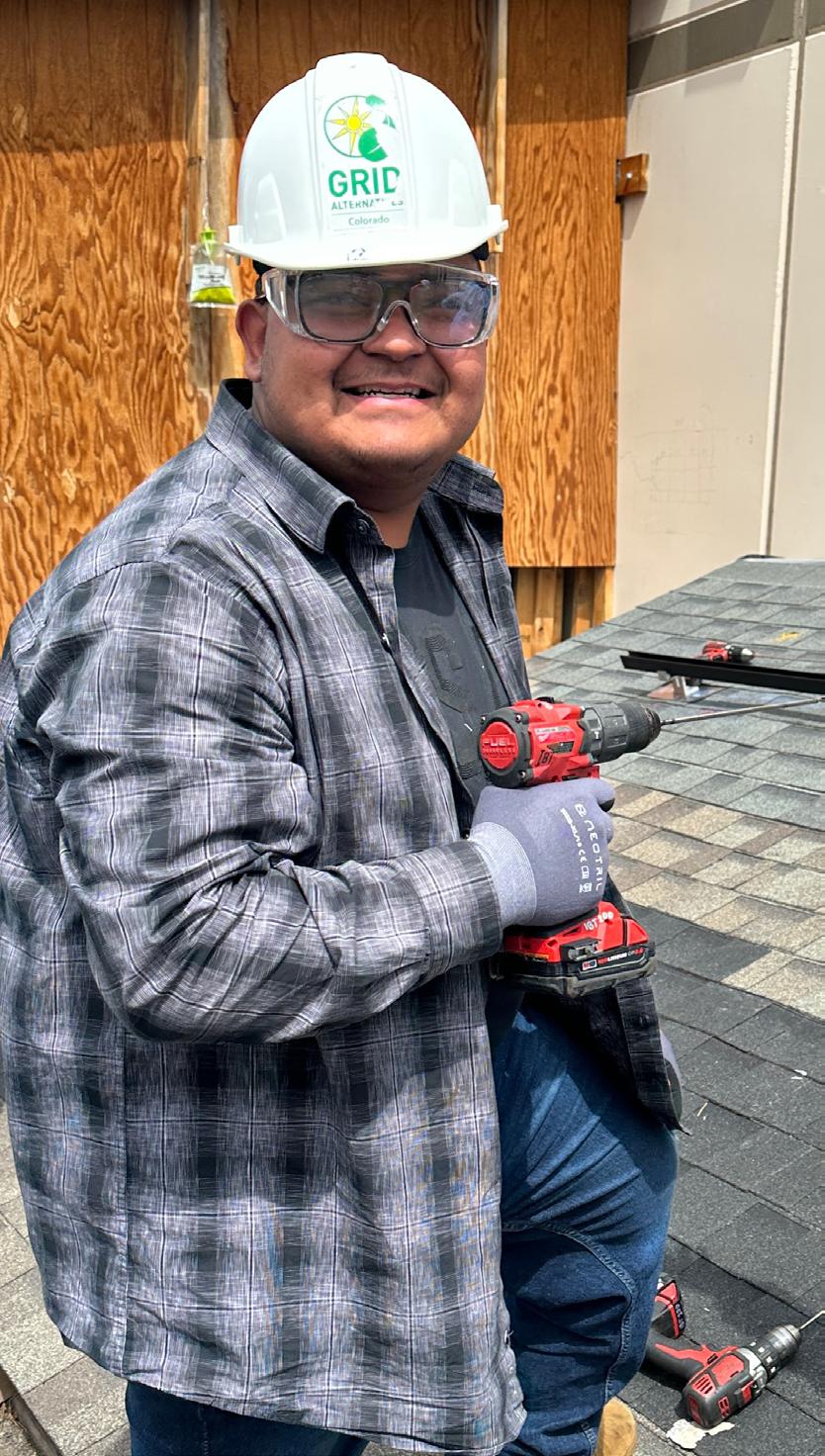
DPS’ Career Development Team hosted the Renewable Energy Academy that taught 19 high school students in summer 2025 about careers in renewable energy.
All students in the program received Installation Basics Training Lite certification from GRID Alternatives, the nation’s largest nonprofit solar installer, which helps prepare students to enter the green workforce.
This year the academy broadened its focus beyond solar energy to also incorporate wind, biomass, energy efficiency, and heat pumps. Also this year, the curriculum was offered in both English and Spanish to better engage multilingual learners.
The academy is funded by a grant from the City and County of Denver.
First-ever Electric Vehicle Academy builds skills in high-demand field
DPS’ Career Development Team also hosted its first-ever electric vehicle (EV) academy that taught 20 students in summer 2025 the knowledge and skills to become an EV technician. The EV industry is booming, and there is a shortage of EV technicians.
This academy partnered with Women Who Charge and Ohm on the Range to provide technical training, policy background, and infrastructure needs of EVs. Students also completed a design project on how to promote EVs in their community or how to enhance EV design.
A survey from summer 2025 academy participants showed:
• 100% of students were introduced to careers they’d never heard of before,
• 77% were interested in learning more about EV careers by talking to an adult in their school, and
• 89% said they felt more motivated to excel in school after the academy.
The academy is funded by a grant from the City and County of Denver.
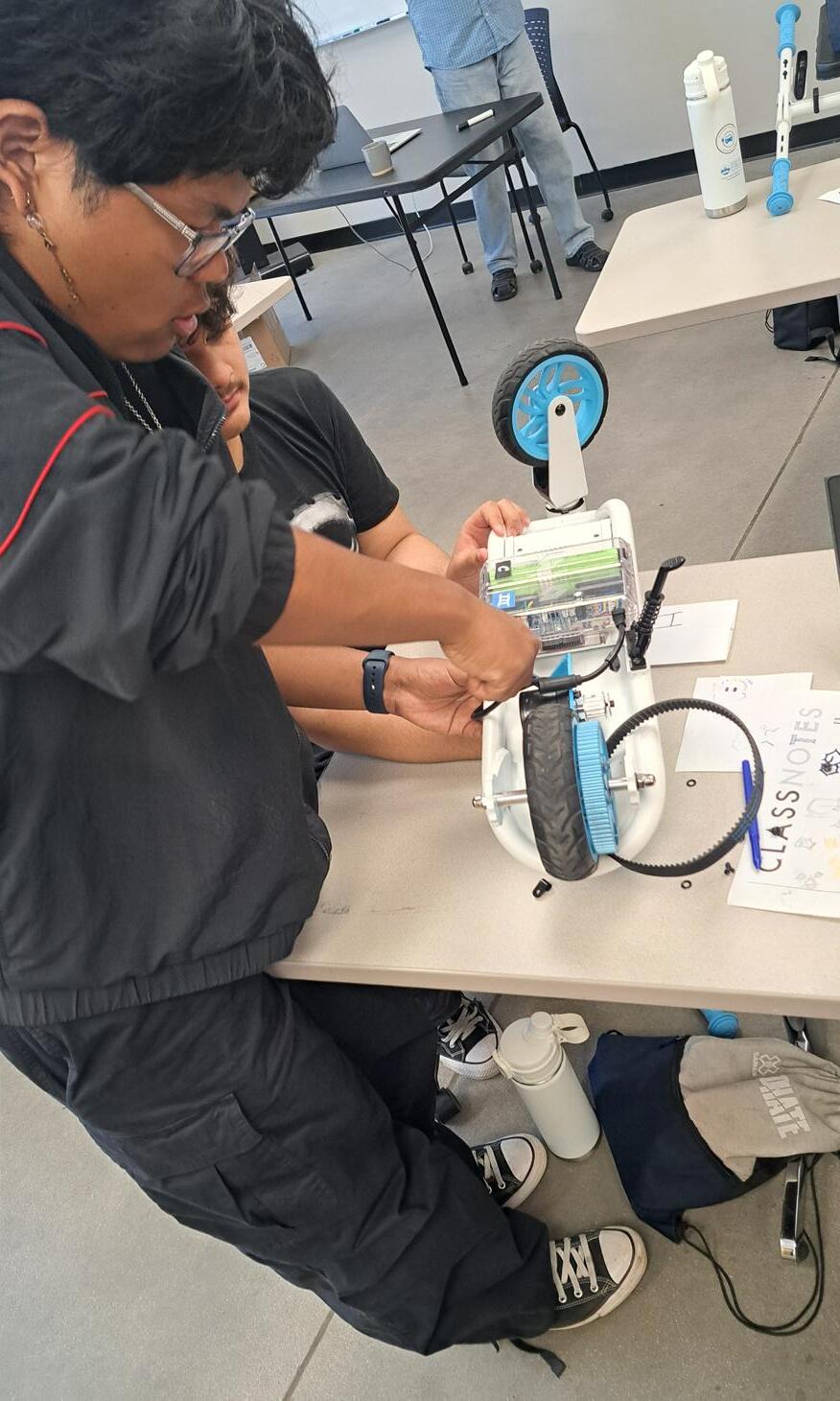
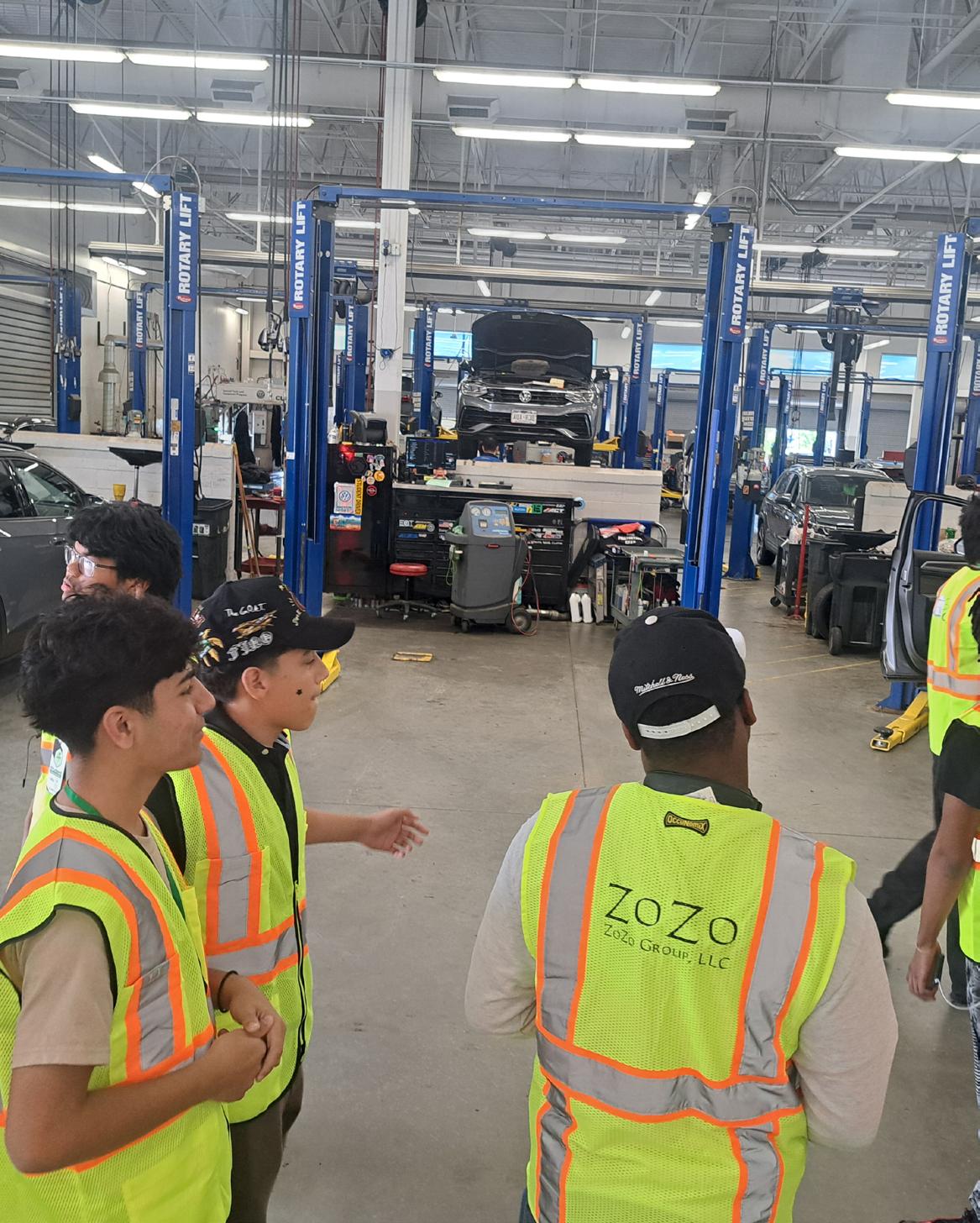
“My favorite part was seeing different jobs that I might want to pursue.”
-EV Academy participant
OUTDOOR EXPERIENCES GOAL:
100% of schools incorporate an outdoor learning space in their academics

Staff defined incorporating an outdoor learning space in academics to be “learning in nature from nature”.
Staff face the challenge of comprehensively collecting and tracking the schools incorporating an outdoor learning space into their academics. To assist with this, staff developed a survey for principals to collect data on the current state of outdoor learning spaces, and next steps are to get the survey completed by all stakeholders and then use the responses to inform strategies toward the goal. This survey is in conjunction with the principal survey created for the Sustainability Curriculum Goal.
We do know that, at minimum, the schools attending Balarat Outdoor Education and schools receiving solar outdoor classrooms meet this goal.
Balarat is DPS’ outdoor education facility located on 750 acres in the foothills of the Rocky Mountains, and it serves approximately 10,000 DPS students each year. Every fifth grader has the opportunity to attend an overnight experience at Balarat, and third graders can attend half-day field trips at Genesee Mountain Park with Balarat educators. High school students can earn elective credit by assisting with the overnight experiences for fifth graders.
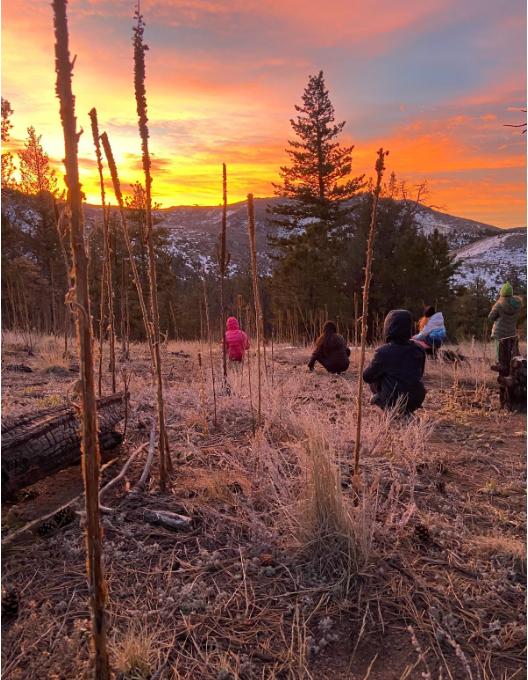
Photo credit: Balarat
Godsman Elementary developing a new outdoor learning space
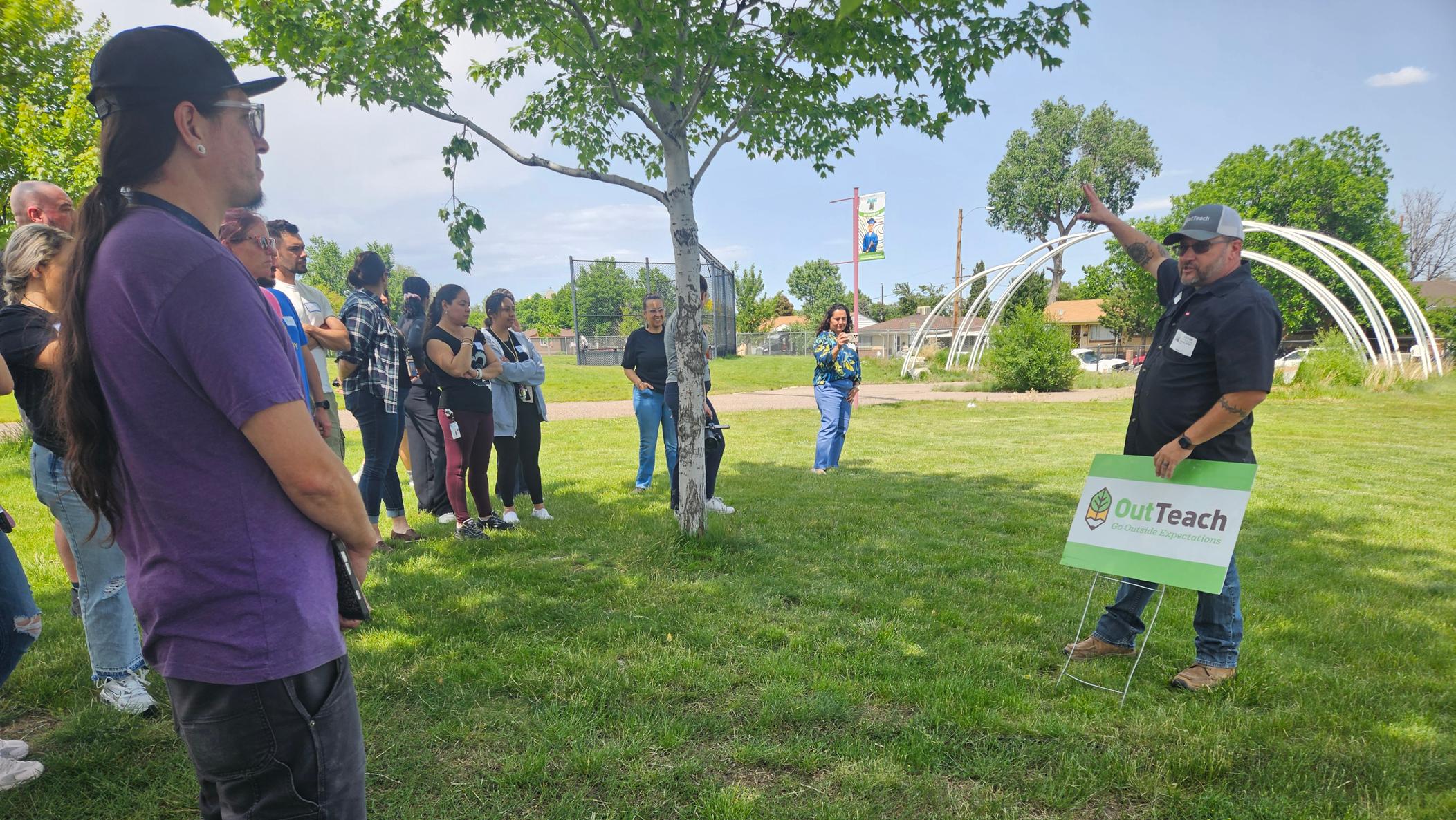
In partnership with the Denver Broncos Foundation and Out Teach, Godsman Elementary will be designing and creating its own outdoor learning space. Staff received professional development on using the outdoor space and students will learn from specialized curriculum. This is a model to potentially look at replicating with other schools across the district to meet this goal.
Professional Learning workshop for teachers explored Art and Sustainability
The Sustainability Team hosted an Art & Sustainability Professional Learning workshop for teachers to explore how to plan for and manage sustainable, nature-based, outdoor art lessons for K-12 students. Teachers created upcycled art while brainstorming what types of outdoor lessons to lead during each season in Colorado. Teachers learned about resources for grade-level science and art integration and planned an outdoor art experience for their classes.
Recognition & Engagement
DPS received recognition from both local and national organizations for its sustainability efforts. It’s important to celebrate this recognition to keep us energized for the work ahead.
DPS was selected as a Top 10 Finalist for the American Climate Leadership Awards in 2025! This prestigious award is given by ecoAmerica, an organization committed to inspiring and empowering climate advocacy across the U.S., and it recognizes DPS’ leadership in climate initiatives and solutions at both the local and national scale.
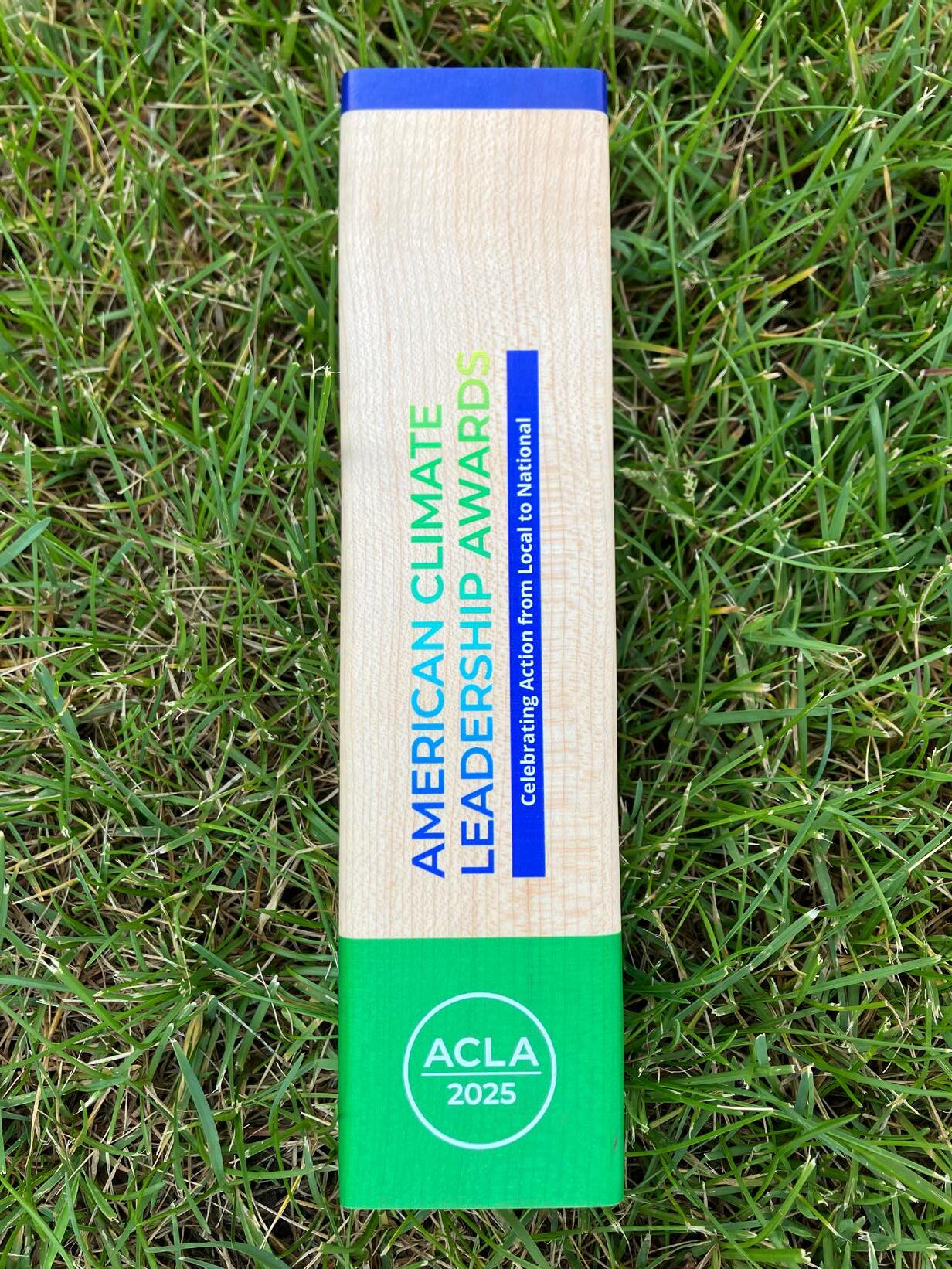
DPS received the 2025 Best of Green Schools Award in the School System category from the Center for Green Schools and the Green Schools National Network. This prestigious national award celebrates the dedication and commitment of those advancing the green school movement and creating safer, healthier, and more resilient schools.
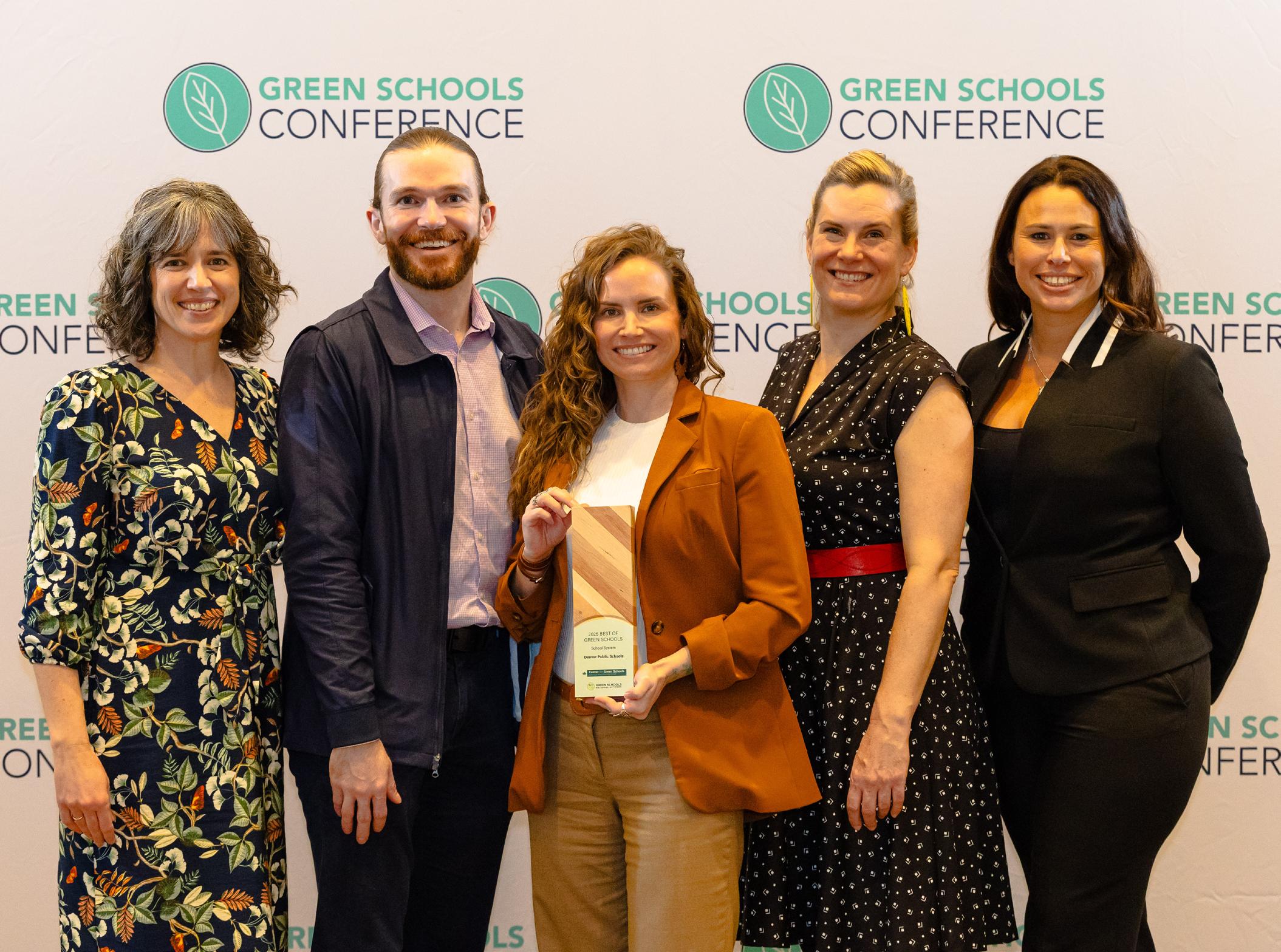

DPS received a 2025 Lumies Award from Lyra Colorado for the district’s leadership in the early adoption of the Seal of Climate Literacy in its inaugural year. The award honors “bright lights” in education, and DPS provided strong commitment to the seal with 171 students from 12 different schools receiving the Seal of Climate Literacy diploma endorsement this year – the first year the seal was available!
LeeAnn Kittle, former executive director of the Sustainability Team, received the 2025 Heather Bird Jackson Changemaker Award from DPS Students for Climate Action. The award was presented at the DPS Climate Action Summit, and it honors LeeAnn’s strategic vision and powerful response to our student’s call for urgent climate action.
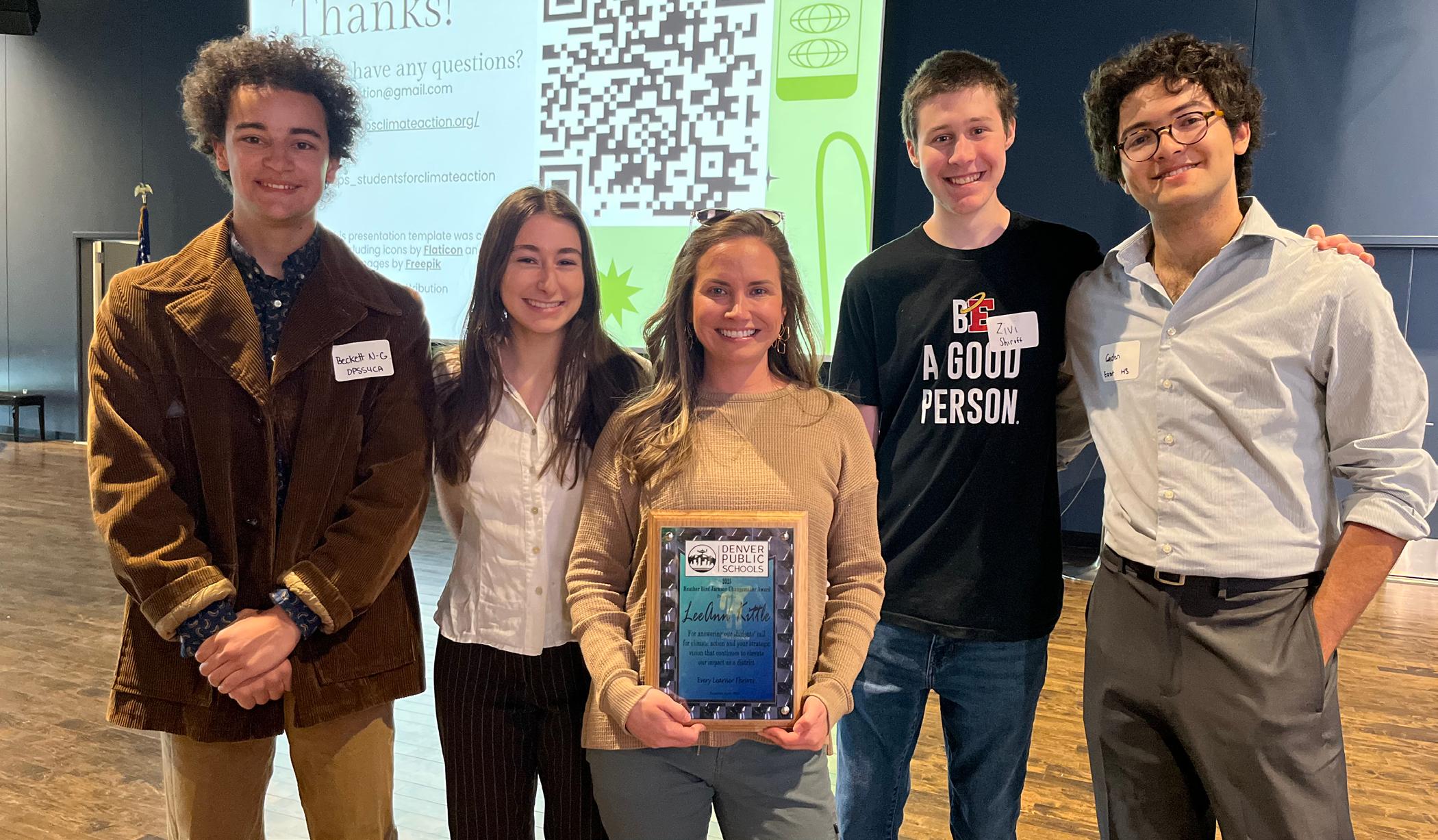
The Sustainability Team also presented at a variety of local, regional, and national professional and community events to share our story and inspire others to take urgent climate action. A few of the groups we spoke with include:
• National School Board Association
• Harvard Graduate School of Education
• Colorado Association of School Business Officials
• Association of Energy Engineers
• U.S. Green Building Council
• ClimateCon!
• CIRES Center for Education, Engagement, and Evaluation
Your Climate Action
If you are interested in climate action but not sure where to start, think about where all three of the questions below come together - and that is your climate action.
Whether you’re an artist, a foodie, or a techie, there’s a role for you in climate action - because when your skills, purpose, and joy meet, meaningful change happens.

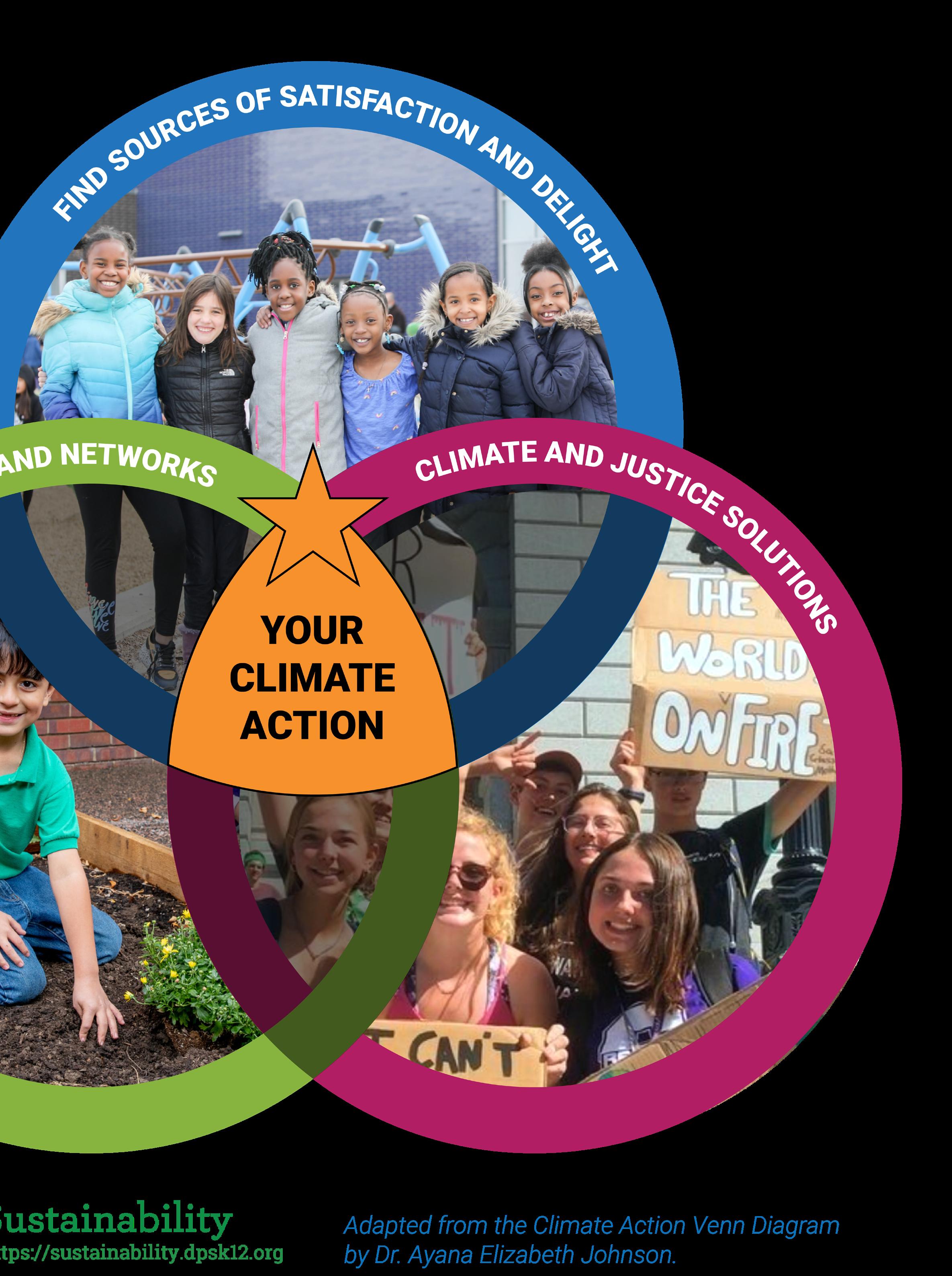
If you’re still unsure, here are concrete actions you can take to make a difference from the climate scientist Katharine Hayhoe.
Talk about climate change.
Talk with friends and family about why climate change matters to you, how you have been impacted by climate change, and what actions you are taking to make change. This normalizes conversations about climate. Invite folks into the conversation rather than calling out.
Vote for policies and politicians that protect the climate.
Vote in local, state and national elections. Hold elected officials at every level accountable to climate action. Even if you aren’t able to vote yet, tell them why climate change matters to you and what you want them to do about it.
Reduce your personal carbon footprint and talk about it.
There are many ways to reduce your carbon footprint – from eating more plant-based protein, to walking or biking instead of driving, and much more. Talk about the actions that work well for you so others feel comfortable making changes. This helps turn individual action into collective action.
Get involved with climate action at DPS (and beyond!).
Whether you are a student, parent, educator, or community member, there are many ways to get involved with climate action in our community and organize for collective action.
● Join Earth Rangers or DPS Students for Climate Action.
● Join (or start!) your school’s green team or environmental club.
● Attend the annual DPS Climate Action Summit.
● Contact the DPS Sustainability Team at dept_sustainability@dpsk12.net.
● Follow our climate action on social media:
○ Instagram: @dps_sustainabilty
○ YouTube: @DPS_Sustainability
● Sign up to receive the DPS Sustainability newsletter:

With Gratitude
It takes the collective effort, passion, and dedication of many minds and voices to accomplish the goals in the DPS Climate Action Plan.
Without collaborators and funding, we wouldn’t be able to do what we’ve done so quickly.
Thank you to all of those who have helped make this work possible over the last year, including:
• students advocating for a livable future,
• staff and community partners who are implementing projects and programs,
• Denver voters for passing the 2024 Bond and investing in our schools, and
• organizations providing funding for our climate action work.
We look forward to continued collaboration in the years to come!
“The most common way people give up their power is by thinking they don’t have any.”
–Alice Walker, American writer and activist
This quote was shared by Mariah R., East High graduate, during her keynote speech at the 2025 DPS Climate Summit.
